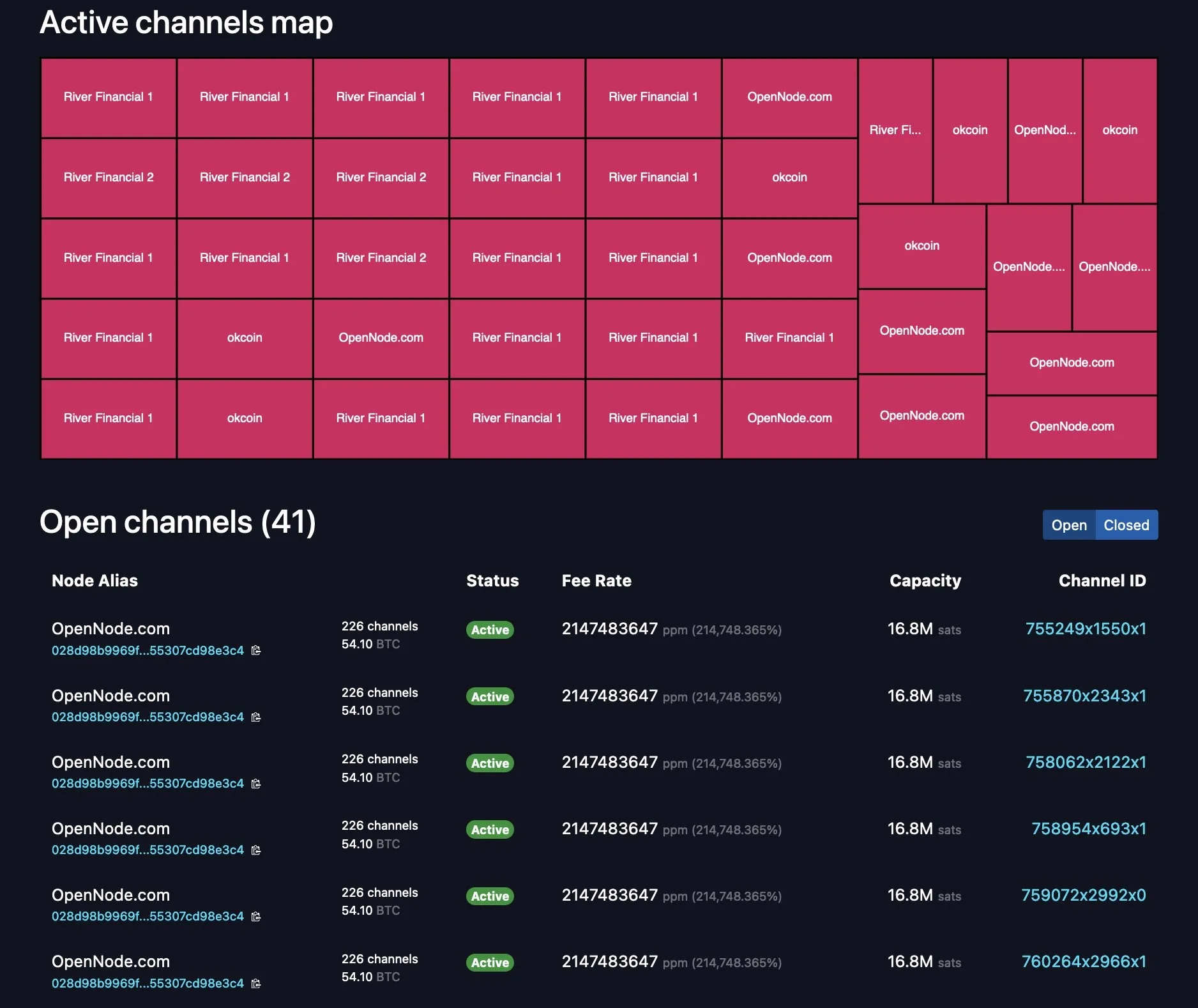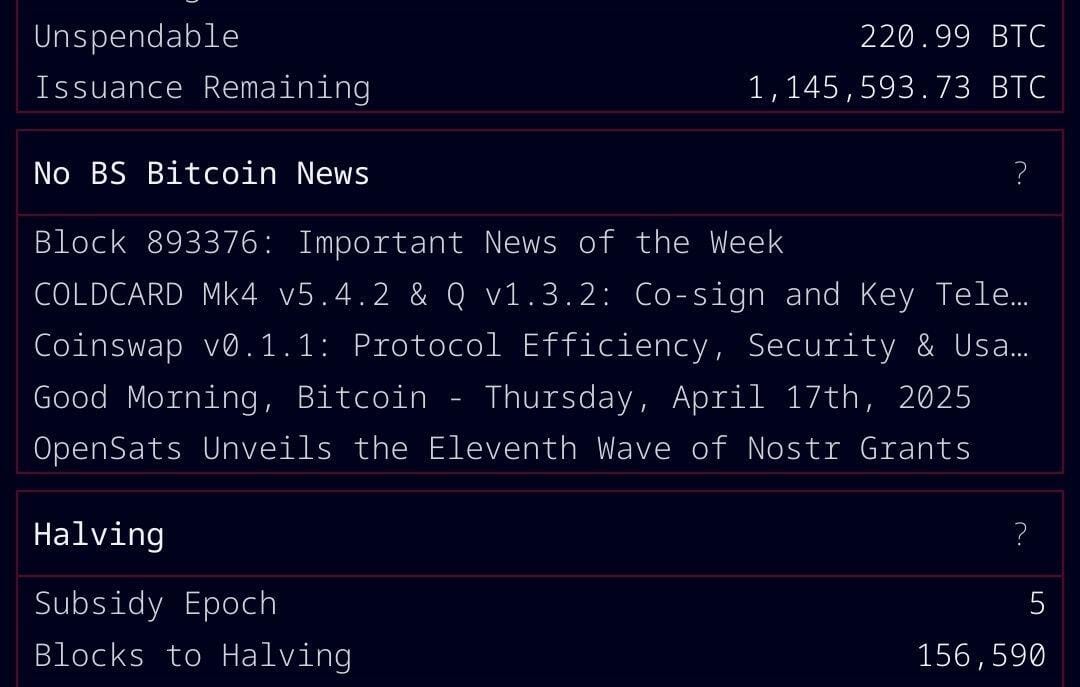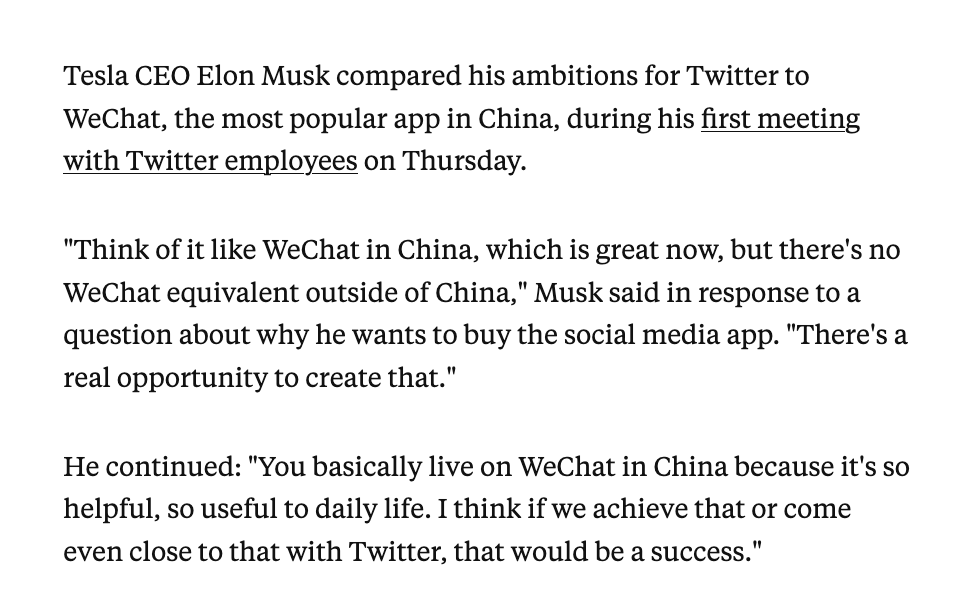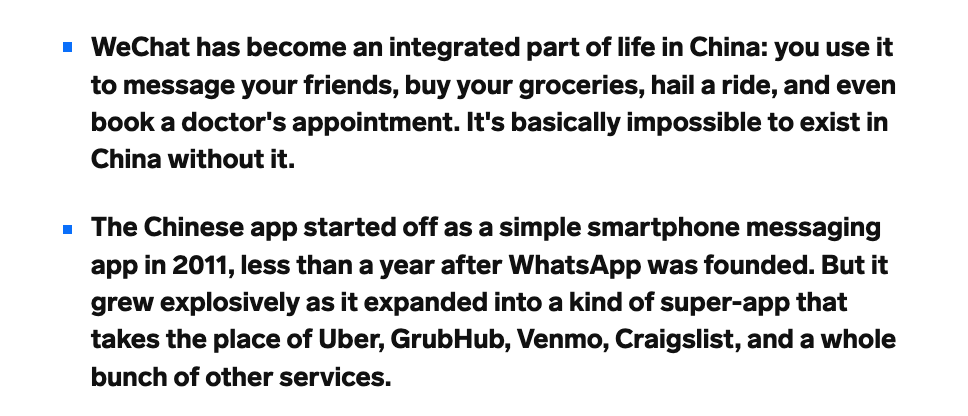-
 @ 7f6db517:a4931eda
2025-05-25 13:01:40
@ 7f6db517:a4931eda
2025-05-25 13:01:40
The former seems to have found solid product market fit. Expect significant volume, adoption, and usage going forward.
The latter's future remains to be seen. Dependence on Tor, which has had massive reliability issues, and lack of strong privacy guarantees put it at risk.
— ODELL (@ODELL) October 27, 2022
The Basics
- Lightning is a protocol that enables cheap and fast native bitcoin transactions.
- At the core of the protocol is the ability for bitcoin users to create a payment channel with another user.
- These payment channels enable users to make many bitcoin transactions between each other with only two on-chain bitcoin transactions: the channel open transaction and the channel close transaction.
- Essentially lightning is a protocol for interoperable batched bitcoin transactions.
- It is expected that on chain bitcoin transaction fees will increase with adoption and the ability to easily batch transactions will save users significant money.
- As these lightning transactions are processed, liquidity flows from one side of a channel to the other side, on chain transactions are signed by both parties but not broadcasted to update this balance.
- Lightning is designed to be trust minimized, either party in a payment channel can close the channel at any time and their bitcoin will be settled on chain without trusting the other party.
There is no 'Lightning Network'
- Many people refer to the aggregate of all lightning channels as 'The Lightning Network' but this is a false premise.
- There are many lightning channels between many different users and funds can flow across interconnected channels as long as there is a route through peers.
- If a lightning transaction requires multiple hops it will flow through multiple interconnected channels, adjusting the balance of all channels along the route, and paying lightning transaction fees that are set by each node on the route.
Example: You have a channel with Bob. Bob has a channel with Charlie. You can pay Charlie through your channel with Bob and Bob's channel with User C.
- As a result, it is not guaranteed that every lightning user can pay every other lightning user, they must have a route of interconnected channels between sender and receiver.
Lightning in Practice
- Lightning has already found product market fit and usage as an interconnected payment protocol between large professional custodians.
- They are able to easily manage channels and liquidity between each other without trust using this interoperable protocol.
- Lightning payments between large custodians are fast and easy. End users do not have to run their own node or manage their channels and liquidity. These payments rarely fail due to professional management of custodial nodes.
- The tradeoff is one inherent to custodians and other trusted third parties. Custodial wallets can steal funds and compromise user privacy.
Sovereign Lightning
- Trusted third parties are security holes.
- Users must run their own node and manage their own channels in order to use lightning without trusting a third party. This remains the single largest friction point for sovereign lightning usage: the mental burden of actively running a lightning node and associated liquidity management.
- Bitcoin development prioritizes node accessibility so cost to self host your own node is low but if a node is run at home or office, Tor or a VPN is recommended to mask your IP address: otherwise it is visible to the entire network and represents a privacy risk.
- This privacy risk is heightened due to the potential for certain governments to go after sovereign lightning users and compel them to shutdown their nodes. If their IP Address is exposed they are easier to target.
- Fortunately the tools to run and manage nodes continue to get easier but it is important to understand that this will always be a friction point when compared to custodial services.
The Potential Fracture of Lightning
- Any lightning user can choose which users are allowed to open channels with them.
- One potential is that professional custodians only peer with other professional custodians.
- We already see nodes like those run by CashApp only have channels open with other regulated counterparties. This could be due to performance goals, liability reduction, or regulatory pressure.
- Fortunately some of their peers are connected to non-regulated parties so payments to and from sovereign lightning users are still successfully processed by CashApp but this may not always be the case going forward.
Summary
- Many people refer to the aggregate of all lightning channels as 'The Lightning Network' but this is a false premise. There is no singular 'Lightning Network' but rather many payment channels between distinct peers, some connected with each other and some not.
- Lightning as an interoperable payment protocol between professional custodians seems to have found solid product market fit. Expect significant volume, adoption, and usage going forward.
- Lightning as a robust sovereign payment protocol has yet to be battle tested. Heavy reliance on Tor, which has had massive reliability issues, the friction of active liquidity management, significant on chain fee burden for small amounts, interactivity constraints on mobile, and lack of strong privacy guarantees put it at risk.
If you have never used lightning before, use this guide to get started on your phone.
If you found this post helpful support my work with bitcoin.

-
 @ dfa02707:41ca50e3
2025-05-25 13:01:34
@ dfa02707:41ca50e3
2025-05-25 13:01:34Contribute to keep No Bullshit Bitcoin news going.
- Wasabi Wallet v2.6.0 "Prometheus" is a major update for the project, focused on resilience and independence from centralized systems.
- Key features include support for BIP 158 block filters for direct node synchronization, a revamped full node integration for easier setup without third-party reliance, SLIP 39 share backups for flexible wallet recovery (sponsored by Trezor), and a Nostr-based update manager for censorship-resistant updates.
- Additional improvements include UI bug fixes, a new fallback for transaction broadcasting, updated code signing, stricter JSON serialization, and options to avoid third-party rate providers, alongside various under-the-hood enhancements.
This new version brings us closer to our ultimate goal: ensuring Wasabi is future-proof," said the developers, while also highlighting the following key areas of focus for the project:
- Ensuring users can always fully and securely use their client.
- Making contribution and forks easy through a codebase of the highest quality possible: understandable, maintainable, and improvable.
"As we achieve our survival goals, expect more cutting-edge improvements in Bitcoin privacy and self-custody. Thank you for the trust you place in us by using Wasabi," was stated in the release notes.
What's new
- Support for Standard BIP 158 Block Filters. Wasabi now syncs using BIP 158 filters without a backend/indexer, connecting directly to a user's node. This boosts sync speed, resilience, and allows full sovereignty without specific server dependency.
- Full Node Integration Rework. The old integration has been replaced with a simpler, more adaptable system. It’s not tied to a specific Bitcoin node fork, doesn’t need the node on the same machine as Wasabi, and requires no changes to the node’s setup.
- "Simply enable the RPC server on your node and point Wasabi to it," said the developers. This ensures all Bitcoin network activities—like retrieving blocks, fee estimations, block filters, and transaction broadcasting—go through your own node, avoiding reliance on third parties.
- Create & Recover SLIP 39 Shares. Users now create and recover wallets with multiple share backups using SLIP 39 standard.
"Special thanks to Trezor (SatoshiLabs) for sponsoring this amazing feature."
- Nostr Update Manager. This version implements a pioneering system with the Nostr protocol for update information and downloads, replacing reliance on GitHub. This enhances the project's resilience, ensuring updates even if GitHub is unavailable, while still verifying updates with the project's secure certificate.
- Updated Avalonia to v11.2.7, fixes for UI bugs (including restoring Minimize on macOS Sequoia).
- Added a configurable third-party fallback for broadcasting transactions if other methods fail.
- Replaced Windows Code Signing Certificate with Azure Trusted Signing.
- Many bug fixes, improved codebase, and enhanced CI pipeline.
- Added the option to avoid using any third-party Exchange Rate and Fee Rate providers (Wasabi can work without them).
- Rebuilt all JSON Serialization mechanisms avoiding default .NET converters. Serialization is now stricter.

Full Changelog: v2.5.1...v2.6.0
-
 @ dfa02707:41ca50e3
2025-05-25 13:01:34
@ dfa02707:41ca50e3
2025-05-25 13:01:34Contribute to keep No Bullshit Bitcoin news going.
News
- Spiral welcomes Ben Carman. The developer will work on the LDK server and a new SDK designed to simplify the onboarding process for new self-custodial Bitcoin users.
- Spiral renews support for Dan Gould and Joschisan. The organization has renewed support for Dan Gould, who is developing the Payjoin Dev Kit (PDK), and Joschisan, a Fedimint developer focused on simplifying federations.
- The Bitcoin Dev Kit Foundation announced new corporate members for 2025, including AnchorWatch, CleanSpark, and Proton Foundation. The annual dues from these corporate members fund the small team of open-source developers responsible for maintaining the core BDK libraries and related free and open-source software (FOSS) projects.
- The European Central Bank is pushing for amendments to the European Union's Markets in Crypto Assets legislation (MiCA), just months after its implementation. According to Politico's report on Tuesday, the ECB is concerned that U.S. support for cryptocurrency, particularly stablecoins, could cause economic harm to the 27-nation bloc.
- Slovenia is considering a 25% capital gains tax on Bitcoin profits for individuals. The Ministry of Finance has proposed legislation to impose this tax on gains from cryptocurrency transactions, though exchanging one cryptocurrency for another would remain exempt. At present, individual 'crypto' traders in Slovenia are not taxed.
- The Virtual Asset Service Providers (VASP) Bill 2025 introduced in Kenya. The new legislation aims to establish a comprehensive legal framework for licensing, regulating, and supervising virtual asset service providers (VASPs), with strict penalties for non-compliant entities.
- Circle, BitGo, Coinbase, and Paxos plan to apply for U.S. bank charters or licenses. According to a report in The Wall Street Journal, major crypto companies are planning to apply for U.S. bank charters or licenses. These firms are pursuing limited licenses that would permit them to issue stablecoins, as the U.S. Congress deliberates on legislation mandating licensing for stablecoin issuers.
"Established banks, like Bank of America, are hoping to amend the current drafts of [stablecoin] legislation in such a way that nonbanks are more heavily restricted from issuing stablecoins," people familiar with the matter told The Block.
- Paul Atkins has officially assumed the role of the 34th Chairman of the US Securities and Exchange Commission (SEC). This is a return to the agency for Atkins, who previously served as an SEC Commissioner from 2002 to 2008 under the George W. Bush administration. He has committed to advancing the SEC’s mission of fostering capital formation, safeguarding investors, and ensuring fair and efficient markets.
- Federal Reserve retracts guidance discouraging banks from engaging in 'crypto.' The U.S. Federal Reserve withdrew guidance that discouraged banks from crypto and stablecoin activities, as announced by its Board of Governors on Thursday. This includes rescinding a 2022 supervisory letter requiring prior notification of crypto activities and 2023 stablecoin requirements.
"As a result, the Board will no longer expect banks to provide notification and will instead monitor banks' crypto-asset activities through the normal supervisory process," reads the FED statement.
- Russian government to launch a cryptocurrency exchange. The country's Ministry of Finance and Central Bank announced plans to establish a trading platform for "highly qualified investors" that "will legalize crypto assets and bring crypto operations out of the shadows."
- Twenty One Capital is set to launch with over 42,000 BTC in its treasury. This new Bitcoin-native firm, backed by Tether and SoftBank, is planned to go public via a SPAC merger with Cantor Equity Partners and will be led by Jack Mallers, co-founder and CEO of Strike. According to a report by the Financial Times, the company aims to replicate the model of Michael Saylor with his company, MicroStrategy.
- Strategy increases Bitcoin holdings to 538,200 BTC. In the latest purchase, the company has spent more than $555M to buy 6,556 coins through proceeds of two at-the-market stock offering programs.
- Metaplanet buys another 145 BTC. The Tokyo-listed company has purchased an additional 145 BTC for $13.6 million. Their total bitcoin holdings now stand at 5,000 coins, worth around $428.1 million.
- Semler Scientific has increased its bitcoin holdings to 3,303 BTC. The company acquired an additional 111 BTC at an average price of $90,124. The purchase was funded through proceeds from an at-the-market offering and cash reserves, as stated in a press release.
- Tesla still holds nearly $1 billion in bitcoin. According to the automaker's latest earnings report, the firm reported digital asset holdings worth $951 million as of March 31.
- Spar supermarket experiments with Bitcoin payments in Zug, Switzerland. The store has introduced a new payment method powered by the Lightning Network. The implementation was facilitated by DFX Swiss, a service that supports seamless conversions between bitcoin and legacy currencies.
- Charles Schwab to launch spot Bitcoin trading by 2026. The financial investment firm, managing over $10 trillion in assets, has revealed plans to introduce spot Bitcoin trading for its clients within the next year.
- Arch Labs has secured $13 million to develop "ArchVM" and integrate smart-contract functionality with Bitcoin. The funding round, valuing the company at $200 million, was led by Pantera Capital, as announced on Tuesday.
- Citrea deployed its Clementine Bridge on the Bitcoin testnet. The bridge utilizes the BitVM2 programming language to inherit validity from Bitcoin, allegedly providing "the safest and most trust-minimized way to use BTC in decentralized finance."
- UAE-based Islamic bank ruya launches Shari’ah-compliant bitcoin investing. The bank has become the world’s first Islamic bank to provide direct access to virtual asset investments, including Bitcoin, via its mobile app, per Bitcoin Magazine.
- Solosatoshi.com has sold over 10,000 open-source miners, adding more than 10 PH of hashpower to the Bitcoin network.
"Thank you, Bitaxe community. OSMU developers, your brilliance built this. Supporters, your belief drives us. Customers, your trust powers 10,000+ miners and 10PH globally. Together, we’re decentralizing Bitcoin’s future. Last but certainly not least, thank you@skot9000 for not only creating a freedom tool, but instilling the idea into thousands of people, that Bitcoin mining can be for everyone again," said the firm on X.
- OCEAN's DATUM has found 100 blocks. "Over 65% of OCEAN’s miners are using DATUM, and that number is growing every day. This means block template construction is making its way back into the hands of the miners, which is not only the most profitable
-
 @ eb0157af:77ab6c55
2025-05-25 13:01:24
@ eb0157af:77ab6c55
2025-05-25 13:01:24According to the ECB Executive Board member, the launch of the digital euro depends on the timing of the EU regulation.
The European Central Bank (ECB) is making progress in preparing for the digital euro. According to Piero Cipollone, ECB Executive Board member and coordinator of the project, the technical phase “is proceeding quickly and on schedule,” but moving to operational implementation still requires political approval of the regulation at the European level.
Speaking at the ‘Voices on the Future’ event organized by Ansa and Asvis, Cipollone outlined a possible timeline:
“If the regulation is approved at the start of 2026 — in the best-case scenario for the European legislative process — we could see the first transactions with the digital euro by mid-2028.”
Cipollone also highlighted Europe’s current dependence on electronic payment systems managed by non-European companies:
“Today in Europe, whenever we don’t use cash, any transaction online or at the supermarket has to go through credit cards, with their fees. The payment system relies on companies that aren’t based in Europe. You can see why it would make sense to have a system fully under our control.”
For the ECB board member, the digital euro would act as a direct alternative to cash in the digital world, working like “a banknote you can spend anywhere in Europe for any purpose.”
The digital euro project is part of the ECB’s broader strategy to strengthen the independence of Europe’s financial system. According to Cipollone and the Central Bank, Europe’s digital currency would be a key step toward greater autonomy in electronic payments, reducing reliance on infrastructure and services outside the European Union.
The post ECB: digital euro by mid-2028, says Cipollone appeared first on Atlas21.
-
 @ eb0157af:77ab6c55
2025-05-25 13:01:20
@ eb0157af:77ab6c55
2025-05-25 13:01:20Bitcoin surpasses gold in the United States: 50 million holders and a dominant role in the global market.
According to a new report by River, for the first time in history, the number of Americans owning bitcoin has surpassed that of gold holders. The analysis reveals that approximately 50 million U.S. citizens currently own the cryptocurrency, while gold owners number 37 million. In fact, 14.3% of Americans own bitcoin, the highest percentage of holders worldwide.

Source: River
The report highlights that 40% of all Bitcoin-focused companies are based in the United States, consolidating America’s dominant position in the sector. Additionally, 40.5% of Bitcoin holders are men aged 31 to 35, followed by 35.9% of men aged 41 to 45. In contrast, only 13.4% of holders are women.

Source: River
Notably, U.S. companies hold 94.8% of all bitcoins owned by publicly traded companies worldwide. According to the report, recent regulatory changes in the U.S. have made the asset more accessible through financial products such as spot ETFs.
The document also shows that American investors increasingly view the cryptocurrency as protection against fiscal instability and inflation, appreciating its limited supply and decentralized governance model.
For River, Bitcoin offers significant practical advantages over gold in the modern digital era. Its ease of custody, cross-border transfer, and liquidity make the cryptocurrency an attractive option for both individual and institutional investors, the report suggests.
The post USA: 50 million Americans own bitcoin appeared first on Atlas21.
-
 @ 9ca447d2:fbf5a36d
2025-05-25 13:00:59
@ 9ca447d2:fbf5a36d
2025-05-25 13:00:59DDC Enterprise, a consumer brand and e-commerce company with operations in the U.S. and China, has launched a big plan to make bitcoin (BTC) a key part of its financial strategy.
The company just bought 21 BTC as the first step in a plan to buy up to 5,000 BTC over the next 3 years.
The move was announced in a press release and a letter to shareholders by DDC’s founder, chairwoman and CEO Norma Chu.
The 21 BTC, worth around $2.28 million at current prices, was bought through a share exchange. DDC issued 254,333 class A ordinary shares.
“We are fully committed to ensuring the success of this strategy, which aligns with our vision to drive long-term value for our shareholders,” said Norma Chu. “Today marks a pivotal moment in DDC’s evolution.”
Chu is the first female founder and CEO of a U.S.-listed public company to lead a bitcoin-only treasury strategy. DDC is one of the first companies in its industry to adopt this strategy in such a structured way.
DDC’s plan is being rolled out in phases. The company will buy another 79 BTC soon and will have 100 BTC in the short term.
In the next 6 months, it will buy 500 BTC, and long-term, it expects to build a 5,000 BTC reserve over 36 months.
This phased approach may allow DDC to manage market volatility and take advantage of price movements.
In her recent letter to shareholders, Chu called the bitcoin strategy “a cornerstone of our long-term value creation plan”.
She said bitcoin’s qualities – especially as a hedge against macroeconomic uncertainty and inflation – make it the perfect reserve asset for DDC. She added:
“Bitcoin’s unique properties as a store of value and hedge against macroeconomic uncertainty align perfectly with our vision to diversify reserves and enhance shareholder returns.”
The announcement comes on the back of a record-breaking year for DDC.
In 2024, the company made $37.4 million in revenue—a 33% increase from 2023.
Gross margin improved from 25.0% in 2023 to 28.4% in 2024 due to strategic acquisitions in the U.S. and more efficient operations in China.
As of March 31, 2025 the company had $11.3 million in shareholder equity and $23.6 million in cash, cash equivalents and short-term investments.
This gives DDC the flexibility and credibility to do something as bold as this bitcoin accumulation plan.
DDC’s announcement comes as corporations are getting increasingly interested in adding bitcoin to their balance sheet.
While giants like Strategy have made headlines with large bitcoin purchases, DDC is the first e-commerce company to do so.
The company’s dual presence in China and the U.S. also adds complexity, especially with the different regulatory environments surrounding Bitcoin in each region.
To ensure proper execution, DDC has expanded its treasury and advisory teams to include experts in the bitcoin markets.
The company will use a mix of dollar cost averaging and tactical buying, adjusting purchases based on market conditions.
-
 @ b1ddb4d7:471244e7
2025-05-25 13:00:49
@ b1ddb4d7:471244e7
2025-05-25 13:00:49Bitcoin FilmFest (BFF25) returns to Warsaw for its third edition, blending independent cinema—from feature films and commercials to AI-driven experimental visuals—with education and entertainment.
Hundreds of attendees from around the world will gather for three days of screenings, discussions, workshops, and networking at the iconic Kinoteka Cinema (PKiN), the same venue that hosted the festival’s first two editions in March 2023 and April 2024.
This year’s festival, themed “Beyond the Frame,” introduces new dimensions to its program, including an extra day on May 22 to celebrate Bitcoin Pizza Day, the first real-world bitcoin transaction, with what promises to be one of Europe’s largest commemorations of this milestone.
BFF25 bridges independent film, culture, and technology, with a bold focus on decentralized storytelling and creative expression. As a community-driven cultural experience with a slightly rebellious spirit, Bitcoin FilmFest goes beyond movies, yet cinema remains at its heart.
Here’s a sneak peek at the lineup, specially curated for movie buffs:
 Generative Cinema – A special slot with exclusive shorts and a thematic debate on the intersection of AI and filmmaking. Featured titles include, for example: BREAK FREE, SATOSHI: THE CREATION OF BITCOIN, STRANGE CURRENCIES, and BITCOIN IS THE MYCELIUM OF MONEY, exploring financial independence, traps of the fiat system, and a better future built on sound money.
Generative Cinema – A special slot with exclusive shorts and a thematic debate on the intersection of AI and filmmaking. Featured titles include, for example: BREAK FREE, SATOSHI: THE CREATION OF BITCOIN, STRANGE CURRENCIES, and BITCOIN IS THE MYCELIUM OF MONEY, exploring financial independence, traps of the fiat system, and a better future built on sound money. Upcoming Productions Preview – A bit over an hour-long block of unreleased pilots and works-in-progress. Attendees will get exclusive first looks at projects like FINDING HOME (a travel-meets-personal-journey series), PARALLEL SPACES (a story about alternative communities), and THE LEGEND OF LANDI (a mysterious narrative).
Upcoming Productions Preview – A bit over an hour-long block of unreleased pilots and works-in-progress. Attendees will get exclusive first looks at projects like FINDING HOME (a travel-meets-personal-journey series), PARALLEL SPACES (a story about alternative communities), and THE LEGEND OF LANDI (a mysterious narrative). Freedom-Focused Ads & Campaigns – Unique screenings of video commercials, animations, and visual projects, culminating in “The PoWies” (Proof of Work-ies)—the first ever awards show honoring the best Bitcoin-only awareness campaigns.
Freedom-Focused Ads & Campaigns – Unique screenings of video commercials, animations, and visual projects, culminating in “The PoWies” (Proof of Work-ies)—the first ever awards show honoring the best Bitcoin-only awareness campaigns.To get an idea of what might come up at the event, here, you can preview 6 selected ads combined into two 2 videos:
 Open Pitch Competition – A chance for filmmakers to present fresh ideas and unfinished projects to an audience of a dedicated jury, movie fans and potential collaborators. This competitive block isn’t just entertaining—it’s a real opportunity for creators to secure funding and partnerships.
Open Pitch Competition – A chance for filmmakers to present fresh ideas and unfinished projects to an audience of a dedicated jury, movie fans and potential collaborators. This competitive block isn’t just entertaining—it’s a real opportunity for creators to secure funding and partnerships. Golden Rabbit Awards: A lively gala honoring films from the festival’s Official Selection, with awards in categories like Best Feature, Best Story, Best Short, and Audience Choice.
Golden Rabbit Awards: A lively gala honoring films from the festival’s Official Selection, with awards in categories like Best Feature, Best Story, Best Short, and Audience Choice.BFF25 Main Screenings
Sample titles from BFF25’s Official Selection:
 REVOLUCIÓN BITCOIN – A documentary by Juan Pablo, making its first screening outside the Spanish-speaking world in Warsaw this May. Three years of important work, 80 powerful minutes to experience. The film explores Bitcoin’s impact across Argentina, Colombia, Mexico, El Salvador, and Spain through around 40 diverse perspectives. Screening in Spanish with English subtitles, followed by a Q&A with the director.
REVOLUCIÓN BITCOIN – A documentary by Juan Pablo, making its first screening outside the Spanish-speaking world in Warsaw this May. Three years of important work, 80 powerful minutes to experience. The film explores Bitcoin’s impact across Argentina, Colombia, Mexico, El Salvador, and Spain through around 40 diverse perspectives. Screening in Spanish with English subtitles, followed by a Q&A with the director. UNBANKABLE – Luke Willms’ directorial debut, drawing from his multicultural roots and his father’s pioneering HIV/AIDS research. An investigative documentary based on Luke’s journeys through seven African countries, diving into financial experiments and innovations—from mobile money and digital lending to Bitcoin—raising smart questions and offering potential lessons for the West. Its May appearance at BFF25 marks its largest European event to date, following festival screenings and nominations across multiple continents over the past year.
UNBANKABLE – Luke Willms’ directorial debut, drawing from his multicultural roots and his father’s pioneering HIV/AIDS research. An investigative documentary based on Luke’s journeys through seven African countries, diving into financial experiments and innovations—from mobile money and digital lending to Bitcoin—raising smart questions and offering potential lessons for the West. Its May appearance at BFF25 marks its largest European event to date, following festival screenings and nominations across multiple continents over the past year. HOTEL BITCOIN – A Spanish comedy directed by Manuel Sanabria and Carlos “Pocho” Villaverde. Four friends, 4,000 bitcoins , and one laptop spark a chaotic adventure of parties, love, crime, and a dash of madness. Exploring sound money, value, and relationships through a twisting plot. The film premiered at the Tarazona and Moncayo Comedy Film Festival in August 2024. Its Warsaw screening at BFF25 (in Spanish with English subtitles) marks its first public showing outside the Spanish-speaking world.
HOTEL BITCOIN – A Spanish comedy directed by Manuel Sanabria and Carlos “Pocho” Villaverde. Four friends, 4,000 bitcoins , and one laptop spark a chaotic adventure of parties, love, crime, and a dash of madness. Exploring sound money, value, and relationships through a twisting plot. The film premiered at the Tarazona and Moncayo Comedy Film Festival in August 2024. Its Warsaw screening at BFF25 (in Spanish with English subtitles) marks its first public showing outside the Spanish-speaking world.Check out trailers for this year’s BFF25 and past editions on YouTube.
Tickets & Info:
- Detailed program and tickets are available at bitcoinfilmfest.com/bff25.
- Stay updated via the festival’s official channels (links provided on the website).
- Use ‘LN-NEWS’ to get 10% of tickets
-
 @ 7f6db517:a4931eda
2025-05-25 13:01:39
@ 7f6db517:a4931eda
2025-05-25 13:01:39
People forget Bear Stearns failed March 2008 - months of denial followed before the public realized how bad the situation was under the surface.
Similar happening now but much larger scale. They did not fix fundamental issues after 2008 - everything is more fragile.
The Fed preemptively bailed out every bank with their BTFP program and First Republic Bank still failed. The second largest bank failure in history.
There will be more failures. There will be more bailouts. Depositors will be "protected" by socializing losses across everyone.
Our President and mainstream financial pundits are currently pretending the banking crisis is over while most banks remain insolvent. There are going to be many more bank failures as this ponzi system unravels.
Unlike 2008, we have the ability to opt out of these broken and corrupt institutions by using bitcoin. Bitcoin held in self custody is unique in its lack of counterparty risk - you do not have to trust a bank or other centralized entity to hold it for you. Bitcoin is also incredibly difficult to change by design since it is not controlled by an individual, company, or government - the supply of dollars will inevitably be inflated to bailout these failing banks but bitcoin supply will remain unchanged. I do not need to convince you that bitcoin provides value - these next few years will convince millions.
If you found this post helpful support my work with bitcoin.

-
 @ cae03c48:2a7d6671
2025-05-25 13:00:38
@ cae03c48:2a7d6671
2025-05-25 13:00:38Bitcoin Magazine

Bitcoin Pizza Day: 15 Years Since 10,000 BTC Bought Two Pizzas and Changed EverythingOn May 22, 2010, Bitcoin became more than just an idea—it became real money. Laszlo Hanyecz, a developer and early contributor to Bitcoin’s codebase, posted a casual offer: “I’ll pay 10,000 bitcoins for a couple of pizzas.” Five days later, someone took him up on it. Two Papa John’s pizzas were delivered. A screenshot was posted. Bitcoin had entered the real world.
15 years ago, Laszlo Hanyecz spent 10,000 #bitcoin worth $30 on two Papa John's pizzas.
Today, 10,000 $BTC is worth over $1,100,000,000.
What a legend!
 pic.twitter.com/EbxQAsixhZ
pic.twitter.com/EbxQAsixhZ— Bitcoin Magazine (@BitcoinMagazine) May 22, 2025
That 10,000 Bitcoin, worth about $41 at the time, is now valued at over $1.1 billion. And with Bitcoin hitting a new all-time high of $111,999 on the 15th anniversary of the transaction, the story of the “Bitcoin Pizza” carries more weight than ever.
15 years ago, someone paid 10,000 #Bitcoin for 2 pizzas. That’s worth over $1,000,000,000 today!

It wasn’t just about the pizza. This was the moment Bitcoin proved itself as a functioning currency. Until then, it had lived mostly in theory and code—talked about by cryptographers and mined by hobbyists. Hanyecz’s post, and the trade that followed, transformed the idea into action. “This transaction made Bitcoin real in my eyes,” he said in a 2019 interview. “It wasn’t worth much at the time. I wouldn’t have spent $100 million on pizza, right? But if I hadn’t done that, maybe Bitcoin wouldn’t have become so popular.”
Over the summer of 2010, Hanyecz continued using Bitcoin to buy pizzas, eventually spending more than 79,000 BTC—now worth nearly $8.7 billion. While some have joked at his expense, the truth is this: without those early real-world transactions, Bitcoin might never have proven its use case. Hanyecz helped move Bitcoin from the fringe into functionality.
That legacy still shapes us today. Bitcoin Pizza Day has become a cultural milestone in the crypto world, with meetups, pizza parties, and educational events held globally each May 22. The day serves as a reminder of how far the technology has come—and the importance of everyday actions and the impact they have.
Smiles, joy, and shared moments, this is what today looked like.#Bitcoin Pizza Day at His Grace School was more than a visit. It was connection, care, and community. A heartfelt thank you to everyone who donated and supported #BitcoinGhana #BitcoinPizzaDay #BTC #Bitfiasi pic.twitter.com/xRMv1rpife
— Bitfiasi Initiative (@bitfiasi) May 22, 2025
Just this week, fast food chain Steak ‘n Shake began accepting Bitcoin via the Lightning Network, signaling a growing wave of mainstream adoption. What once felt experimental is now becoming part of everyday commerce.
Bitcoin Pizza Day is about recognition. One simple transaction proved that Bitcoin could work—and 15 years later, the world is still building on that first bite.
This post Bitcoin Pizza Day: 15 Years Since 10,000 BTC Bought Two Pizzas and Changed Everything first appeared on Bitcoin Magazine and is written by Jenna Montgomery.
-
 @ 7f6db517:a4931eda
2025-05-25 13:01:40
@ 7f6db517:a4931eda
2025-05-25 13:01:40
What is KYC/AML?
- The acronym stands for Know Your Customer / Anti Money Laundering.
- In practice it stands for the surveillance measures companies are often compelled to take against their customers by financial regulators.
- Methods differ but often include: Passport Scans, Driver License Uploads, Social Security Numbers, Home Address, Phone Number, Face Scans.
- Bitcoin companies will also store all withdrawal and deposit addresses which can then be used to track bitcoin transactions on the bitcoin block chain.
- This data is then stored and shared. Regulations often require companies to hold this information for a set number of years but in practice users should assume this data will be held indefinitely. Data is often stored insecurely, which results in frequent hacks and leaks.
- KYC/AML data collection puts all honest users at risk of theft, extortion, and persecution while being ineffective at stopping crime. Criminals often use counterfeit, bought, or stolen credentials to get around the requirements. Criminals can buy "verified" accounts for as little as $200. Furthermore, billions of people are excluded from financial services as a result of KYC/AML requirements.
During the early days of bitcoin most services did not require this sensitive user data, but as adoption increased so did the surveillance measures. At this point, most large bitcoin companies are collecting and storing massive lists of bitcoiners, our sensitive personal information, and our transaction history.
Lists of Bitcoiners
KYC/AML policies are a direct attack on bitcoiners. Lists of bitcoiners and our transaction history will inevitably be used against us.
Once you are on a list with your bitcoin transaction history that record will always exist. Generally speaking, tracking bitcoin is based on probability analysis of ownership change. Surveillance firms use various heuristics to determine if you are sending bitcoin to yourself or if ownership is actually changing hands. You can obtain better privacy going forward by using collaborative transactions such as coinjoin to break this probability analysis.
Fortunately, you can buy bitcoin without providing intimate personal information. Tools such as peach, hodlhodl, robosats, azteco and bisq help; mining is also a solid option: anyone can plug a miner into power and internet and earn bitcoin by mining privately.
You can also earn bitcoin by providing goods and/or services that can be purchased with bitcoin. Long term, circular economies will mitigate this threat: most people will not buy bitcoin - they will earn bitcoin - most people will not sell bitcoin - they will spend bitcoin.
There is no such thing as KYC or No KYC bitcoin, there are bitcoiners on lists and those that are not on lists.
If you found this post helpful support my work with bitcoin.

-
 @ 57d1a264:69f1fee1
2025-05-25 06:26:42
@ 57d1a264:69f1fee1
2025-05-25 06:26:42I dare to claim that the big factor is the absence of an infinite feed design.
Modern social media landscape sucks for a myriad of reasons, but oh boy does the infinite feed take the crapcake. It's not just bad on it's own, it's emblematic of most, if not all other ways social media have deteriorated into an enshitification spiral. Let's see at just three things I hate about it the most.
1) It's addictive: In the race for your attention, every addictive design element helps. But infinite feed is addictive almost by default. Users are expected to pull the figurative lever until they hit a jackpot. Just one more reel, then I'll go to sleep.
2) Autonomy? What's that? You are not the one driving your experience. No. You are just a passenger passively absorbing what the feed feeds you.
3) Echo chambers. The algorithm might be more to blame here, but the infinite feed and it's super-limited exploration options sure don't help. Your feed only goes two ways - into the past and into the comfortable.
And I could go on, and on...
The point it, if the goal of every big tech company is to have us mindlessly and helplessly consume their products, without agency and opposition (and it is $$$), then the infinite feed gets them half-way there.
Let's get rid of it. For the sake of humanity.
Aphantasia [^1]
Version: 1.0.2 AlphaWhat is Aphantasia?
I like to call it a social network for graph enthusiasts. It's a place where your thoughts live in time and space, interconnected with others and explorable in a graph view.
The code is open-source and you can take a look at it on GitHub. There you can find more information about contributions, API usage and other details related to the software.
There is also an accompanying youtube channel.
https://www.youtube.com/watch?v=JeLOt-45rJM
[^1]: Aphantasia the software is named after aphantasia the condition - see Wikipedia for more information.
https://stacker.news/items/988754
-
 @ 9223d2fa:b57e3de7
2025-05-25 13:44:22
@ 9223d2fa:b57e3de7
2025-05-25 13:44:22921 steps
-
 @ cae03c48:2a7d6671
2025-05-25 13:00:37
@ cae03c48:2a7d6671
2025-05-25 13:00:37Bitcoin Magazine

The Citadel (v. Nardo): From Meme to Monument
My latest painting, The Citadel (v. Nardo), did not begin simply on canvas. It began as a whisper – an image passed digitally between anonymous hands, reposted, remixed, archived, and mythologized across the internet. Like many of my works, this piece builds from historical fragments and symbols, grounded in the belief that memes are not fleeting – they are foundational. They don’t just reflect culture, rather, they write it.
Last year in 2024, I presented a solo show in Abu Dhabi centered around the fact that Subway – the sandwich chain – was one of the first fast food restaurants to accept Bitcoin. That small historical detail became the seed of a larger conceptual inquiry: what does it mean to “consume” in an age of hyper-speed information? The works explored the overlap between fast food, memes, and digital attention. The exhibition was tight, precise, and deeply memetic in its structure.
The Citadel came from a similar place.
In 2013, a now-legendary Reddit post titled “I am a time-traveler from the future, here to beg you to stop what you are doing” appeared online. The author – claiming to be from 2025 – warned of a future shaped by Bitcoin, but not in the way many had hoped. It wasn’t a utopia. It was a stratified society where those who adopted early became untouchably rich, and everyone else was left behind. Whether satire, fiction, or genuine warning, the post struck a nerve. It spread quickly. It became part of the cultural and memetic architecture of Bitcoin.
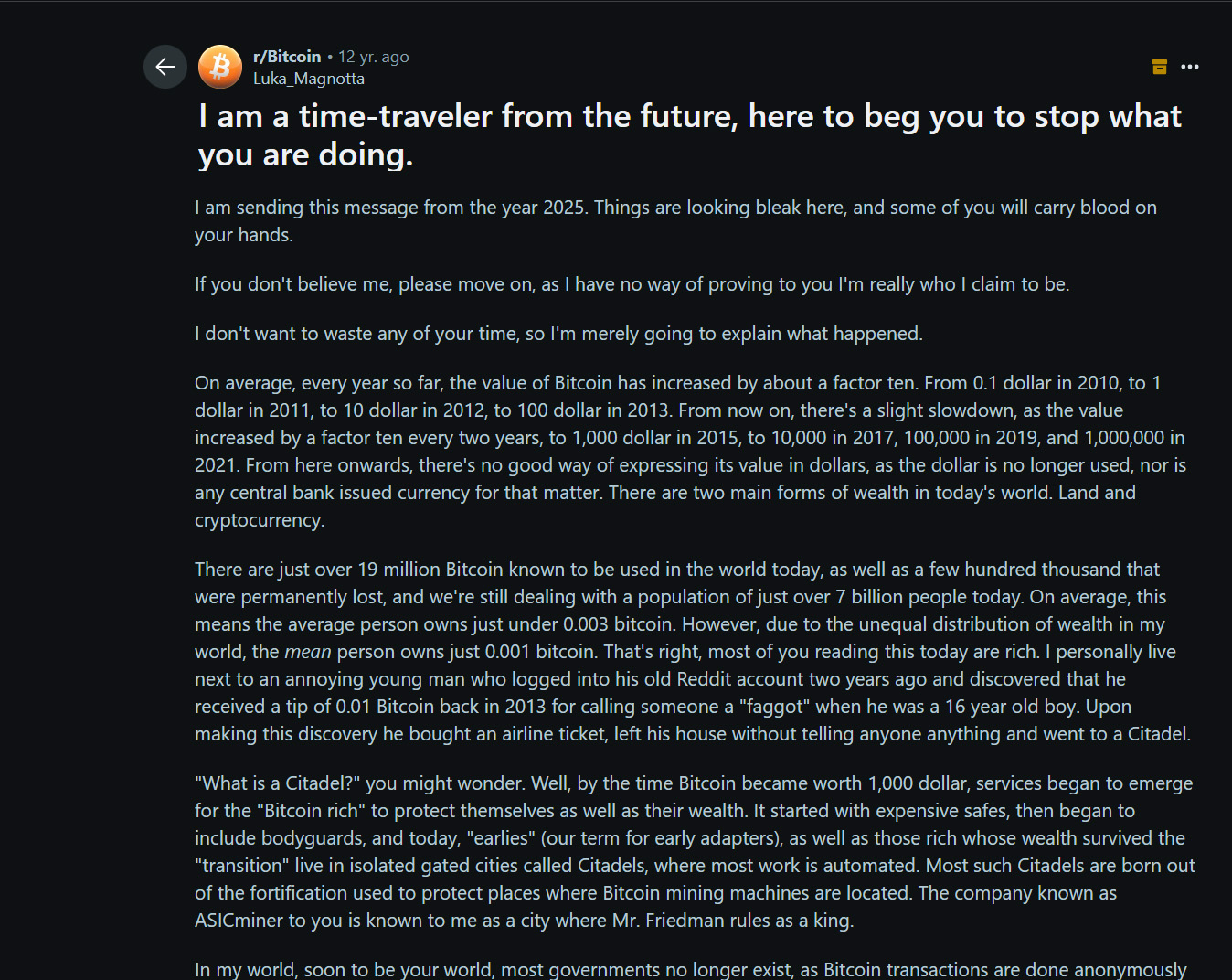
Years later, another anonymous user gave that warning a visual form. The Citadel v.1, likely created on 4chan, featured a massive tower cobbled together from borrowed imagery – most notably a background ripped from Alexander Mikhalchyk’s oil painting Tower of Babel. Red – overlaid with iconic internet figures like Pepe, Wojak, and the Bogdanoff twins. It was chaotic, funny, ominous. And it caught fire. Versions spread across forums. Variants emerged for Monero, Ethereum, and other Bitcoin-based class hierarchies. A whole mythology took shape around it.


I couldn’t stop thinking about that image. The symbolism. The verticality. The warning. It wasn’t just a meme – it was a map. A visual schema of power and belief, told in the language of the internet. And yet, it had never been physically painted. Never given the weight or permanence it deserved. That’s when I decided to create what I believe is the first fully hand-painted oil version of the Bitcoin Citadel meme.
The Citadel (v. Nardo) is 7 feet wide, 5 feet tall, and entirely rendered in oil by hand over six months. The tower in my painting is original – constructed from references to Bruegel’s depictions of Babel. The superimposed depictions of Pepe, the monk, the nobleman, even Jesus, are deliberate nods to the v.1 version, reimagined and integrated with painterly care. Nothing here is copy-pasted. Every inch is built to feel mythic, monumental, and true to the weight of the meme itself.
Like all my work, it’s meant to evoke grandeur, drama, and symbolic density. It’s meant to feel like a relic from a future past – something dug up from the ruins of digital civilization. My late professor once told me that the best art is both folkloric and provocative. That line never left me.
And that’s essentially what internet memes are. They are modern folklore. They encode belief, identity, warning, and aspiration in compressed symbols. They may start as jokes – but jokes have always been a delivery system for deeper truth. Memes don’t just survive online; they shape what we expect from reality.
The Citadel (v. Nardo) will be sold at auction via Scarce.City and debut at the Bitcoin Conference in Las Vegas – the largest gathering of Bitcoiners in the world. It’s not just a painting. It’s a response. A reckoning. A reminder.Because in the end, as I always say: you become what you meme.
This is a guest post by X-Nardo Opinions expressed are entirely their own and do not necessarily reflect those of BTC, Inc. or Bitcoin Magazine_._
This post The Citadel (v. Nardo): From Meme to Monument first appeared on Bitcoin Magazine and is written by X-Nardo.
-
 @ 57d1a264:69f1fee1
2025-05-24 06:07:19
@ 57d1a264:69f1fee1
2025-05-24 06:07:19Definition: when every single person in the chain responsible for shipping a product looks at objectively horrendous design decisions and goes: yup, this looks good to me, release this. Designers, developers, product managers, testers, quality assurance... everyone.
I nominate Peugeot as the first example in this category.
Continue reading at https://grumpy.website/1665
https://stacker.news/items/988044
-
 @ 57d1a264:69f1fee1
2025-05-24 05:53:43
@ 57d1a264:69f1fee1
2025-05-24 05:53:43This talks highlights tools for product management, UX design, web development, and content creation to embed accessibility.
Organizations need scalability and consistency in their accessibility work, aligning people, policies, and processes to integrate it across roles. This session highlights tools for product management, UX design, web development, and content creation to embed accessibility. We will explore inclusive personas, design artifacts, design systems, and content strategies to support developers and creators, with real-world examples.
https://www.youtube.com/watch?v=-M2cMLDU4u4
https://stacker.news/items/988041
-
 @ 9ca447d2:fbf5a36d
2025-05-22 14:01:52
@ 9ca447d2:fbf5a36d
2025-05-22 14:01:52Gen Z (those born between 1997 and 2012) are not rushing to stack sats, and Oliver Porter, Founder & CEO of Jippi, understands the challenge better than most. His strategy revolves around adapting Bitcoin education to fit seamlessly into the digital lives of young adults.
“We need to meet them where they are,” Oliver explains. “90% of Gen Z plays games. 70% expect to earn rewards.”
So, what will effectively introduce them to Bitcoin? In Oliver’s mind, the answer is simple: games that don’t feel preachy but still plant the orange pill.

Learn more at Jippi.app
That’s exactly what Jippi is. Based in Austin, Texas, the team has created a mobile augmented reality (AR) game that rewards players in bitcoin and sneakily teaches them why sound money matters.
“It’s Pokémon GO… but for sats,” Oliver puts it succinctly.

Jippi is like Pokemon Go, but for sats
Oliver’s Bitcoin journey, like many in the space, began long before he was ready. A former colleague had tried planting the seed years earlier, handing him a copy of The Bitcoin Standard. But the moment passed.
It wasn’t until the chaos of 2020 when lockdowns hit, printing presses roared, and civil liberties shrank that the message finally landed for him.
“The government got so good at doing reverse Robin Hood,” Oliver explains. “They steal from the working population and reward the rich.”
By 2020, though, the absurdity of the covid hysteria had caused his eyes to be opened and the orange light seemed the best path back to freedom.
He left the UK for Austin “one of the best places for Bitcoiners,” he says, and dove headfirst into the industry, working at Swan for a year before founding Jippi on PlebLab’s accelerator program.
Jippi’s flagship game lets players roam their cities hunting digital creatures, Bitcoin Beasts, tied to real-world locations. Catching them requires answering Bitcoin trivia, and the reward is sats.
No jargon. No hour-long lectures. Just gameplay with sound money principles woven right in.
The model is working. At a recent hackathon in Austin, Jippi beat out 14 other teams to win first place and $15,000 in prize money.

Oliver of Jippi won Top Builder Season 2 — PlebLab on X
“We’re backdooring Bitcoin education,” Oliver admits. “And while we’re at it, encouraging people to get outside and touch grass.”
Not everyone’s been thrilled. When Jippi team members visited one of the more liberal-leaning places in Texas, UT Austin, to test interest in Bitcoin, they found some seriously committed no-coiners on the campus.
“One young woman told me, ‘I would rather die than talk about Bitcoin,'” Oliver recalls, highlighting the cultural resistance that’s built up among younger demographics.
This resistance is backed by hard data. According to Oliver, some of the Bitcoin podcasters they met with in the space to do market research reported that less than 1% of their listeners are from Gen Z and that number is dropping.
“Unless we find a way to capture their interest in a meaningful way, there’s going to be a big problem around trying to sway Gen Z away from the siren call of s***coins and crypto casinos and towards Bitcoin,” Oliver warns.
Jippi’s next big move is Las Vegas, where they’ll launch the Beast Catch experience at the Venetian during a major Bitcoin event. To mark the occasion, they’re opening up six limited sponsorship spots for Bitcoin companies, each one tied to a custom in-game beast.

Jippi looks to launch a special event at Bitcoin 2025
“It’s real estate inside the game,” Oliver explains. “Brands become allies, not intrusions. You get a logo, company name, and call to action, so we can push people to your site or app.”
Bitcoin Well—an automatic self-custody Bitcoin platform—has claimed Beast #1. Only five exclusive spots remain for Bitcoin companies to “beastify their brand” through Jippi’s immersive AR game.
“I love the Jippi mission. I think gamified learning is how we will onboard the next generation and it’s exciting to see what the Jippi team is doing! I love working with bitcoiners towards our common mission – bullish!” said Adam O’Brien, Bitcoin Well CEO.
Jippi’s sponsorship model is simple: align incentives, respect users, and support builders. Instead of throwing ad money at tech giants, Bitcoin companies can connect with new users naturally while they’re having fun and earning sats in the process.
For Bitcoin companies looking to reach a younger demographic, this represents a unique opportunity to showcase their brand to up to 30,000 potential customers at the Vegas event.
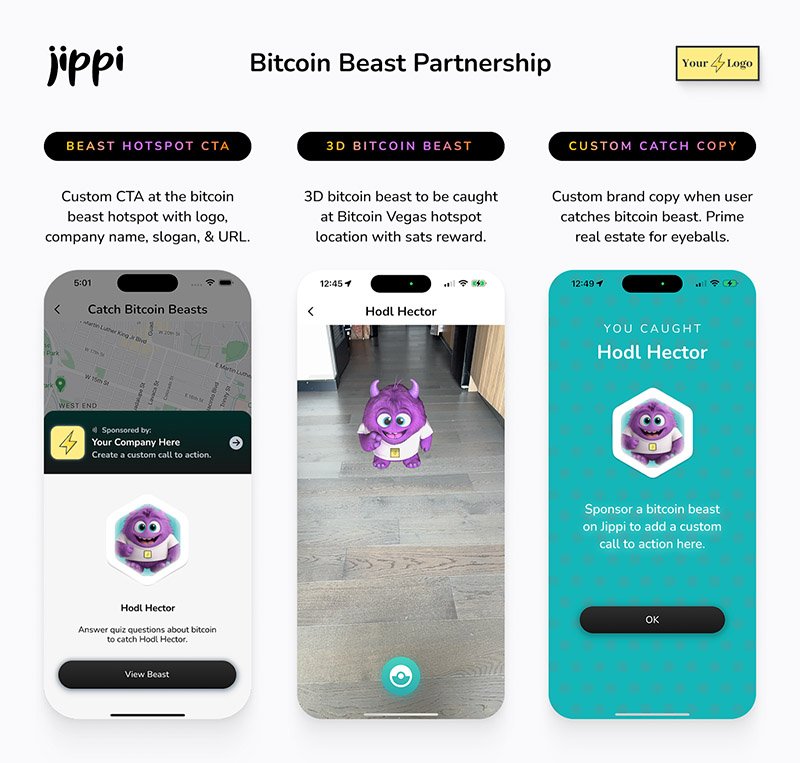
Jippi Bitcoin Beast partnership
While Jippi’s current focus is simple, get the game into more cities, Oliver sees a future where AR glasses and AI help personalize Bitcoin education even further.
“The magic is going to really happen when Apple releases the glasses form factor,” he says, describing how augmented reality could enhance real-world connections rather than isolate users.
In the longer term, Jippi aims to evolve from a free-to-play model toward a pay-to-play version with higher stakes. Users would form “tribes” with friends to compete for substantial bitcoin prizes, creating social connections along with financial education.
Unlike VC-backed startups, Jippi is raising funds pleb style via Timestamp, an open investment platform for Bitcoin companies.
“You don’t have to be an accredited investor,” Oliver explains. “You’re directly supporting the parallel Bitcoin economy by investing in Bitcoin companies for equity.”
Anyone can invest as little as $100. Perks include early access, exclusive game content, and even creating your own beast design with your name/pseudonym and unique game lore. Each investment comes with direct ownership of an early-stage Bitcoin company like Jippi.
For Oliver, this is more than just a business. It’s about future-proofing Bitcoin adoption and ensuring Satoshi’s vision lives on, especially as many people are lured by altcoins, NFTs, and social media dopamine.
“We’re on the right side of history,” he says firmly. “I want my grandkids to know that early on in the Bitcoin revolution, games like Jippi helped make it stick.”
In a world increasingly absorbed by screens and short attention spans, Jippi’s combination of outdoor play, sats rewards, and Bitcoin education might be exactly the bridge Gen Z needs.
Interested in sponsoring a Beast or investing in Jippi? Reach out to Jippi directly by heading to their partnerships page on their website or visit their Timestamp page to invest in Jippi today.
-
 @ 2e941ad1:fac7c2d0
2025-05-25 13:43:10
@ 2e941ad1:fac7c2d0
2025-05-25 13:43:10Unlocks: 25
-
 @ cae03c48:2a7d6671
2025-05-25 13:00:36
@ cae03c48:2a7d6671
2025-05-25 13:00:36Bitcoin Magazine

Are Bitcoin Long-Term Holders Starting to Sell?After a volatile start to 2025, Bitcoin has now reclaimed the $100,000 mark, setting a new all-time high and injecting renewed confidence into the market. But as prices soar, a critical question arises: are some of Bitcoin’s most experienced and successful holders, the long-term investors, starting to sell? In this piece, we’ll analyze what on-chain data reveals about long-term holder behavior and whether recent profit-taking should be a cause for concern, or simply a healthy part of Bitcoin’s market cycle.
Signs Of Profit-Taking Appear
The Spent Output Profit Ratio (SOPR) provides immediate insight into realized profit across the network. Zooming in on recent weeks, we can observe a clear uptick in profit realization. Clusters of green bars indicate that a noticeable number of investors are indeed selling BTC for profit, especially following the price rally from the $74,000–$75,000 range to new highs above $100,000.

Figure 1: The Spent Output Profit Ratio indicates notable recent profit realization. View Live Chart
However, while this might raise short-term concerns about potential overhead resistance, it’s crucial to frame this in the broader on-chain context. This isn’t unusual behavior in bull markets and does not, on its own, signal a cycle peak.
Long-Term Holder Supply Is Still Growing
The Long-Term Holder Supply, the total amount of Bitcoin held by addresses for at least 155 days, continues to climb, even as prices surge. This metric doesn’t necessarily mean fresh accumulation is occurring now, but rather that coins are aging into long-term status without being moved or sold.

Figure 2: Sharp increases in the Bitcoin Long-Term Holder Supply. View Live Chart
In other words, many investors who bought in late 2024 or early 2025 are holding strong, transitioning into long-term holders. This is a healthy dynamic typical of the earlier to mid-stages of bull markets, and not yet indicative of widespread distribution.
HODL Waves Analysis
To dig deeper, we use HODL Waves data, which breaks down BTC holdings by wallet age bands. When isolating wallets holding BTC for 6 months or more, we find that over 70% of the Bitcoin supply is currently held by mid to long-term participants.

Figure 3: HODL Waves analysis reveals mid- to long-term investors hold the majority of BTC. View Live Chart
Interestingly, while this number remains high, it has started to decrease slightly, indicating that a portion of long-term holders may be selling even as the long-term holder supply increases. The primary driver of the long-term holder supply growth appears to be short-term holders aging into the 155+ day bracket, not fresh accumulation or large-scale buying.

Figure 4: The inverse correlation between long-term holder supply rate and price.
Using raw Bitcoin Magazine Pro API data, we examined the rate of change in long-term holder balances, categorized by wallet age. When this metric trends downward significantly, it has historically coincided with cycle peaks. Conversely, when it spikes upward, it has often marked market bottoms and periods of deep accumulation.
Short-Term Shifts And Distribution Ratios
To enhance the accuracy of these signals, the data can be sliced more precisely by comparing very recent entrants (0–1 month holders) against those holding BTC for 1–5 years. This age band comparison provides more frequent and real-time insights into distribution patterns.

Figure 5: An age band holder distribution ratio provides valuable market insights.
We find that sharp drops in the ratio of 1–5 year holders relative to newer participants have historically aligned with Bitcoin tops, meanwhile, rapid increases in the ratio signal that more BTC is flowing into the hands of seasoned investors is often a precursor to major price rallies.
Ultimately, monitoring long-term investor behavior is one of the most effective ways to gauge market sentiment and the sustainability of price movements. Long-term holders historically outperform short-term traders by buying during fear and holding through volatility. By examining the age-based distribution of BTC holdings, we can gain a clearer view of potential tops and bottoms in the market, without relying solely on price action or short-term sentiment.
Conclusion
As it stands, there is only a minor level of distribution among long-term holders, nowhere near the scale that historically signals cycle tops. Profit-taking is occurring, yes, but at a pace that appears entirely sustainable and typical of a healthy market environment. Given the current stage of the bull cycle and the positioning of institutional and retail participants, the data suggests we are still within a structurally strong phase, with room for further price growth as new capital flows in.
For more deep-dive research, technical indicators, real-time market alerts, and access to a growing community of analysts, visit BitcoinMagazinePro.com.
Disclaimer: This article is for informational purposes only and should not be considered financial advice. Always do your own research before making any investment decisions.
This post Are Bitcoin Long-Term Holders Starting to Sell? first appeared on Bitcoin Magazine and is written by Matt Crosby.
-
 @ 57d1a264:69f1fee1
2025-05-22 13:13:36
@ 57d1a264:69f1fee1
2025-05-22 13:13:36Graphics materials for Bitcoin Knots https://github.com/bitcoinknots branding. See below guide image for reference, a bit cleaner and scalable:
Font family "Aileron" is provided free for personal and commercial use, and can be found here: https://www.1001fonts.com/aileron-font.html
Source: https://github.com/Blissmode/bitcoinknots-gfx/tree/main
https://stacker.news/items/986624
-
 @ cae03c48:2a7d6671
2025-05-25 13:00:35
@ cae03c48:2a7d6671
2025-05-25 13:00:35Bitcoin Magazine

Semler Scientific Buys Additional $50 Million Worth of BitcoinMedical equipment provider Semler Scientific has acquired 455 Bitcoin for $50 million, marking it one of the largest purchases as more publicly traded companies continue to adopt Bitcoin treasury strategies.
According to a Form 8-K filed with the SEC on May 23, the company purchased the Bitcoin between May 13 and May 22 at an average price of $109,801 per coin, including fees. The acquisition brings Semler’s total Bitcoin holdings to 4,264 BTC, acquired at an aggregate cost of $390 million.
The purchase was funded through Semler’s at-the-market (ATM) equity offering program, which has raised approximately $114.8 million since its launch in April 2025. The company has issued 3,003,488 shares under the $500 million program to date.
“$SMLR acquires 455 Bitcoins for $50 million and has generated BTC Yield of 25.8% YTD. Now holding 4,264 $BTC. Flywheel in motion. ,” said Eric Semler, Chairman of Semler Scientific. The company’s Bitcoin holdings are now valued at approximately $474.4 million based on current market prices.
Semler reported its Bitcoin Yield – a key performance indicator measuring the year-to-date percentage change in total Bitcoin holdings relative to diluted shares outstanding – has reached 25.8% in 2025. The metric has become a standard measure among public companies holding Bitcoin on their balance sheets.
The company maintains a Bitcoin Dashboard on its website to provide transparent information about its holdings, including market data, performance metrics, and acquisition details, as part of its Regulation FD compliance strategy.
Semler’s move comes amid accelerating corporate Bitcoin adoption in 2025, with over 40 public companies announcing Bitcoin treasury programs this year alone. The market has shown increased sensitivity to corporate treasury activities as institutional adoption continues to grow.
The company’s latest Bitcoin purchase reinforces the growing trend of public companies using equity offerings to fund Bitcoin acquisitions, a strategy pioneered by larger players like Strategy, which recently added 7,390 BTC to its holdings through a similar funding mechanism.
This post Semler Scientific Buys Additional $50 Million Worth of Bitcoin first appeared on Bitcoin Magazine and is written by Vivek Sen.
-
 @ dfa02707:41ca50e3
2025-05-25 13:01:36
@ dfa02707:41ca50e3
2025-05-25 13:01:36Contribute to keep No Bullshit Bitcoin news going.
- The latest firmware updates for COLDCARD devices introduce two major features: COLDCARD Co-sign (CCC) and Key Teleport between two COLDCARD Q devices using QR codes and/or NFC with a website.

What's new
- COLDCARD Co-Sign: When CCC is enabled, a second seed called the Spending Policy Key (Key C) is added to the device. This seed works with the device's Main Seed and one or more additional XPUBs (Backup Keys) to form 2-of-N multisig wallets.
- The spending policy functions like a hardware security module (HSM), enforcing rules such as magnitude and velocity limits, address whitelisting, and 2FA authentication to protect funds while maintaining flexibility and control, and is enforced each time the Spending Policy Key is used for signing.
- When spending conditions are met, the COLDCARD signs the partially signed bitcoin transaction (PSBT) with the Main Seed and Spending Policy Key for fund access. Once configured, the Spending Policy Key is required to view or change the policy, and violations are denied without explanation.
"You can override the spending policy at any time by signing with either a Backup Key and the Main Seed or two Backup Keys, depending on the number of keys (N) in the multisig."
-
A step-by-step guide for setting up CCC is available here.
-
Key Teleport for Q devices allows users to securely transfer sensitive data such as seed phrases (words, xprv), secure notes and passwords, and PSBTs for multisig. It uses QR codes or NFC, along with a helper website, to ensure reliable transmission, keeping your sensitive data protected throughout the process.
- For more technical details, see the protocol spec.
"After you sign a multisig PSBT, you have option to “Key Teleport” the PSBT file to any one of the other signers in the wallet. We already have a shared pubkey with them, so the process is simple and does not require any action on their part in advance. Plus, starting in this firmware release, COLDCARD can finalize multisig transactions, so the last signer can publish the signed transaction via PushTX (NFC tap) to get it on the blockchain directly."
- Multisig transactions are finalized when sufficiently signed. It streamlines the use of PushTX with multisig wallets.
- Signing artifacts re-export to various media. Users are now provided with the capability to export signing products, like transactions or PSBTs, to alternative media rather than the original source. For example, if a PSBT is received through a QR code, it can be signed and saved onto an SD card if needed.
- Multisig export files are signed now. Public keys are encoded as P2PKH address for all multisg signature exports. Learn more about it here.
- NFC export usability upgrade: NFC keeps exporting until CANCEL/X is pressed.
- Added Bitcoin Safe option to Export Wallet.
- 10% performance improvement in USB upload speed for large files.
- Q: Always choose the biggest possible display size for QR.
Fixes
- Do not allow change Main PIN to same value already used as Trick PIN, even if Trick PIN is hidden.
- Fix stuck progress bar under
Receiving...after a USB communications failure. - Showing derivation path in Address Explorer for root key (m) showed double slash (//).
- Can restore developer backup with custom password other than 12 words format.
- Virtual Disk auto mode ignores already signed PSBTs (with “-signed” in file name).
- Virtual Disk auto mode stuck on “Reading…” screen sometimes.
- Finalization of foreign inputs from partial signatures. Thanks Christian Uebber!
- Temporary seed from COLDCARD backup failed to load stored multisig wallets.
Destroy Seedalso removes all Trick PINs from SE2.Lock Down Seedrequires pressing confirm key (4) to execute.- Q only: Only BBQr is allowed to export Coldcard, Core, and pretty descriptor.
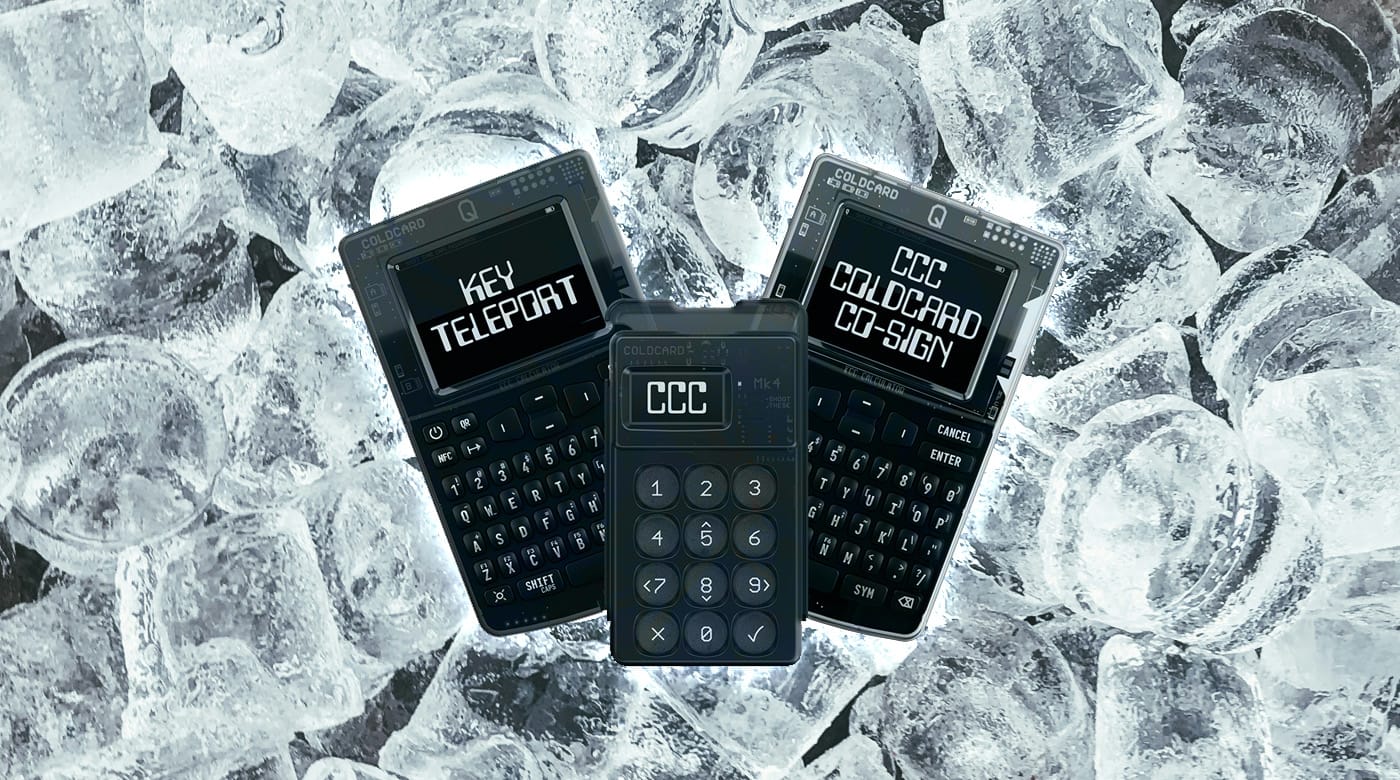
-
 @ 57d1a264:69f1fee1
2025-05-22 12:36:20
@ 57d1a264:69f1fee1
2025-05-22 12:36:20Graphics materials for Bitcoin Knots https://github.com/bitcoinknots branding. See below guide image for reference, a bit cleaner and scalable:
Font family "Aileron" is provided free for personal and commercial use, and can be found here: https://www.1001fonts.com/aileron-font.html
Source: https://github.com/Blissmode/bitcoinknots-gfx/tree/main
https://stacker.news/items/986587
-
 @ cae03c48:2a7d6671
2025-05-25 13:00:34
@ cae03c48:2a7d6671
2025-05-25 13:00:34Bitcoin Magazine

The Bitcoin Mempool: Relay Network DynamicsIn the last Mempool article, I went over the different kinds of relay policy filters, why they exist, and the incentives that ultimately decide how effective each class of filter is at preventing the confirmation of different classes of transactions. In this piece I’ll be looking at the dynamics of the relay network when some nodes on the network are running different relay policies compared to other nodes.
All else being equal, when nodes on the network are running homogenous relay policies in their mempools, all transactions should propagate across the entire network given that they pay the minimum feerate necessary not to be evicted from a node’s mempool during times of large transaction backlogs. This changes when different nodes on the network are running heterogenous policies.
The Bitcoin relay network operates on a best effort basis, using what is called a flood-fill architecture. This means that when a transaction is received by one node, it is forwarded to every other node it is connected to except the one that it received the transaction from. This is a highly inefficient network architecture, but in the context of a decentralized system it provides a high degree of guarantee that the transaction will eventually reach its intended destination, the miners.
Introducing filters in a node’s relay policy to restrict the relaying of otherwise valid transactions in theory introduces friction to the propagation of that transaction, and degrades the reliability of the network’s ability to perform this function. In practice, things aren’t that simple.
How Much Friction Prevents Propagation
Let’s look at a simplified example of different network node compositions. In the following graphics blue nodes represent ones that will propagate some arbitrary class of consensus valid transactions, and red nodes represent ones that will not propagate those transactions. The collective set of miners is denoted in the center as a simple representation of where transacting users ultimately want their transactions to wind up so as to eventually be confirmed in the blockchain.

This is a model of the network in which the nodes refusing to propagate these transactions are a clear minority. As you can clearly see, any node on the network that accepts them has a clear path to relay them to the miners. The two nodes attempting to restrict the transactions propagation across the network have no effect on their eventual receipt by miners’ nodes.

In this diagram, you can see that almost half of the example network is instituting filtering policies for this class of transactions. Despite this, only part of the network that propagates these transactions is cut off from a path to miners. The rest of the nodes not filtering still have a clear path to miners. This has introduced some degree of friction for a subset of users, but the others can still freely engage in propagating these transactions.
Even for the users that are affected by filtering nodes, only a single connection to the rest of the network nodes that are not cut off from miners (or a direct connection to a miner) is necessary in order for that friction to be removed. If the real relay network were to have a similar composition to this example, all it would take is a single new connection to alleviate the problem.

In this scenario, only a tiny minority of the network is actually propagating these transactions. The rest of the network is engaging in filtering policies to prevent their propagation. Even in this case however, those nodes that are not filtering still have a clear path to propagate them to miners.
Only this tiny minority of non-filtering nodes is necessary in order to ensure their eventual propagation to miners. Preferential peering logic, i.e. functionality to ensure that your node prefers peers who implement the same software version or relay policies. These types of solutions can guarantee that peers who will propagate something to others won’t find each other and maintain connections amongst themselves across the network.
The Tolerant Minority
As you can see looking at these different examples, even in the face of an overwhelming majority of the public network engaging in filtering of a specific class of transactions, all that is necessary for them to successfully propagate across the network to miners is a small minority of the network to propagate and relay them.
These nodes will essentially, through whatever technical mechanism, create a “sub-network” within the larger public relay network in order to guarantee that there are viable paths from users engaging in these types of transactions to the miners willing to include them in their blocks.
There is essentially nothing that can be done to counter this dynamic except to engage in a sybil attack against all of these nodes, and sybil attacks only need a single honest connection in order to be completely defeated. As well, an honest node creating a very large number of connections with other nodes on the network can raise the cost of such a sybil attack exorbitantly. The more connections it creates, the more sybil nodes must be spun up in order to consume all of its connection slots.
What If There Is No Minority?
So what if there is no Tolerant Minority? What will happen to this class of transactions in that case?

If users still want to make them and pay fees to miners for them, they will be confirmed. Miners will simply set up an API. The role of miners is to confirm transactions, and the reason they do so is to maximize profit. Miners are not selfless entities, or morally or ideologically motivated, they are a business. They exist to make money.
If users exist that are willing to pay them money for a certain type of transaction, and the entirety of the public relay network is refusing to propagate those transactions to miners in order to include them in blocks, miners will create another way for users to submit those transactions to them.
It is simply the rational move to make as a profit motivated actor when customers exist that wish to pay you money.
Relay Policy Is Not A Replacement For Consensus
At the end of the day, relay policy cannot successfully censor transactions if they are consensus valid, users are willing to pay for them, and miners do not have some extenuating circumstances to turn down the fees users are willing to pay (such as causing material damage or harm to nodes on the network, i.e. crashing nodes, propagating blocks that take hours to verify on a consumer PC, etc.).
If some class of transactions is truly seen as undesirable by Bitcoin users and node operators, there is no solution to stopping them from being confirmed in the blockchain short of enacting a consensus change to make them invalid.
If it were possible to simply prevent transactions from being confirmed by filtering policies implemented on the relay network, then Bitcoin would not be censorship resistant.
This post The Bitcoin Mempool: Relay Network Dynamics first appeared on Bitcoin Magazine and is written by Shinobi.
-
 @ cae03c48:2a7d6671
2025-05-25 13:00:33
@ cae03c48:2a7d6671
2025-05-25 13:00:33Bitcoin Magazine
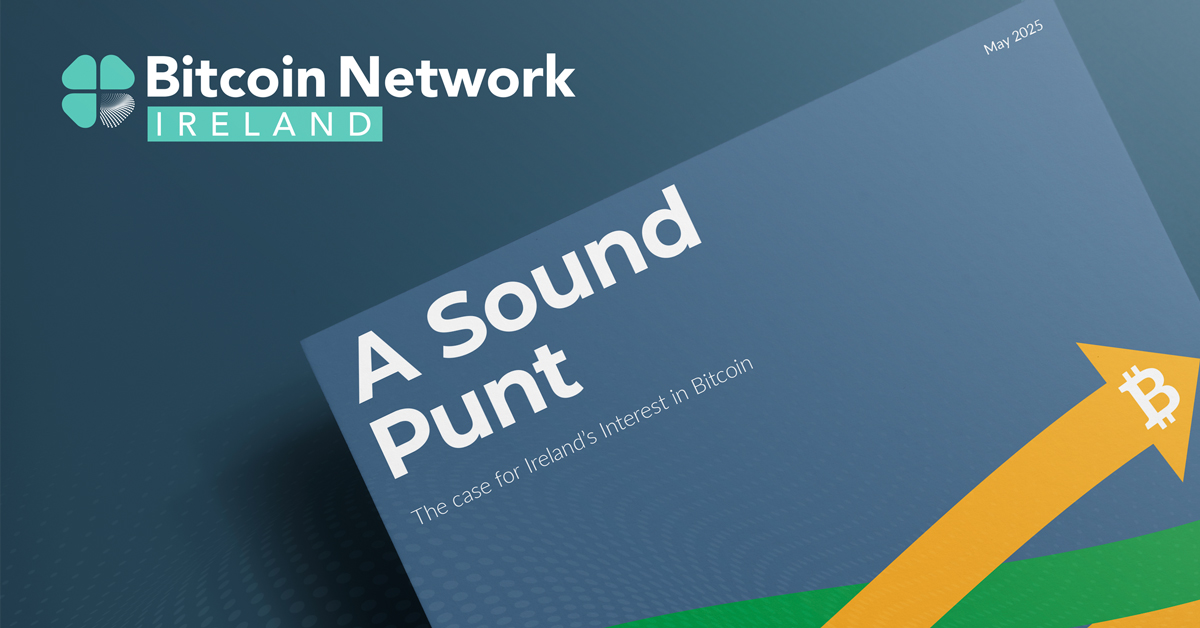
Something is Brewing in Ireland: A Sound Punt Is Released, As Bitcoin Enters The National ConversationFor years, Bitcoin in Ireland has quietly simmered at the grassroots level—discussed in pubs and meetups, debated in Telegram groups, and occasionally splashed across headlines with predictable suspicion. But recently, the temperature is beginning to rise. With the release of “A Sound Punt: The Case for Ireland’s Interest in Bitcoin” by Bitcoin Network Ireland (BNI), and a weekend that sees both the Bitcoin Ireland Conference and Aontú’s Ard Fheis, it’s clear momentum is building on the Emerald Isle.
A Sound Punt: A Paper for the Citizens of Ireland
The new paper, released today by Bitcoin Network Ireland, is a concise, accessible document crafted to cut through the noise and present the merits of Bitcoin to the general public and politicians alike. Its aim is straightforward: provide a rational, jargon-free entry point into why Bitcoin matters, especially in an era of euro debasement and rising living costs.
The name itself is a clever pun—while it is a nod to both “sound money” and Ireland’s former currency, the punt, it also playfully suggests that although the majority of people view it as associated with risk, this may be worth reevaluating. It’s a signal that this is about more than technology: it’s about claiming monetary sovereignty and re-examining what makes money “good” in the first place.
What BNI is attempting to accomplish is bridging an important gap in understanding, helping citizens seeking change and government officials looking for solutions to recognize that sound, stateless money has value for everyone. As Parker Lewis famously noted, “Like all successful monies, Bitcoin is money for enemies“—a neutral system that serves all participants regardless of their political stance.
Ireland’s Long and Complicated Relationship With Money
To appreciate the significance of this moment, it’s worth noting that Ireland’s relationship with money has always been distinct from its European neighbors. While the Romans introduced coinage to Britain over a thousand years before it was adopted in Ireland. The native Irish resisted state-issued money, relying instead on barter and bullion well into the second millennium.
In ancient Ireland, the absence of coinage was a testament to a society that was stateless, highly decentralised, and it embraced a polycentric legal system varying between clans. The ideal of that society was that no man in society has rule over others, and even kings could be disposed of if they abused their power.
So it’s perhaps no coincidence that Ireland was the last European society to adopt coinage, as coinage gives power to rulers. Eventually, it was forced upon the land by the English crown in 1601, this period coincided with the final stages of the Nine Years’ War (1594-1603) and the increasing English control over Ireland. To this day, Ireland has never had its own free-floating currency; it has always been tethered to external powers: first the pound sterling, then the European Monetary System, and now the euro under the ECB. So it should come as no coincidence that in recent years, the EU is growing unabated in power and influence over Ireland.
“Give me control over a nation’s currency, and I care not who makes its laws.” — Mayer Amschel Rothschild (1743–1812)
Perhaps, given this historical context, Ireland is uniquely positioned to understand the value of sound, stateless money. Bitcoin represents a return to the monetary independence that preceded state-issued currencies, but with the technological advantages of the digital age. Where ancient Irish kingdoms used market goods that couldn’t be manipulated by distant authorities, Bitcoin offers a modern equivalent: a system that can’t be debased or controlled by any power, whether domestic or foreign.
This historical skepticism toward centrally-controlled currency is resurfacing in the present, as the Irish state and its citizens face a new wave of economic uncertainty via euro debasement and tariffs. Geopolitical and economic tensions have rarely felt less stable. Tariff disputes, renewed questions over Ireland’s foreign direct-investment model, and potential tech and pharma layoffs are sure to sharpen the focus on sovereignty and resilience. The release of “A Sound Punt” is timely, inviting the nation to once again question the wisdom of tying its fortunes to distant monetary authorities.
A Political Crossroads
Coinciding with the release of “A Sound Punt,” Dr. Niall Burke—a respected academic and BNI member—will be putting forward two motions at the Aontú Ard Fheis (party conference). Aontú, the party that saw the largest surge in votes in the last general election, has shown itself to be receptive to Bitcoin and is opening its doors to conversations that, until recently, were relegated to the margins. That Bitcoin motions are being presented and accepted at a major party conference is a marker of how the conversation is turning.
Meanwhile, the Bitcoin Ireland Conference is gathering the country’s growing community of plebs, builders, and advocates. These circles, once on the periphery, are now finding doors opening in political circles.
Public Discontent and a Call for Financial Autonomy
It’s not just Bitcoiners who are seeking alternatives. Ireland is witnessing its largest public demonstrations since the post-GFC days of 2012. Recent marches have drawn in excess of 100,000 people to the streets of Dublin. These protests reflect deep frustration and a sense that the political establishment is no longer in alignment with its people.
What’s particularly striking is how Bitcoin could serve as common ground for seemingly opposing interests. For protesters, Bitcoin offers protection from inflation and defends against government overreach. For a government concerned about economic stability and growth, Bitcoin may be the very solution it needs, especially to protect pension funds and indeed the state’s very own investment fund—ISIF, from inflation over the coming decades. This is the paradox and promise of sound, stateless money. It serves everyone’s interests because it enforces property rights, and can’t be captured or controlled by any single faction.
Last, but not least, MMA star Conor McGregor’s foray into both politics and Bitcoin is something few would have predicted a year ago, but for those with an ear to the ground, this has been a developing story for some time. His proposal for a national Bitcoin reserve is emblematic of a broader national shift: Bitcoin is finally entering the Zeitgeist and perhaps he, like BNI, has a part to play in keeping it there.
Bitcoin is an open-source monetary protocol, and adoption comes from all quarters, irrespective of politics. Bitcoin is neutral, it supports no partisan cause. What’s perhaps not recognized enough is how empowering Bitcoin can be and we should focus on its ability to unite rather than divide, giving every Irish citizen—regardless of their political views—tools for individual liberty, inflation protection, as well as practical solutions for businesses.
Back to “A Sound Punt” Paper
The paper itself makes a compelling case for Ireland’s interest in Bitcoin:
- Sound Money Principles: It evaluates Bitcoin against the six characteristics of “good money”—durability, divisibility, uniformity, portability, verifiability, and scarcity.
- Store of Value: The document highlights Bitcoin’s fixed supply as protection against rising inflation and currency debasement.
- Practical Examples: It provides evidence of Bitcoin’s monetization, comparing the costs of buying a home in Euros vs. Bitcoin over the span of a decade.
- Common Concern Rebuttals: The paper addresses the most common objections to Bitcoin—energy usage, volatility, criminal activity, undermining traditional currencies, and speculation—offering balanced counterarguments to each.
- Action Steps: Rather than just theoretical arguments, the paper outlines specific actions for individuals, businesses, and the government to consider, from education to strategic Bitcoin reserves.
The Beginning of a Process
No one expects the Irish government to announce a Bitcoin treasury next week, and it’s debatable whether it should establish one at all. But “A Sound Punt” marks the beginning of a process that could, in time, help reshape Ireland’s approach to money and economic sovereignty.
This accessible primer is just the first step in Bitcoin Network Ireland’s broader educational mission. BNI plans to publish a much more comprehensive policy paper for policymakers in the coming months, which is currently going through the editing phase. While “A Sound Punt” introduces the concepts to the general public, the forthcoming document will provide the detailed analysis and policy recommendations that decision-makers need.
As BNI works to elevate this conversation through both public education and
-
 @ 57d1a264:69f1fee1
2025-05-22 06:21:22
@ 57d1a264:69f1fee1
2025-05-22 06:21:22You’ve probably seen it before.
You open an agency’s website or a freelancer’s portfolio. At the very top of the homepage, it says:
We design for startups.
You wait 3 seconds. The last word fades out and a new one fades in:
We design for agencies.
Wait 3 more seconds:
We design for founders.
I call this design pattern The Wheel of Nothing: a rotating list of audience segments meant to impress through inclusion and draw attention through motion… for absolutely no reason.
Revered brand studio Pentagram recently launched a new website. To my surprise, the homepage features the Wheel of Nothing front and center, boldly claiming:
We design Everything for Everyone…before cycling through more specific combinations every few seconds.
Dan Mall, a husband, dad, teacher, creative director, designer, founder, and entrepreneur from Philly. I share as much as I can to create better opportunities for those who wouldn’t have them otherwise. Most recently, I ran design system consultancy SuperFriendly for over a decade.
Read more at Dans' website https://danmall.com/posts/the-wheel-of-nothing/
https://stacker.news/items/986392
-
 @ 21335073:a244b1ad
2025-05-21 16:58:36
@ 21335073:a244b1ad
2025-05-21 16:58:36The other day, I had the privilege of sitting down with one of my favorite living artists. Our conversation was so captivating that I felt compelled to share it. I’m leaving his name out for privacy.
Since our last meeting, I’d watched a documentary about his life, one he’d helped create. I told him how much I admired his openness in it. There’s something strange about knowing intimate details of someone’s life when they know so little about yours—it’s almost like I knew him too well for the kind of relationship we have.
He paused, then said quietly, with a shy grin, that watching the documentary made him realize how “odd and eccentric” he is. I laughed and told him he’s probably the sanest person I know. Because he’s lived fully, chasing love, passion, and purpose with hardly any regrets. He’s truly lived.
Today, I turn 44, and I’ll admit I’m a bit eccentric myself. I think I came into the world this way. I’ve made mistakes along the way, but I carry few regrets. Every misstep taught me something. And as I age, I’m not interested in blending in with the world—I’ll probably just lean further into my own brand of “weird.” I want to live life to the brim. The older I get, the more I see that the “normal” folks often seem less grounded than the eccentric artists who dare to live boldly. Life’s too short to just exist, actually live.
I’m not saying to be strange just for the sake of it. But I’ve seen what the crowd celebrates, and I’m not impressed. Forge your own path, even if it feels lonely or unpopular at times.
It’s easy to scroll through the news and feel discouraged. But actually, this is one of the most incredible times to be alive! I wake up every day grateful to be here, now. The future is bursting with possibility—I can feel it.
So, to my fellow weirdos on nostr: stay bold. Keep dreaming, keep pushing, no matter what’s trending. Stay wild enough to believe in a free internet for all. Freedom is radical—hold it tight. Live with the soul of an artist and the grit of a fighter. Thanks for inspiring me and so many others to keep hoping. Thank you all for making the last year of my life so special.
-
 @ 26769dac:498e333b
2025-05-25 12:51:09
@ 26769dac:498e333b
2025-05-25 12:51:09Here's to the ones who can\ Feel there cause\ Surrender\ Change their ways\ But keep their fire\ And never give up
We will transform this world\ Restructuring\ One belief at a time
-
 @ 8aa70f44:3073d1a6
2025-05-21 13:07:14
@ 8aa70f44:3073d1a6
2025-05-21 13:07:14Earlier this year I launched the asknostr.site project which has been a great journey and learning experience. I had wanted to write down my goals and ideas with the project but didn't get to it yet. Primal launching the article editor was a trigger for me to go for it.
Ever since I joined Nostr i was looking for ways to apply my skillset solve a problem and help with adoption. Around Christmas I figured that a Quora/Stackoverflow alternative is something that needs to exist on Nostr.
Before I knew it I had a pretty decent prototype. And because the network already had so much awesome content, contributors and authors I was never discouraged by the challenge that kills so many good ideas -> "Where do I get the first users?".
Since the initial announcement I have received so much encouragement through zaps, likes, DM's, and maybe most of all seeing the increase in usage of the site and #asknostr content kept me going.
Current State
The current version of the site is stable and most bugs are hashed out. After logging in (remote signer, extension or nsec) you can engage with content through votes, comments and replies. Or simply ask a new question.
All content is stored in the site's own private relay and preprocessed/computed into a single data store (postgres) so the site is fast, accessible and crawl-able.
The site supports browsing hashtags, voting/commenting on answers, asking new questions and every contributor get their own profile (example). At the time of writing the site has 41k questions, almost 200k replies/comments and upwards of 5 million sats purely for #asknostr content.
What to expect/On my list
There are plenty of things and UI bugs that need love and between writing the draft of this post and hitting publish I shipped 3 minor bug fixes. Little by little, bit by bit...
In addition to all those small details here is an overview of the things on my own wish list:
-
Inline Zaps: Ability to zap from the asknostr.site interface. Click the zap button, specify or pick the number of sats zap away.
-
Contributor Rank: A leaderboard to add some gamification. More recognition to those nostriches that spend their time helping other people out
-
Search by Keyword: Search all content by keywords. Experiment with the index to show related questions or answers
-
Better User Profiles: Improve the user profile so it shows all the profile questions and answers. Quick buttons to follow or zap that person. Better insights in the topics (hashtags) the profile contributes to
-
Bookmarks: Ability to bookmark questions and answers. Increase bookmark weight as a signal to rank answers.
-
Smarter Scoring: Tune how answers are scored (winning answer formula). Perhaps give more weight to the question author or use WoT. Not sure yet.
All of this is happening at some point so follow me if you want to stay up to date.
Goals
To manage expectations and keep me focussed I write down the mid and long term goals of the project.
Long term
Call me cheesy but I believe that humanity will flourish through an open web and sound money. My own journey started from with bitcoin but if you asked me today if it's BTC or nostr that is going to have the most impact I wouldn't know what to answer. Chicken or egg?
The goal of the project is to offer an open platform that empowers individuals to ask questions, share expertise and access high-quality information across different topics. The project empowers anyone to monetize their experience creating a sustainable ecosystem that values and rewards knowledge sharing. This will ultimately democratize access to knowledge for all.
Mid term
The project can help a lot with onboarding new users onto the network. Once we start to rank on certain topics we can get a piece of the search traffic pie (StackOverflows 12 million, and Quora 150 million visitors per month) which is a great way to expose people to the power of the network.
First time visitors do not need to know about nostr or zaps to receive value. They can browse around, discover interesting content and perhaps even create a profile without even knowing they are on Nostr now.
Gradually those users will understand the value of the network through better rankings (zaps beats likes), a cross-client experience and a profile that can be used on any nostr site or app.
In order for the site to do that we need to make sure content is browsable by language, (sub)topics and and we double down on 'the human touch' with real contributors and not LLMs.
Short Term Goal
The first goal is to make the site really good and an important resource for existing Nostr users. Enable visitors to search and discover what they are interested in. Integrate within the existing nostr eco system with 'open in' functionality and quick links to interesting projects (followerpacks?)
One of things i want to get right is to improve user retention by making the whole Q\&A experience more sticky. I want to run some experiments (bots, award, summaries) to get more people to use asknostr.site more often and come back.
What about the name?
Finally the big question: What about the asknostr.site name? I don't like the name that much but it's what people know. I think there is a high chance that people will discover Nostr apps like Olas, Primal or Damus without needing to know what NOSTR is or means.
Therefore I think there is a good chance that the project won't be called asknostr.site forever. I guess it all depends on where we all take this.
Onwards!
-
-
 @ 26769dac:498e333b
2025-05-25 12:24:47
@ 26769dac:498e333b
2025-05-25 12:24:47Here's to the ones who can\ Feel there cause\ Surrender\ Change their ways\ But keep their fire\ And never give up
We will transform this world\ Restructuring\ One belief at a time
-
 @ 57d1a264:69f1fee1
2025-05-21 05:47:41
@ 57d1a264:69f1fee1
2025-05-21 05:47:41As a product builder over too many years to mention, I’ve lost count of the number of times I’ve seen promising ideas go from zero to hero in a few weeks, only to fizzle out within months.
The problem with most finance apps, however, is that they often become a reflection of the internal politics of the business rather than an experience solely designed around the customer. This means that the focus is on delivering as many features and functionalities as possible to satisfy the needs and desires of competing internal departments, rather than providing a clear value proposition that is focused on what the people out there in the real world want. As a result, these products can very easily bloat to become a mixed bag of confusing, unrelated and ultimately unlovable customer experiences—a feature salad, you might say.
Financial products, which is the field I work in, are no exception. With people’s real hard-earned money on the line, user expectations running high, and a crowded market, it’s tempting to throw as many features at the wall as possible and hope something sticks. But this approach is a recipe for disaster.
Here’s why: https://alistapart.com/article/from-beta-to-bedrock-build-products-that-stick/
https://stacker.news/items/985285
-
 @ 7f6db517:a4931eda
2025-05-25 13:01:40
@ 7f6db517:a4931eda
2025-05-25 13:01:40
Bank run on every crypto bank then bank run on every "real" bank.
— ODELL (@ODELL) December 14, 2022
The four main banks of bitcoin and “crypto” are Signature, Prime Trust, Silvergate, and Silicon Valley Bank. Prime Trust does not custody funds themselves but rather maintains deposit accounts at BMO Harris Bank, Cross River, Lexicon Bank, MVB Bank, and Signature Bank. Silvergate and Silicon Valley Bank have already stopped withdrawals. More banks will go down before the chaos stops. None of them have sufficient reserves to meet withdrawals.
Bitcoin gives us all the ability to opt out of a system that has massive layers of counterparty risk built in, years of cheap money and broken incentives have layered risk on top of risk throughout the entire global economy. If you thought the FTX bank run was painful to watch, I have bad news for you: every major bank in the world is fractional reserve. Bitcoin held in self custody is unique in its lack of counterparty risk, as global market chaos unwinds this will become much more obvious.
The rules of bitcoin are extremely hard to change by design. Anyone can access the network directly without a trusted third party by using their own node. Owning more bitcoin does not give you more control over the network with all participants on equal footing.
Bitcoin is:
- money that is not controlled by a company or government
- money that can be spent or saved without permission
- money that is provably scarce and should increase in purchasing power with adoptionBitcoin is money without trust. Whether you are a nation state, corporation, or an individual, you can use bitcoin to spend or save without permission. Social media will accelerate the already deteriorating trust in our institutions and as this trust continues to crumble the value of trust minimized money will become obvious. As adoption increases so should the purchasing power of bitcoin.
A quick note on "stablecoins," such as USDC - it is important to remember that they rely on trusted custodians. They have the same risk as funds held directly in bank accounts with additional counterparty risk on top. The trusted custodians can be pressured by gov, exit scam, or caught up in fraud. Funds can and will be frozen at will. This is a distinctly different trust model than bitcoin, which is a native bearer token that does not rely on any centralized entity or custodian.
Most bitcoin exchanges have exposure to these failing banks. Expect more chaos and confusion as this all unwinds. Withdraw any bitcoin to your own wallet ASAP.
Simple Self Custody Guide: https://werunbtc.com/muun
More Secure Cold Storage Guide: https://werunbtc.com/coldcard
If you found this post helpful support my work with bitcoin.

-
 @ 3283ef81:0a531a33
2025-05-25 12:14:51
@ 3283ef81:0a531a33
2025-05-25 12:14:51Aliquam eu turpis sed enim ultricies scelerisque\ Duis posuere congue faucibus
Praesent pretium orci ante, et faucibus lectus euismod a
-
 @ 7f6db517:a4931eda
2025-05-25 12:01:37
@ 7f6db517:a4931eda
2025-05-25 12:01:37
People forget Bear Stearns failed March 2008 - months of denial followed before the public realized how bad the situation was under the surface.
Similar happening now but much larger scale. They did not fix fundamental issues after 2008 - everything is more fragile.
The Fed preemptively bailed out every bank with their BTFP program and First Republic Bank still failed. The second largest bank failure in history.
There will be more failures. There will be more bailouts. Depositors will be "protected" by socializing losses across everyone.
Our President and mainstream financial pundits are currently pretending the banking crisis is over while most banks remain insolvent. There are going to be many more bank failures as this ponzi system unravels.
Unlike 2008, we have the ability to opt out of these broken and corrupt institutions by using bitcoin. Bitcoin held in self custody is unique in its lack of counterparty risk - you do not have to trust a bank or other centralized entity to hold it for you. Bitcoin is also incredibly difficult to change by design since it is not controlled by an individual, company, or government - the supply of dollars will inevitably be inflated to bailout these failing banks but bitcoin supply will remain unchanged. I do not need to convince you that bitcoin provides value - these next few years will convince millions.
If you found this post helpful support my work with bitcoin.

-
 @ c9badfea:610f861a
2025-05-20 19:49:20
@ c9badfea:610f861a
2025-05-20 19:49:20- Install Sky Map (it's free and open source)
- Launch the app and tap Accept, then tap OK
- When asked to access the device's location, tap While Using The App
- Tap somewhere on the screen to activate the menu, then tap ⁝ and select Settings
- Disable Send Usage Statistics
- Return to the main screen and enjoy stargazing!
ℹ️ Use the 🔍 icon in the upper toolbar to search for a specific celestial body, or tap the 👁️ icon to activate night mode
-
 @ 7f6db517:a4931eda
2025-05-25 13:01:39
@ 7f6db517:a4931eda
2025-05-25 13:01:39
The newly proposed RESTRICT ACT - is being advertised as a TikTok Ban, but is much broader than that, carries a $1M Fine and up to 20 years in prison️! It is unconstitutional and would create massive legal restrictions on the open source movement and free speech throughout the internet.
The Bill was proposed by: Senator Warner, Senator Thune, Senator Baldwin, Senator Fischer, Senator Manchin, Senator Moran, Senator Bennet, Senator Sullivan, Senator Gillibrand, Senator Collins, Senator Heinrich, and Senator Romney. It has broad support across Senators of both parties.
Corrupt politicians will not protect us. They are part of the problem. We must build, support, and learn how to use censorship resistant tools in order to defend our natural rights.
The RESTRICT Act, introduced by Senators Warner and Thune, aims to block or disrupt transactions and financial holdings involving foreign adversaries that pose risks to national security. Although the primary targets of this legislation are companies like Tik-Tok, the language of the bill could potentially be used to block or disrupt cryptocurrency transactions and, in extreme cases, block Americans’ access to open source tools or protocols like Bitcoin.
The Act creates a redundant regime paralleling OFAC without clear justification, it significantly limits the ability for injured parties to challenge actions raising due process concerns, and unlike OFAC it lacks any carve-out for protected speech. COINCENTER ON THE RESTRICT ACT
If you found this post helpful support my work with bitcoin.

-
 @ dfa02707:41ca50e3
2025-05-25 13:01:36
@ dfa02707:41ca50e3
2025-05-25 13:01:36News
- Bitcoin mining centralization in 2025. According to a blog post by b10c, Bitcoin mining was at its most decentralized in May 2017, with another favorable period from 2019 to 2022. However, starting in 2023, mining has become increasingly centralized, particularly due to the influence of large pools like Foundry and the use of proxy pooling by entities such as AntPool.

Source: b10c's blog.
- OpenSats announces the eleventh wave of Nostr grants. The five projects in this wave are the mobile live-streaming app Swae, the Nostr-over-ham-radio project HAMSTR, Vertex—a Web-of-Trust (WOT) service for Nostr developers, Nostr Double Ratchet for end-to-end encrypted messaging, and the Nostr Game Engine for building games and applications integrated with the Nostr ecosystem.
- New Spiral grantee: l0rinc. In February 2024, l0rinc transitioned to full-time work on Bitcoin Core. His efforts focus on performance benchmarking and optimizations, enhancing code quality, conducting code reviews, reducing block download times, optimizing memory usage, and refactoring code.
- Project Eleven offers 1 BTC to break Bitcoin's cryptography with a quantum computer. The quantum computing research organization has introduced the Q-Day Prize, a global challenge that offers 1 BTC to the first team capable of breaking an elliptic curve cryptographic (ECC) key using Shor’s algorithm on a quantum computer. The prize will be awarded to the first team to successfully accomplish this breakthrough by April 5, 2026.
- Unchained has launched the Bitcoin Legacy Project. The initiative seeks to advance the Bitcoin ecosystem through a bitcoin-native donor-advised fund platform (DAF), investments in community hubs, support for education and open-source development, and a commitment to long-term sustainability with transparent annual reporting.
- In its first year, the program will provide support to Bitcoin hubs in Nashville, Austin, and Denver.
- Support also includes $50,000 to the Bitcoin Policy Institute, a $150,000 commitment at the University of Austin, and up to $250,000 in research grants through the Bitcoin Scholars program.
"Unchained will match grants 1:1 made to partner organizations who support Bitcoin Core development when made through the Unchained-powered bitcoin DAF, up to 1 BTC," was stated in a blog post.
- Block launched open-source tools for Bitcoin treasury management. These include a dashboard for managing corporate bitcoin holdings and provides a real-time BTC-to-USD price quote API, released as part of the Block Open Source initiative. The company’s own instance of the bitcoin holdings dashboard is available here.
Source: block.xyz
- Bull Bitcoin expands to Mexico, enabling anyone in the country to receive pesos from anywhere in the world straight from a Bitcoin wallet. Additionally, users can now buy Bitcoin with a Mexican bank account.
"Bull Bitcoin strongly believes in Bitcoin’s economic potential in Mexico, not only for international remittances and tourism, but also for Mexican individuals and companies to reclaim their financial sovereignty and protect their wealth from inflation and the fragility of traditional financial markets," said Francis Pouliot, Founder and CEO of Bull Bitcoin.
- Corporate bitcoin holdings hit a record high in Q1 2025. According to Bitwise, public companies' adoption of Bitcoin has hit an all-time high. In Q1 2025, these firms collectively hold over 688,000 BTC, marking a 16.11% increase from the previous quarter. This amount represents 3.28% of Bitcoin's fixed 21 million supply.

Source: Bitwise.
- The Bitcoin Bond Company for institutions has launched with the aim of acquiring $1 trillion in Bitcoin over 21 years. It utilizes secure, transparent, and compliant bond-like products backed by Bitcoin.
- The U.S. Senate confirmed Paul Atkins as Chair of the Securities and Exchange Commission (SEC). At his confirmation hearing, Atkins emphasized the need for a clear framework for digital assets. He aims to collaborate with the CFTC and Congress to address jurisdiction and rulemaking gaps, aligning with the Trump administration's goal to position the U.S. as a leader in Bitcoin and blockchain finance.
- Ethereum developer Virgil Griffith has been released from custody. Griffith, whose sentence was reduced to 56 months, is now seeking a pardon. He was initially sentenced to 63 months for allegedly violating international sanctions laws by providing technical advice on using cryptocurrencies and blockchain technology to evade sanctions during a presentation titled 'Blockchains for Peace' in North Korea.
- No-KYC exchange eXch to close down under money laundering scrutiny. The privacy-focused cryptocurrency trading platform said it will cease operations on May 1. This decision follows allegations that the platform was used by North Korea's Lazarus Group for money laundering. eXch revealed it is the subject of an active "transatlantic operation" aimed at shutting down the platform and prosecuting its team for "money laundering and terrorism."
- Blockstream combats ESP32 FUD concerning Jade signers. The company stated that after reviewing the vulnerability disclosed in early March, Jade was found to be secure. Espressif Systems, the designer of the ESP32, has since clarified that the "undocumented commands" do not constitute a "backdoor."
- Bank of America is lobbying for regulations that favor banks over tech firms in stablecoin issuance. The bank's CEO Brian Moynihan is working with groups such as the American Bankers Association to advance the issuance of a fully reserved, 1:1 backed "Bank of America coin." If successful, this could limit stablecoin efforts by non-banks like Tether, Circle, and others, reports The Block.
- Tether to back OCEAN Pool with its hashrate. "As a company committed to financial freedom and open access, we see supporting decentralization in Bitcoin mining as essential to the network’s long-term integrity," said Tether CEO Paolo Ardoino.
- Bitdeer to expand its self-mining operations to navigate tariffs. The Singapore-based mining company is advancing plans to produce machines in the U.S. while reducing its mining hardware sales. This response is in light of increasing uncertainties related to U.S. trade policy, as reported by Bloomberg.
- Tether acquires $32M in Bitdeer shares. The firm has boosted its investment in Bitdeer during a wider market sell-off, with purchases in early to mid-April amounting to about $32 million, regulatory filings reveal.
- US Bitcoin miner manufacturer Auradine has raised $153 million in a Series C funding round as it expands into AI infrastructure. The round was led by StepStone Group and included participation from Maverick Silicon, Premji Invest, Samsung Catalyst Fund, Qualcomm Ventures, Mayfield, MARA Holdings, GSBackers, and other existing investors. The firm raised to over $300 million since its inception in 2022.
- Voltage has partnered with BitGo to [enable](https://www.voltage.cloud/blog/bitgo-and-voltage-team-up-to-deliver-instant-bitcoin-and-stabl
-
 @ 04c915da:3dfbecc9
2025-05-20 15:47:16
@ 04c915da:3dfbecc9
2025-05-20 15:47:16Here’s a revised timeline of macro-level events from The Mandibles: A Family, 2029–2047 by Lionel Shriver, reimagined in a world where Bitcoin is adopted as a widely accepted form of money, altering the original narrative’s assumptions about currency collapse and economic control. In Shriver’s original story, the failure of Bitcoin is assumed amid the dominance of the bancor and the dollar’s collapse. Here, Bitcoin’s success reshapes the economic and societal trajectory, decentralizing power and challenging state-driven outcomes.
Part One: 2029–2032
-
2029 (Early Year)\ The United States faces economic strain as the dollar weakens against global shifts. However, Bitcoin, having gained traction emerges as a viable alternative. Unlike the original timeline, the bancor—a supranational currency backed by a coalition of nations—struggles to gain footing as Bitcoin’s decentralized adoption grows among individuals and businesses worldwide, undermining both the dollar and the bancor.
-
2029 (Mid-Year: The Great Renunciation)\ Treasury bonds lose value, and the government bans Bitcoin, labeling it a threat to sovereignty (mirroring the original bancor ban). However, a Bitcoin ban proves unenforceable—its decentralized nature thwarts confiscation efforts, unlike gold in the original story. Hyperinflation hits the dollar as the U.S. prints money, but Bitcoin’s fixed supply shields adopters from currency devaluation, creating a dual-economy split: dollar users suffer, while Bitcoin users thrive.
-
2029 (Late Year)\ Dollar-based inflation soars, emptying stores of goods priced in fiat currency. Meanwhile, Bitcoin transactions flourish in underground and online markets, stabilizing trade for those plugged into the bitcoin ecosystem. Traditional supply chains falter, but peer-to-peer Bitcoin networks enable local and international exchange, reducing scarcity for early adopters. The government’s gold confiscation fails to bolster the dollar, as Bitcoin’s rise renders gold less relevant.
-
2030–2031\ Crime spikes in dollar-dependent urban areas, but Bitcoin-friendly regions see less chaos, as digital wallets and smart contracts facilitate secure trade. The U.S. government doubles down on surveillance to crack down on bitcoin use. A cultural divide deepens: centralized authority weakens in Bitcoin-adopting communities, while dollar zones descend into lawlessness.
-
2032\ By this point, Bitcoin is de facto legal tender in parts of the U.S. and globally, especially in tech-savvy or libertarian-leaning regions. The federal government’s grip slips as tax collection in dollars plummets—Bitcoin’s traceability is low, and citizens evade fiat-based levies. Rural and urban Bitcoin hubs emerge, while the dollar economy remains fractured.
Time Jump: 2032–2047
- Over 15 years, Bitcoin solidifies as a global reserve currency, eroding centralized control. The U.S. government adapts, grudgingly integrating bitcoin into policy, though regional autonomy grows as Bitcoin empowers local economies.
Part Two: 2047
-
2047 (Early Year)\ The U.S. is a hybrid state: Bitcoin is legal tender alongside a diminished dollar. Taxes are lower, collected in BTC, reducing federal overreach. Bitcoin’s adoption has decentralized power nationwide. The bancor has faded, unable to compete with Bitcoin’s grassroots momentum.
-
2047 (Mid-Year)\ Travel and trade flow freely in Bitcoin zones, with no restrictive checkpoints. The dollar economy lingers in poorer areas, marked by decay, but Bitcoin’s dominance lifts overall prosperity, as its deflationary nature incentivizes saving and investment over consumption. Global supply chains rebound, powered by bitcoin enabled efficiency.
-
2047 (Late Year)\ The U.S. is a patchwork of semi-autonomous zones, united by Bitcoin’s universal acceptance rather than federal control. Resource scarcity persists due to past disruptions, but economic stability is higher than in Shriver’s original dystopia—Bitcoin’s success prevents the authoritarian slide, fostering a freer, if imperfect, society.
Key Differences
- Currency Dynamics: Bitcoin’s triumph prevents the bancor’s dominance and mitigates hyperinflation’s worst effects, offering a lifeline outside state control.
- Government Power: Centralized authority weakens as Bitcoin evades bans and taxation, shifting power to individuals and communities.
- Societal Outcome: Instead of a surveillance state, 2047 sees a decentralized, bitcoin driven world—less oppressive, though still stratified between Bitcoin haves and have-nots.
This reimagining assumes Bitcoin overcomes Shriver’s implied skepticism to become a robust, adopted currency by 2029, fundamentally altering the novel’s bleak trajectory.
-
-
 @ 7f6db517:a4931eda
2025-05-25 12:01:36
@ 7f6db517:a4931eda
2025-05-25 12:01:36
Nostr is an open communication protocol that can be used to send messages across a distributed set of relays in a censorship resistant and robust way.
If you missed my nostr introduction post you can find it here. My nostr account can be found here.
We are nearly at the point that if something interesting is posted on a centralized social platform it will usually be posted by someone to nostr.
We are nearly at the point that if something interesting is posted exclusively to nostr it is cross posted by someone to various centralized social platforms.
We are nearly at the point that you can recommend a cross platform app that users can install and easily onboard without additional guides or resources.
As companies continue to build walls around their centralized platforms nostr posts will be the easiest to cross reference and verify - as companies continue to censor their users nostr is the best censorship resistant alternative - gradually then suddenly nostr will become the standard. 🫡
Current Nostr Stats
If you found this post helpful support my work with bitcoin.

-
 @ 6ad3e2a3:c90b7740
2025-05-20 13:49:50
@ 6ad3e2a3:c90b7740
2025-05-20 13:49:50I’ve written about MSTR twice already, https://www.chrisliss.com/p/mstr and https://www.chrisliss.com/p/mstr-part-2, but I want to focus on legendary short seller James Chanos’ current trade wherein he buys bitcoin (via ETF) and shorts MSTR, in essence to “be like Mike” Saylor who sells MSTR shares at the market and uses them to add bitcoin to the company’s balance sheet. After all, if it’s good enough for Saylor, why shouldn’t everyone be doing it — shorting a company whose stock price is more than 2x its bitcoin holdings and using the proceeds to buy the bitcoin itself?
Saylor himself has said selling shares at 2x NAV (net asset value) to buy bitcoin is like selling dollars for two dollars each, and Chanos has apparently decided to get in while the getting (market cap more than 2x net asset value) is good. If the price of bitcoin moons, sending MSTR’s shares up, you are more than hedged in that event, too. At least that’s the theory.
The problem with this bet against MSTR’s mNAV, i.e., you are betting MSTR’s market cap will converge 1:1 toward its NAV in the short and medium term is this trade does not exist in a vacuum. Saylor has described how his ATM’s (at the market) sales of shares are accretive in BTC per share because of this very premium they carry. Yes, we’ll dilute your shares of the company, but because we’re getting you 2x the bitcoin per share, you are getting an ever smaller slice of an ever bigger overall pie, and the pie is growing 2x faster than your slice is reducing. (I https://www.chrisliss.com/p/mstr how this works in my first post.)
But for this accretion to continue, there must be a constant supply of “greater fools” to pony up for the infinitely printable shares which contain only half their value in underlying bitcoin. Yes, those shares will continue to accrete more BTC per share, but only if there are more fools willing to make this trade in the future. So will there be a constant supply of such “fools” to keep fueling MSTR’s mNAV multiple indefinitely?
Yes, there will be in my opinion because you have to look at the trade from the prospective fools’ perspective. Those “fools” are not trading bitcoin for MSTR, they are trading their dollars, selling other equities to raise them maybe, but in the end it’s a dollars for shares trade. They are not selling bitcoin for them.
You might object that those same dollars could buy bitcoin instead, so they are surely trading the opportunity cost of buying bitcoin for them, but if only 5-10 percent of the market (or less) is buying bitcoin itself, the bucket in which which those “fools” reside is the entire non-bitcoin-buying equity market. (And this is not considering the even larger debt market which Saylor has yet to tap in earnest.)
So for those 90-95 percent who do not and are not presently planning to own bitcoin itself, is buying MSTR a fool’s errand, so to speak? Not remotely. If MSTR shares are infinitely printable ATM, they are still less so than the dollar and other fiat currencies. And MSTR shares are backed 2:1 by bitcoin itself, while the fiat currencies are backed by absolutely nothing. So if you hold dollars or euros, trading them for MSTR shares is an errand more sage than foolish.
That’s why this trade (buying BTC and shorting MSTR) is so dangerous. Not only are there many people who won’t buy BTC buying MSTR, there are many funds and other investment entities who are only able to buy MSTR.
Do you want to get BTC at 1:1 with the 5-10 percent or MSTR backed 2:1 with the 90-95 percent. This is a bit like medical tests that have a 95 percent accuracy rate for an asymptomatic disease that only one percent of the population has. If someone tests positive, it’s more likely to be a false one than an indication he has the disease*. The accuracy rate, even at 19:1, is subservient to the size of the respective populations.
At some point this will no longer be the case, but so long as the understanding of bitcoin is not widespread, so long as the dollar is still the unit of account, the “greater fools” buying MSTR are still miles ahead of the greatest fools buying neither, and the stock price and mNAV should only increase.
. . .
One other thought: it’s more work to play defense than offense because the person on offense knows where he’s going, and the defender can only react to him once he moves. Similarly, Saylor by virtue of being the issuer of the shares knows when more will come online while Chanos and other short sellers are borrowing them to sell in reaction to Saylor’s strategy. At any given moment, Saylor can pause anytime, choosing to issue convertible debt or preferred shares with which to buy more bitcoin, and the shorts will not be given advance notice.
If the price runs, and there is no ATM that week because Saylor has stopped on a dime, so to speak, the shorts will be left having to scramble to change directions and buy the shares back to cover. Their momentum might be in the wrong direction, though, and like Allen Iverson breaking ankles with a crossover, Saylor might trigger a massive short squeeze, rocketing the share price ever higher. That’s why he actually welcomes Chanos et al trying this copycat strategy — it becomes the fuel for outsized gains.
For that reason, news that Chanos is shorting MSTR has not shaken my conviction, though there are other more pertinent https://www.chrisliss.com/p/mstr-part-2 with MSTR, of which one should be aware. And as always, do your own due diligence before investing in anything.
* To understand this, consider a population of 100,000, with one percent having a disease. That means 1,000 have it, 99,000 do not. If the test is 95 percent accurate, and everyone is tested, 950 of the 1,000 will test positive (true positives), 50 who have it will test negative (false negatives.) Of the positives, 95 percent of 99,000 (94,050) will test negative (true negatives) and five percent (4,950) will test positive (false positives). That means 4,950 out of 5,900 positives (84%) will be false.
-
 @ 7f6db517:a4931eda
2025-05-25 13:01:39
@ 7f6db517:a4931eda
2025-05-25 13:01:39
@matt_odell don't you even dare not ask about nostr!
— Kukks (Andrew Camilleri) (@MrKukks) May 18, 2021
Nostr first hit my radar spring 2021: created by fellow bitcoiner and friend, fiatjaf, and released to the world as free open source software. I was fortunate to be able to host a conversation with him on Citadel Dispatch in those early days, capturing that moment in history forever. Since then, the protocol has seen explosive viral organic growth as individuals around the world have contributed their time and energy to build out the protocol and the surrounding ecosystem due to the clear need for better communication tools.
nostr is to twitter as bitcoin is to paypal
As an intro to nostr, let us start with a metaphor:
twitter is paypal - a centralized platform plagued by censorship but has the benefit of established network effects
nostr is bitcoin - an open protocol that is censorship resistant and robust but requires an organic adoption phase
Nostr is an open communication protocol that can be used to send messages across a distributed set of relays in a censorship resistant and robust way.
- Anyone can run a relay.
- Anyone can interact with the protocol.
- Relays can choose which messages they want to relay.
- Users are identified by a simple public private key pair that they can generate themselves.Nostr is often compared to twitter since there are nostr clients that emulate twitter functionality and user interface but that is merely one application of the protocol. Nostr is so much more than a mere twitter competitor. Nostr clients and relays can transmit a wide variety of data and clients can choose how to display that information to users. The result is a revolution in communication with implications that are difficult for any of us to truly comprehend.
Similar to bitcoin, nostr is an open and permissionless protocol. No person, company, or government controls it. Anyone can iterate and build on top of nostr without permission. Together, bitcoin and nostr are incredibly complementary freedom tech tools: censorship resistant, permissionless, robust, and interoperable - money and speech protected by code and incentives, not laws.
As censorship throughout the world continues to escalate, freedom tech provides hope for individuals around the world who refuse to accept the status quo. This movement will succeed on the shoulders of those who choose to stand up and contribute. We will build our own path. A brighter path.
My Nostr Public Key: npub1qny3tkh0acurzla8x3zy4nhrjz5zd8l9sy9jys09umwng00manysew95gx
If you found this post helpful support my work with bitcoin.

-
 @ 7f6db517:a4931eda
2025-05-25 13:01:39
@ 7f6db517:a4931eda
2025-05-25 13:01:39

"Privacy is necessary for an open society in the electronic age. Privacy is not secrecy. A private matter is something one doesn't want the whole world to know, but a secret matter is something one doesn't want anybody to know. Privacy is the power to selectively reveal oneself to the world." - Eric Hughes, A Cypherpunk's Manifesto, 1993
Privacy is essential to freedom. Without privacy, individuals are unable to make choices free from surveillance and control. Lack of privacy leads to loss of autonomy. When individuals are constantly monitored it limits our ability to express ourselves and take risks. Any decisions we make can result in negative repercussions from those who surveil us. Without the freedom to make choices, individuals cannot truly be free.
Freedom is essential to acquiring and preserving wealth. When individuals are not free to make choices, restrictions and limitations prevent us from economic opportunities. If we are somehow able to acquire wealth in such an environment, lack of freedom can result in direct asset seizure by governments or other malicious entities. At scale, when freedom is compromised, it leads to widespread economic stagnation and poverty. Protecting freedom is essential to economic prosperity.
The connection between privacy, freedom, and wealth is critical. Without privacy, individuals lose the freedom to make choices free from surveillance and control. While lack of freedom prevents individuals from pursuing economic opportunities and makes wealth preservation nearly impossible. No Privacy? No Freedom. No Freedom? No Wealth.
Rights are not granted. They are taken and defended. Rights are often misunderstood as permission to do something by those holding power. However, if someone can give you something, they can inherently take it from you at will. People throughout history have necessarily fought for basic rights, including privacy and freedom. These rights were not given by those in power, but rather demanded and won through struggle. Even after these rights are won, they must be continually defended to ensure that they are not taken away. Rights are not granted - they are earned through struggle and defended through sacrifice.
If you found this post helpful support my work with bitcoin.

-
 @ 7f6db517:a4931eda
2025-05-25 12:01:35
@ 7f6db517:a4931eda
2025-05-25 12:01:35
Humanity's Natural State Is Chaos
Without order there is chaos. Humans competing with each other for scarce resources naturally leads to conflict until one group achieves significant power and instates a "monopoly on violence."Power Brings Stability
Power has always been the key means to achieve stability in societies. Centralized power can be incredibly effective in addressing issues such as crime, poverty, and social unrest efficiently. Unfortunately this power is often abused and corrupted.Centralized Power Breeds Tyranny
Centralized power often leads to tyrannical rule. When a select few individuals hold control over a society, they tend to become corrupted. Centralized power structures often lack accountability and transparency, and rely too heavily on trust.Distributed Power Cultivates Freedom
New technology that empowers individuals provide us the ability to rebuild societies from the bottom up. Strong individuals that can defend and provide for themselves will help build strong local communities on a similar foundation. The result is power being distributed throughout society rather than held by a select few.In the short term, relying on trust and centralized power is an easy answer to mitigating chaos, but freedom tech tools provide us the ability to build on top of much stronger distributed foundations that provide stability while also cultivating individual freedom.
The solution starts with us. Empower yourself. Empower others. A grassroots freedom tech movement scaling one person at a time.
If you found this post helpful support my work with bitcoin.

-
 @ dfa02707:41ca50e3
2025-05-25 13:01:36
@ dfa02707:41ca50e3
2025-05-25 13:01:36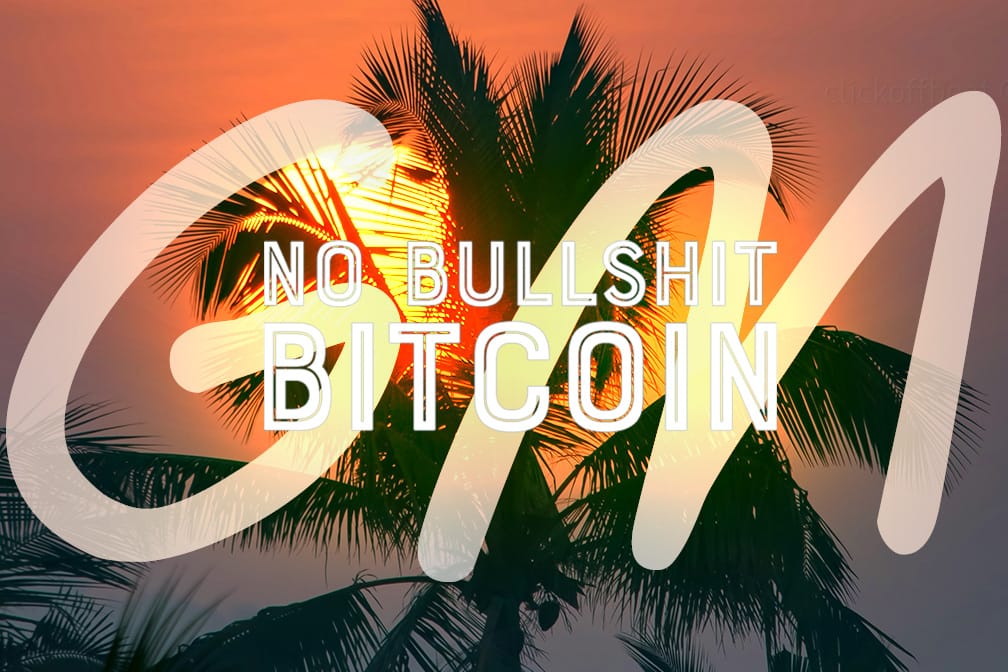
Good morning (good night?)! The No Bullshit Bitcoin news feed is now available on Moody's Dashboard! A huge shoutout to sir Clark Moody for integrating our feed.
Headlines
- Spiral welcomes Ben Carman. The developer will work on the LDK server and a new SDK designed to simplify the onboarding process for new self-custodial Bitcoin users.
- The Bitcoin Dev Kit Foundation announced new corporate members for 2025, including AnchorWatch, CleanSpark, and Proton Foundation. The annual dues from these corporate members fund the small team of open-source developers responsible for maintaining the core BDK libraries and related free and open-source software (FOSS) projects.
- Strategy increases Bitcoin holdings to 538,200 BTC. In the latest purchase, the company has spent more than $555M to buy 6,556 coins through proceeds of two at-the-market stock offering programs.
- Spar supermarket experiments with Bitcoin payments in Zug, Switzerland. The store has introduced a new payment method powered by the Lightning Network. The implementation was facilitated by DFX Swiss, a service that supports seamless conversions between bitcoin and legacy currencies.
- The Bank for International Settlements (BIS) wants to contain 'crypto' risks. A report titled "Cryptocurrencies and Decentralised Finance: Functions and Financial Stability Implications" calls for expanding research into "how new forms of central bank money, capital controls, and taxation policies can counter the risks of widespread crypto adoption while still fostering technological innovation."
- "Global Implications of Scam Centres, Underground Banking, and Illicit Online Marketplaces in Southeast Asia." According to the United Nations Office on Drugs and Crime (UNODC) report, criminal organizations from East and Southeast Asia are swiftly extending their global reach. These groups are moving beyond traditional scams and trafficking, creating sophisticated online networks that include unlicensed cryptocurrency exchanges, encrypted communication platforms, and stablecoins, fueling a massive fraud economy on an industrial scale.
- Slovenia is considering a 25% capital gains tax on Bitcoin profits for individuals. The Ministry of Finance has proposed legislation to impose this tax on gains from cryptocurrency transactions, though exchanging one cryptocurrency for another would remain exempt. At present, individual 'crypto' traders in Slovenia are not taxed.
- Circle, BitGo, Coinbase, and Paxos plan to apply for U.S. bank charters or licenses. According to a report in The Wall Street Journal, major crypto companies are planning to apply for U.S. bank charters or licenses. These firms are pursuing limited licenses that would permit them to issue stablecoins, as the U.S. Congress deliberates on legislation mandating licensing for stablecoin issuers.
"Established banks, like Bank of America, are hoping to amend the current drafts of [stablecoin] legislation in such a way that nonbanks are more heavily restricted from issuing stablecoins," people familiar with the matter told The Block.
- Charles Schwab to launch spot Bitcoin trading by 2026. The financial investment firm, managing over $10 trillion in assets, has revealed plans to introduce spot Bitcoin trading for its clients within the next year.
Use the tools
- Bitcoin Safe v1.2.3 expands QR SignMessage compatibility for all QR-UR-compatible hardware signers (SpecterDIY, KeyStone, Passport, Jade; already supported COLDCARD Q). It also adds the ability to import wallets via QR, ensuring compatibility with Keystone's latest firmware (2.0.6), alongside other improvements.
- Minibits v0.2.2-beta, an ecash wallet for Android devices, packages many changes to align the project with the planned iOS app release. New features and improvements include the ability to lock ecash to a receiver's pubkey, faster confirmations of ecash minting and payments thanks to WebSockets, UI-related fixes, and more.
- Zeus v0.11.0-alpha1 introduces Cashu wallets tied to embedded LND wallets. Navigate to Settings > Ecash to enable it. Other wallet types can still sweep funds from Cashu tokens. Zeus Pay now supports Cashu address types in Zaplocker, Cashu, and NWC modes.
- LNDg v1.10.0, an advanced web interface designed for analyzing Lightning Network Daemon (LND) data and automating node management tasks, introduces performance improvements, adds a new metrics page for unprofitable and stuck channels, and displays warnings for batch openings. The Profit and Loss Chart has been updated to include on-chain costs. Advanced settings have been added for users who would like their channel database size to be read remotely (the default remains local). Additionally, the AutoFees tool now uses aggregated pubkey metrics for multiple channels with the same peer.
- Nunchuk Desktop v1.9.45 release brings the latest bug fixes and improvements.
- Blockstream Green iOS v4.1.8 has renamed L-BTC to LBTC, and improves translations of notifications, login time, and background payments.
- Blockstream Green Android v4.1.8 has added language preference in App Settings and enables an Android data backup option for disaster recovery. Additionally, it fixes issues with Jade entry point PIN timeout and Trezor passphrase input.
- Torq v2.2.2, an advanced Lightning node management software designed to handle large nodes with over 1000 channels, fixes bugs that caused channel balance to not be updated in some cases and channel "peer total local balance" not getting updated.
- Stack Wallet v2.1.12, a multicoin wallet by Cypher Stack, fixes an issue with Xelis introduced in the latest release for Windows.
- ESP-Miner-NerdQAxePlus v1.0.29.1, a forked version from the NerdAxe miner that was modified for use on the NerdQAxe+, is now available.
- Zark enables sending sats to an npub using Bark.

- Erk is a novel variation of the Ark protocol that completely removes the need for user interactivity in rounds, addressing one of Ark's key limitations: the requirement for users to come online before their VTXOs expire.
- Aegis v0.1.1 is now available. It is a Nostr event signer app for iOS devices.
- Nostash is a NIP-07 Nostr signing extension for Safari. It is a fork of Nostore and is maintained by Terry Yiu. Available on iOS TestFlight.
- Amber v3.2.8, a Nostr event signer for Android, delivers the latest fixes and improvements.
- Nostur v1.20.0, a Nostr client for iOS, adds
-
 @ 57d1a264:69f1fee1
2025-05-20 06:15:51
@ 57d1a264:69f1fee1
2025-05-20 06:15:51Deliberate (?) trade-offs we make for the sake of output speed.
... By sacrificing depth in my learning, I can produce substantially more work. I’m unsure if I’m at the correct balance between output quantity and depth of learning. This uncertainty is mainly fueled by a sense of urgency due to rapidly improving AI models. I don’t have time to learn everything deeply. I love learning, but given current trends, I want to maximize immediate output. I’m sacrificing some learning in classes for more time doing outside work. From a teacher’s perspective, this is obviously bad, but from my subjective standpoint, it’s unclear.
Finding the balance between learning and productivity. By trade, one cannot be productive in specific areas without first acquire the knowledge to define the processes needed to deliver. Designing the process often come on a try and fail dynamic that force us to learn from previous mistakes.
I found this little journal story fun but also little sad. Vincent's realization, one of us trading his learnings to be more productive, asking what is productivity without quality assurance?
Inevitably, parts of my brain will degenerate and fade away, so I need to consciously decide what I want to preserve or my entire brain will be gone. What skills am I NOT okay with offloading? What do I want to do myself?
Read Vincent's journal https://vvvincent.me/llms-are-making-me-dumber/
https://stacker.news/items/984361
-
 @ eb0157af:77ab6c55
2025-05-25 12:01:16
@ eb0157af:77ab6c55
2025-05-25 12:01:16Michigan lawmakers are unveiling a comprehensive strategy to regulate Bitcoin and cryptocurrencies.
On May 21, Republican Representative Bill Schuette introduced House Bill 4510, a proposal to amend the Michigan Public Employee Retirement System Investment Act. The legislation would allow the state treasurer, currently Rachael Eubanks, to diversify the state’s investments by including cryptocurrencies with an average market capitalization of over $250 million in the past calendar year.
Under current criteria, Bitcoin (BTC) and Ether (ETH) are the only cryptocurrencies that meet these selection standards. The proposal specifies that any investment in digital assets must be made through exchange-traded products (spot ETFs) issued by registered investment companies.
Anti-CBDC legislation
Republican Representative Bryan Posthumus is leading the bipartisan initiative behind the second bill, HB 4511, which establishes protections for cryptocurrency holders. The proposal prohibits Michigan from implementing crypto bans or imposing licensing requirements on digital asset holders.
Another key aspect of the legislation is a ban on state officials from supporting or promoting a potential federal central bank digital currency (CBDC). The definition includes the issuance of memorandums or official statements endorsing CBDC proposals related to testing, adoption, or implementation.
Mining and redevelopment of abandoned sites
The third bill, HB 4512, is a proposal led by Democratic Representative Mike McFall for a bipartisan group. This initiative would establish a Bitcoin mining program allowing operators to use abandoned oil and natural gas sites.
The program calls for the appointment of a supervisor tasked with assessing the site’s remaining productive potential, identifying the last operator, and determining the length of abandonment. Prospective participants would need to submit detailed legal documentation of their organizational structure, demonstrate operational expertise in mining, and provide profitability breakeven estimates for their ventures.
The fourth and final bill, HB 4513, also introduced by the bipartisan group led by McFall, focuses on the fiscal aspect of the HB 4512 initiative. The proposal would amend Michigan’s income tax laws to include proceeds generated from the proposed Bitcoin mining program.
The post Michigan: four bills on pension funds, CBDCs, and mining appeared first on Atlas21.
-
 @ 57d1a264:69f1fee1
2025-05-20 06:02:26
@ 57d1a264:69f1fee1
2025-05-20 06:02:26Digital Psychology ↗Wall of impact website showcase a collection of success metrics and micro case studies to create a clear, impactful visual of your brand's achievements. It also displays a Wall of love with an abundance of testimonials in one place, letting the sheer volume highlight your brand's popularity and customer satisfaction.
And like these, many others collections like Testimonial mashup that combine multiple testimonials into a fast-paced, engaging reel that highlights key moments of impact in an attention-grabbing format.
Awards and certifications of websites highlighting third-party ratings and verification to signal trust and quality through industry-recognized achievements and standards.
View them all at https://socialproofexamples.com/
https://stacker.news/items/984357
-
 @ 609f186c:0aa4e8af
2025-05-16 20:57:43
@ 609f186c:0aa4e8af
2025-05-16 20:57:43Google says that Android 16 is slated to feature an optional high security mode. Cool.
Advanced Protection has a bunch of requested features that address the kinds of threats we worry about.
It's the kind of 'turn this one thing on if you face elevated risk' that we've been asking for from Google.
And likely reflects some learning after Google watched Apple 's Lockdown Mode play out. I see a lot of value in this..
Here are some features I'm excited to see play out:
The Intrusion Logging feature is interesting & is going to impose substantial cost on attackers trying to hide evidence of exploitation. Logs get e2ee encrypted into the cloud. This one is spicy.
The Offline Lock, Inactivity Reboot & USB protection will frustrate non-consensual attempts to physically grab device data.

Memory Tagging Extension is going to make a lot of attack & exploitation categories harder.
2G Network Protection & disabling Auto-connect to insecure networks are going to address categories of threat from things like IMSI catchers & hostile WiFi.
I'm curious about some other features such as:
Spam & Scam detection: Google messages feature that suggests message content awareness and some kind of scanning.
Scam detection for Phone by Google is interesting & coming later. The way it is described suggests phone conversation awareness. This also addresses a different category of threat than the stuff above. I can see it addressing a whole category of bad things that regular users (& high risk ones too!) face. Will be curious how privacy is addressed or if this done purely locally. Getting messy: Friction points? I see Google thinking these through, but I'm going to add a potential concern: what will users do when they encounter friction? Will they turn this off & forget to re-enable? We've seen users turn off iOS Lockdown Mode when they run into friction for specific websites or, say, legacy WiFi. They then forget to turn it back on. And stay vulnerable.

Bottom line: users disabling Apple's Lockdown Mode for a temporary thing & leaving it off because they forget to turn it on happens a lot. This is a serious % of users in my experience...
And should be factored into design decisions for similar modes. I feel like a good balance is a 'snooze button' or equivalent so that users can disable all/some features for a brief few minute period to do something they need to do, and then auto re-enable.
Winding up:
I'm excited to see how Android Advanced Protection plays with high risk users' experiences. I'm also super curious whether the spam/scam detection features may also be helpful to more vulnerable users (think: aging seniors)...
Niche but important:
Some users, esp. those that migrated to security & privacy-focused Android distros because of because of the absence of such a feature are clear candidates for it... But they may also voice privacy concerns around some of the screening features. Clear communication from the Google Security / Android team will be key here.
-
 @ b1ddb4d7:471244e7
2025-05-25 12:00:56
@ b1ddb4d7:471244e7
2025-05-25 12:00:56Asia has emerged as a powerhouse for bitcoin adoption, with diverse countries across the region embracing the world’s leading digital currency in unique ways.
From institutional investors in Singapore to grassroots movements in Indonesia, the Asian bitcoin ecosystem presents a fascinating tapestry of innovation, regulation, and community-driven initiatives.
We dive deep into the current state of bitcoin adoption across key Asian markets, providing investors with actionable insights into this dynamic region.
The Numbers: Asia’s Bitcoin Dominance
As of early 2025, over 500 million people worldwide hold some form of digital currency, with bitcoin remaining the most widely adopted digital asset. Asia stands at the forefront of this adoption wave, with the Central & Southern Asia and Oceania (CSAO) region leading the world in digital currency adoption according to Chainalysis’s 2024 Global Crypto Adoption Index.
The statistics paint a compelling picture:
- Seven of the top 20 countries in global crypto adoption are located in the CSAO region.
- India and China together comprise almost half of the world’s digital currency user base.
- Japan’s digital currency market is expected to reach 19.43 million users by the end of 2025, with a penetration rate of 15.93%.
Behind these impressive numbers lies a complex ecosystem shaped by diverse factors including regulatory environments, technological infrastructure, economic necessities, and vibrant community initiatives.
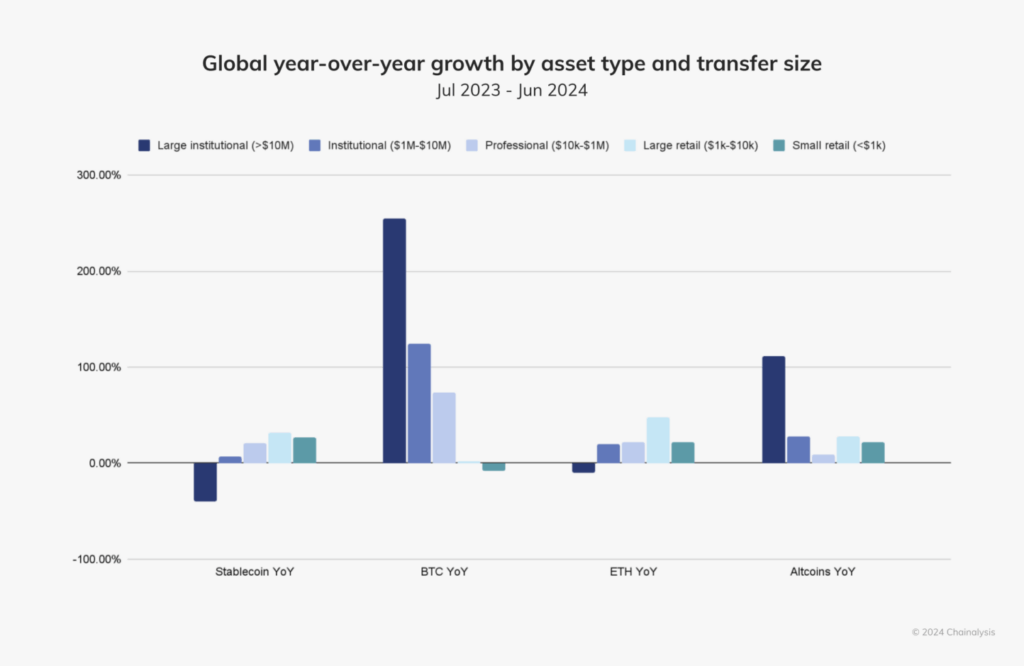
Photo Source: Chainalysis
Country-by-Country Analysis
India: The Grassroots Powerhouse
India ranks first in Chainalysis’s Global Crypto Adoption Index, with bitcoin adoption thriving particularly in tier-2 and tier-3 cities. This grassroots movement is driven primarily by:
- Financial inclusion: Bitcoin offers banking-like services to India’s large unbanked population.
- Remittance solutions: Lower fees for the significant Indian diaspora sending money home.
- Mobile wallet proliferation: India’s high smartphone penetration enables easy access to bitcoin services.
Japan: The Regulatory Pioneer
Japan has long played a significant role in bitcoin’s evolution, from hosting some of the earliest exchanges to pioneering regulatory clarity. In 2025, Japan finds itself at a fascinating crossroads:
- The Japan Financial Services Agency is considering reclassifying digital currency assets as financial products akin to stocks, potentially enhancing user protection.
- Major corporations like Metaplanet Inc. are expanding their bitcoin holdings, with plans to increase holdings by 470% to reach 10,000 BTC in 2025.
- The country boasts a thriving grassroots bitcoin community and a strong developer ecosystem.
Bitcoin adoption in Japan is uniquely balanced between institutional involvement and community enthusiasm, with initiatives like Blockstream’s Tokyo office working to promote layer-2 solutions, self-custody, and developer education.
Vietnam: The P2P Leader
Vietnam consistently ranks among the top countries for bitcoin adoption per capita. The country’s relationship with bitcoin is characterized by:
- Strong peer-to-peer (P2P) platform usage for daily transactions and remittances.
- High mobile wallet adoption driving grassroots usage.
- Bitcoin serving as a hedge against local currency fluctuations.
- Relatively favorable regulatory attitude compared to some neighboring countries.
Singapore: The Institutional Hub
Singapore has established itself as Asia’s premier institutional bitcoin destination through:
- Clear and forward-thinking regulatory frameworks, particularly the Payment Services Act.
- Growing presence of global digital currency firms including Gemini, OKX, and HashKey, which have received regulatory approvals.
- A robust financial infrastructure catering to high-net-worth individuals and institutional investors.
While Singapore’s consumer protection-focused framework restricts promotional activities and public advertising by digital currency service providers, the city-state remains a beacon for institutional bitcoin adoption in Asia.
South Korea: Retail Dominance Transitioning to Institutional
South Korea presents a fascinating case study of a market in transition:
- Retail investors currently dominate digital currency trading volume, while institutional participation significantly lags behind.
- Experts expect institutional involvement to increase, though a significant shift may not occur until around 2027.
- The local finance watchdog recently launched a crypto committee to assess permissions for corporate digital currency investors and ETFs.
- Users must access fiat-to-digital currency services through local exchanges with official banking partnerships, linking digital currency activities to legal identities.
Bitcoin Communities: The Grassroots Movements
What truly sets Asia apart in the global bitcoin landscape is the vibrant tapestry of community-driven initiatives across the region. These grassroots movements are instrumental in driving adoption from the ground up.
Bitcoin House Bali: A Community Hub
In Indonesia, the Bitcoin House Bali project exemplifies grassroots innovation. This initiative has transformed an old mining container into a vibrant hub for bitcoin education and community engagement.
Key features include:
- Free workshops (including “Bitcoin for Beginners” and “Bitcoin for Kids”).
- Developer programs including online classes, BitDevs Workshops, and Hackathons.
- A closed-loop economic system that turns bitcoin into community points.
- Merchant onboarding—from restaurants and drivers to scooter rentals and street vendors.
Bitcoin Seoul 2025: Bringing the Community Together
The upcoming Bitcoin Seoul 2025 conference (June 4-6, 2025) represents Asia’s largest bitcoin-focused gathering, bringing together global leaders, executives, and community members.
The event will feature:
- The Bitcoin Policy Summit: Seoul Edition, providing insights into regulatory trends.
- The Bitcoin Finance Forum, addressing institutional investment and treasury management.
- A Global Bitcoin Community Assembly for bitcoin grassroots and community leaders.
- Live Lightning Network payments demonstrations at the on-site Lightning Market.
This event underscores South Korea’s emerging role in the global Bitcoin ecosystem and highlights the growing institutional interest in the region.
Regulatory Landscapes: A Mixed Picture
The regulatory environment for bitcoin across Asia presents a complex and evolving picture that significantly impacts adoption patterns.
Japan’s Regulatory Evolution
Japan is considering tightening regulations on digital asset transactions by reclassifying them as financial products similar to stocks. If implemented, these changes would:
- Require issuers to disclose more detailed information on their corporate status.
- Potentially enhance user protection.
- Come into effect after June 2025, following policy direction outlines by the administration.
Current regulations in Japan are relatively digital currency-friendly, with bitcoin recognized as a legal form of payment under the Payment Services Act since 2016.
Singapore’s Balanced Approach
Singapore maintains a regulatory framework that emphasizes market stability and consumer protection, including:
- Restrictions on promoting digital services in public areas.
- The Payment Services Act that regulates digital currency exchanges.
- A general approach that supports institutional adoption while carefully managing retail exposure.
This balanced approach has helped establish Singapore as a trusted hub for bitcoin businesses and institutional investors.
South Korea’s Transitional Framework
South Korea’s regulatory landscape is in flux, with several developments impacting the bitcoin ecosystem:
- Corporate access to digital currenc
-
 @ 7f6db517:a4931eda
2025-05-25 13:01:38
@ 7f6db517:a4931eda
2025-05-25 13:01:38
Bank run on every crypto bank then bank run on every "real" bank.
— ODELL (@ODELL) December 14, 2022
Good morning.
It looks like PacWest will fail today. It will be both the fifth largest bank failure in US history and the sixth major bank to fail this year. It will likely get purchased by one of the big four banks in a government orchestrated sale.
March 8th - Silvergate Bank
March 10th - Silicon Valley Bank
March 12th - Signature Bank
March 19th - Credit Suisse
May 1st - First Republic Bank
May 4th - PacWest Bank?PacWest is the first of many small regional banks that will go under this year. Most will get bought by the big four in gov orchestrated sales. This has been the playbook since 2008. Follow the incentives. Massive consolidation across the banking industry. PacWest gonna be a drop in the bucket compared to what comes next.
First, a hastened government led bank consolidation, then a public/private partnership with the remaining large banks to launch a surveilled and controlled digital currency network. We will be told it is more convenient. We will be told it is safer. We will be told it will prevent future bank runs. All of that is marketing bullshit. The goal is greater control of money. The ability to choose how we spend it and how we save it. If you control the money - you control the people that use it.
If you found this post helpful support my work with bitcoin.

-
 @ dfa02707:41ca50e3
2025-05-25 13:01:36
@ dfa02707:41ca50e3
2025-05-25 13:01:36Contribute to keep No Bullshit Bitcoin news going.
- Coinswap is a decentralized protocol for private, trustless cryptocurrency swaps. It allows participants to securely swap digital assets without intermediaries, using advanced cryptographic techniques and atomic swaps to ensure privacy and security.
- This release introduces major improvements to the protocol's efficiency, security, and usability, including custom in-memory UTXO indexes, more advanced coin-selection algorithms, fidelity bond management and more.
- The update also improves user experience with full Mac support, faster Tor connections, enhanced UI/UX, a unified API, and improved protocol documentation.
"The Project is under active beta development and open for contributions and beta testing. The Coinswap market place is live in testnet4. Bug fixes and feature requests are very much welcome."
- Manuals and demo docs are available here.
What's new
- Core protocol and performance improvements:
- Custom in-memory UTXO indexes. Frequent Core RPC calls, which caused significant delays, have been eliminated by implementing custom in-memory UTXO indexes. These indexes are also saved to disk, leading to faster wallet synchronization.
- Coin selection. Advanced coin-selection algorithms, like those in Bitcoin Core, have been incorporated, enhancing the efficiency of creating different types of transactions.
- Fidelity management. Maker servers now automate tasks such as checking bond expiries, redemption, and recreation for Fidelity Bonds, reducing the user's management responsibilities.
- Taker liveness. The
WaitingFundingConfirmationmessage has been added to keep swap connections between Takers and Makers, assisting with variable block confirmation delays.
-
User experience and compatibility:
- Mac compatibility. The crate and apps now fully support Mac.
- Tor operations are streamlined for faster, more resilient connections. Tor addresses are now consistently linked to the wallet seed, maintaining the same onion address through system reboots.
- The UI/UX improvements enhance the display of balances, UTXOs, offer data, fidelity bonds, and system logs. These updates make the apps more enjoyable and provide clearer coin swap logs during the swap process.
-
API design improvements. Transaction creation routines have been streamlined to use a single common API, which reduces technical debt and eliminates redundant code.
- Protocol spec documentation now details how Coinswap breaks the transaction graph and improves privacy through routed swaps and amount splitting, and includes diagrams for clarity.

Source: Coinswap Protocol specification.

-
 @ 7f6db517:a4931eda
2025-05-25 13:01:38
@ 7f6db517:a4931eda
2025-05-25 13:01:38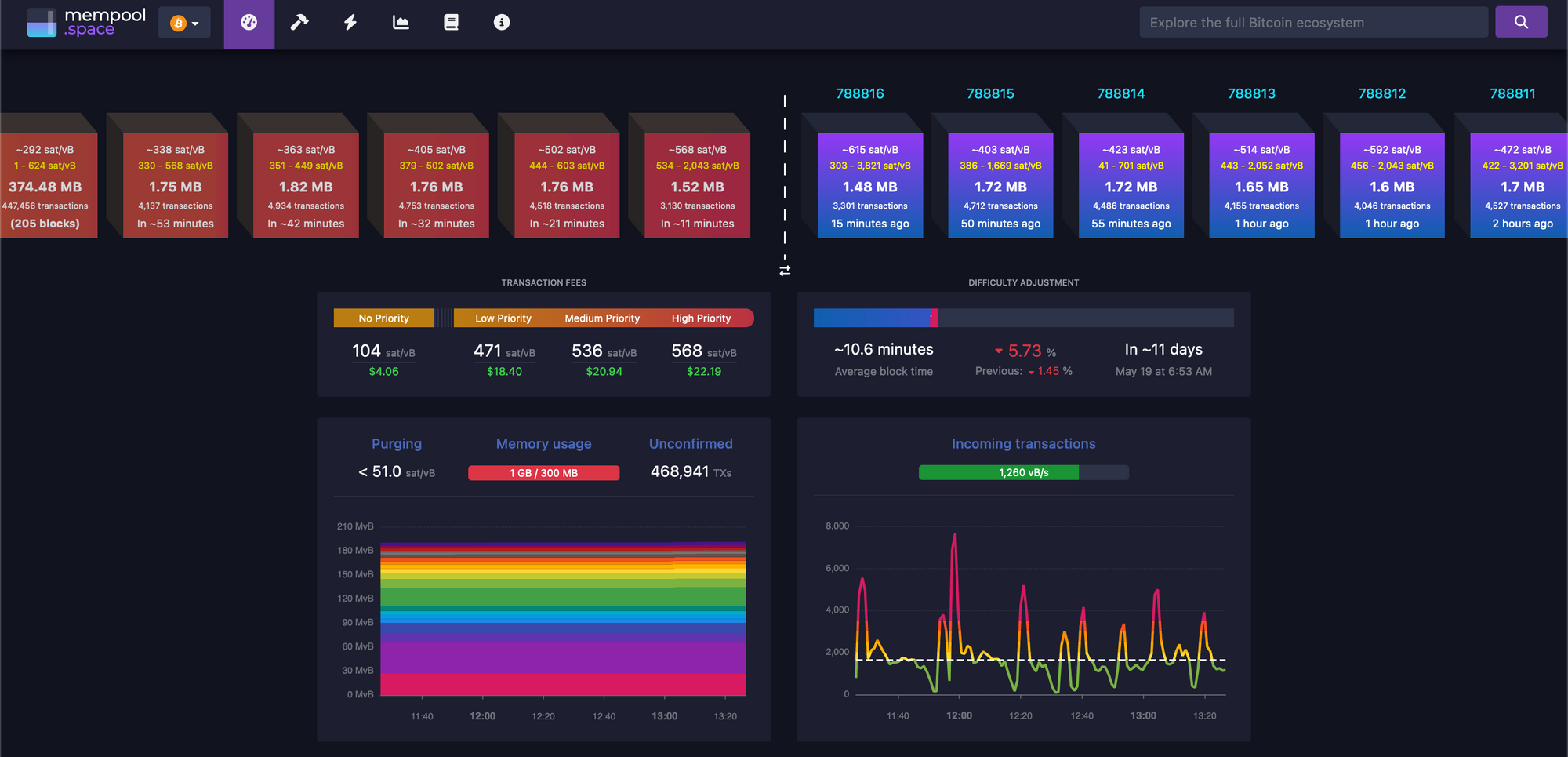
There must be a limit to how much data is transferred across the bitcoin network in order to keep the ability to run and use your own node accessible. A node is required to interact with the global bitcoin network - if you do not use your own node then you must trust someone else's node. If nodes become inaccessible to run then the network will centralize around the remaining entities that operate them - threatening the censorship resistance at the core of bitcoin's value prop. The bitcoin protocol uses three main mechanisms to keep node operation costs low - a fixed limit on the amount of data in each block, an automatic difficulty adjustment that regulates how many blocks are produced based on current mining hash rate, and a robust dynamic transaction fee market.
Bitcoin transaction fees limit network abuse by making usage expensive. There is a cost to every transaction, set by a dynamic free market based on demand for scarce block space. It is an incredibly robust way to prevent spam without relying on centralized entities that can be corrupted or pressured.
After the 2017 bitcoin fee spike we had six years of relative quiet to build tools that would be robust in a sustained high fee market. Fortunately our tools are significantly better now but many still need improvement. Most of the pain points we see today will be mitigated.
The reality is we were never going to be fully prepared - pressure is needed to show the pain points and provide strong incentives to mitigate them.
It will be incredibly interesting to watch how projects adapt under pressure. Optimistic we see great innovation here.
_If you are willing to wait for your transaction to confirm you can pay significantly lower fees. Learn best practices for reducing your fee burden here.
My guide for running and using your own bitcoin node can be found here._
If you found this post helpful support my work with bitcoin.

-
 @ b83a28b7:35919450
2025-05-16 19:26:56
@ b83a28b7:35919450
2025-05-16 19:26:56This article was originally part of the sermon of Plebchain Radio Episode 111 (May 2, 2025) that nostr:nprofile1qyxhwumn8ghj7mn0wvhxcmmvqyg8wumn8ghj7mn0wd68ytnvv9hxgqpqtvqc82mv8cezhax5r34n4muc2c4pgjz8kaye2smj032nngg52clq7fgefr and I did with nostr:nprofile1qythwumn8ghj7ct5d3shxtnwdaehgu3wd3skuep0qyt8wumn8ghj7ct4w35zumn0wd68yvfwvdhk6tcqyzx4h2fv3n9r6hrnjtcrjw43t0g0cmmrgvjmg525rc8hexkxc0kd2rhtk62 and nostr:nprofile1qyxhwumn8ghj7mn0wvhxcmmvqyg8wumn8ghj7mn0wd68ytnvv9hxgqpq4wxtsrj7g2jugh70pfkzjln43vgn4p7655pgky9j9w9d75u465pqahkzd0 of the nostr:nprofile1qythwumn8ghj7ct5d3shxtnwdaehgu3wd3skuep0qyt8wumn8ghj7etyv4hzumn0wd68ytnvv9hxgtcqyqwfvwrccp4j2xsuuvkwg0y6a20637t6f4cc5zzjkx030dkztt7t5hydajn
Listen to the full episode here:
<<https://fountain.fm/episode/Ln9Ej0zCZ5dEwfo8w2Ho>>
Bitcoin has always been a narrative revolution disguised as code. White paper, cypherpunk lore, pizza‑day legends - every block is a paragraph in the world’s most relentless epic. But code alone rarely converts the skeptic; it’s the camp‑fire myth that slips past the prefrontal cortex and shakes hands with the limbic system. People don’t adopt protocols first - they fall in love with protagonists.
Early adopters heard the white‑paper hymn, but most folks need characters first: a pizza‑day dreamer; a mother in a small country, crushed by the cost of remittance; a Warsaw street vendor swapping złoty for sats. When their arcs land, the brain releases a neurochemical OP_RETURN which says, “I belong in this plot.” That’s the sly roundabout orange pill: conviction smuggled inside catharsis.
That’s why, from 22–25 May in Warsaw’s Kinoteka, the Bitcoin Film Fest is loading its reels with rebellion. Each documentary, drama, and animated rabbit‑hole is a stealth wallet, zipping conviction straight into the feels of anyone still clasped within the cold claw of fiat. You come for the plot, you leave checking block heights.
Here's the clip of the sermon from the episode:
nostr:nevent1qvzqqqqqqypzpwp69zm7fewjp0vkp306adnzt7249ytxhz7mq3w5yc629u6er9zsqqsy43fwz8es2wnn65rh0udc05tumdnx5xagvzd88ptncspmesdqhygcrvpf2
-
 @ 7f6db517:a4931eda
2025-05-25 13:01:38
@ 7f6db517:a4931eda
2025-05-25 13:01:38
I often hear "bitcoin doesn't interest me, I'm not a finance person."
Ironically, the beauty of sound money is you don't have to be. In the current system you're expected to manage a diversified investment portfolio or pay someone to do it. Bitcoin will make that optional.
— ODELL (@ODELL) September 16, 2018
At first glance bitcoin often appears overwhelming to newcomers. It is incredibly easy to get bogged down in the details of how it works or different ways to use it. Enthusiasts, such as myself, often enjoy going down the deep rabbit hole of the potential of bitcoin, possible pitfalls and theoretical scenarios, power user techniques, and the developer ecosystem. If your first touch point with bitcoin is that type of content then it is only natural to be overwhelmed. While it is important that we have a thriving community of bitcoiners dedicated to these complicated tasks - the true beauty of bitcoin lies in its simplicity. Bitcoin is simply better money. It is the best money we have ever had.
Life is complicated. Life is hard. Life is full of responsibility and surprises. Bitcoin allows us to focus on our lives while relying on a money that is simple. A money that is not controlled by any individual, company, or government. A money that cannot be easily seized or blocked. A money that cannot be devalued at will by a handful of corrupt bureaucrat who live hundreds of miles from us. A money that can be easily saved and should increase in purchasing power over time without having to learn how to "build a diversified stock portfolio" or hire someone to do it for us.
Bitcoin enables all of us to focus on our lives - our friends and family - doing what we love with the short time we have on this earth. Time is scarce. Life is complicated. Bitcoin is the most simple aspect of our complicated lives. If we spend our scarce time working then we should be able to easily save that accrued value for future generations without watching the news or understanding complicated financial markets. Bitcoin makes this possible for anyone.
Yesterday was Mother's Day. Raising a human is complicated. It is hard, it requires immense personal responsibility, it requires critical thinking, but mothers figure it out, because it is worth it. Using and saving bitcoin is simple - simply install an app on your phone. Every mother can do it. Every person can do it.
Life is complicated. Life is beautiful. Bitcoin is simple.
If you found this post helpful support my work with bitcoin.

-
 @ b099870e:f3ba8f5d
2025-05-25 11:29:20
@ b099870e:f3ba8f5d
2025-05-25 11:29:20Let me point out to you that freedom is not something that anybody can be given; freedom is something people take and people are as free as they want to be.
James Baldwin
-
 @ c631e267:c2b78d3e
2025-05-16 18:40:18
@ c631e267:c2b78d3e
2025-05-16 18:40:18Die zwei mächtigsten Krieger sind Geduld und Zeit. \ Leo Tolstoi
Zum Wohle unserer Gesundheit, unserer Leistungsfähigkeit und letztlich unseres Glücks ist es wichtig, die eigene Energie bewusst zu pflegen. Das gilt umso mehr für an gesellschaftlichen Themen interessierte, selbstbewusste und kritisch denkende Menschen. Denn für deren Wahrnehmung und Wohlbefinden waren und sind die rasanten, krisen- und propagandagefüllten letzten Jahre in Absurdistan eine harte Probe.
Nur wer regelmäßig Kraft tankt und Wege findet, mit den Herausforderungen umzugehen, kann eine solche Tortur überstehen, emotionale Erschöpfung vermeiden und trotz allem zufrieden sein. Dazu müssen wir erkunden, was uns Energie gibt und was sie uns raubt. Durch Selbstreflexion und Achtsamkeit finden wir sicher Dinge, die uns erfreuen und inspirieren, und andere, die uns eher stressen und belasten.
Die eigene Energie ist eng mit unserer körperlichen und mentalen Gesundheit verbunden. Methoden zur Förderung der körperlichen Gesundheit sind gut bekannt: eine ausgewogene Ernährung, regelmäßige Bewegung sowie ausreichend Schlaf und Erholung. Bei der nicht minder wichtigen emotionalen Balance wird es schon etwas komplizierter. Stress abzubauen, die eigenen Grenzen zu kennen oder solche zum Schutz zu setzen sowie die Konzentration auf Positives und Sinnvolles wären Ansätze.
Der emotionale ist auch der Bereich, über den «Energie-Räuber» bevorzugt attackieren. Das sind zum Beispiel Dinge wie Überforderung, Perfektionismus oder mangelhafte Kommunikation. Social Media gehören ganz sicher auch dazu. Sie stehlen uns nicht nur Zeit, sondern sind höchst manipulativ und erhöhen laut einer aktuellen Studie das Risiko für psychische Probleme wie Angstzustände und Depressionen.
Geben wir negativen oder gar bösen Menschen keine Macht über uns. Das Dauerfeuer der letzten Jahre mit Krisen, Konflikten und Gefahren sollte man zwar kennen, darf sich aber davon nicht runterziehen lassen. Das Ziel derartiger konzertierter Aktionen ist vor allem, unsere innere Stabilität zu zerstören, denn dann sind wir leichter zu steuern. Aber Geduld: Selbst vermeintliche «Sonnenköniginnen» wie EU-Kommissionspräsidentin von der Leyen fallen, wenn die Zeit reif ist.
Es ist wichtig, dass wir unsere ganz eigenen Bedürfnisse und Werte erkennen. Unsere Energiequellen müssen wir identifizieren und aktiv nutzen. Dazu gehören soziale Kontakte genauso wie zum Beispiel Hobbys und Leidenschaften. Umgeben wir uns mit Sinnhaftigkeit und lassen wir uns nicht die Energie rauben!
Mein Wahlspruch ist schon lange: «Was die Menschen wirklich bewegt, ist die Kultur.» Jetzt im Frühjahr beginnt hier in Andalusien die Zeit der «Ferias», jener traditionellen Volksfeste, die vor Lebensfreude sprudeln. Konzentrieren wir uns auf die schönen Dinge und auf unsere eigenen Talente – soziale Verbundenheit wird helfen, unsere innere Kraft zu stärken und zu bewahren.
[Titelbild: Pixabay]
Dieser Beitrag wurde mit dem Pareto-Client geschrieben und ist zuerst auf Transition News erschienen.
-
 @ 91117f2b:111207d6
2025-05-25 11:09:49
@ 91117f2b:111207d6
2025-05-25 11:09:49
The lack of job opportunities is a real issue affecting millions of people worldwide. Underemployment and unemployment has been affecting individuals and communities in general.
CAUSES OF JOB SCARCITY
-
TECHNOLOGY ADVANCEMENTS: artifical intelligence Ai has taken over the job opportunities in the world today, making some jobs unavailable.
-
ECONOMIC PROBLEMS: the of lack of money can lead to reduced hiring and open jobs.
3.SKILL MISMATCH: the lack of experience and skill can make it hard for job seekers to get a job.
CONSEQUENCES OF LACK OF JOBS
1.SKILL DEGRADATION: prolonged scarcity of jobs can result in skill degradation and increase in unemployment.
-
FINANCIAL HARDSHIP:the lack of job opportunities can lead to stress, financial difficulties and many more terrible things.
-
SOCIAL ISOLATION: joblessness can cause or lead to decreased self esteem and social isolation.
SOLUTIONS
1.ENTREPRENEURSHIP :by encouraging entrepreneurship and also supporting start- ups can help lead to a new job opportunities.
2.JOB CREATION: the government organizations should implement programs and policies to stimulate job creation.
-
SOCIAL SUPPORT:by creating social support and resources can help individuals to cope with unemployment and help employability.
-
UPSKILLING AND RESKILLING:the government and people should invest in educational aspect and training programs to help job seekers get a relevant job.
IN CONCLUSION lack of job opportunities is an issue requiring attention in every aspect approach. By understanding the causes and consequences we can work towards creating more jobs in the society and support those who are unemployed.
-
-
 @ 7f6db517:a4931eda
2025-05-25 13:01:38
@ 7f6db517:a4931eda
2025-05-25 13:01:38Will not live in a pod.
Will not eat the bugs.
Will not get the chip.
Will not get a blue check.
Will not use CBDCs.Live Free or Die.
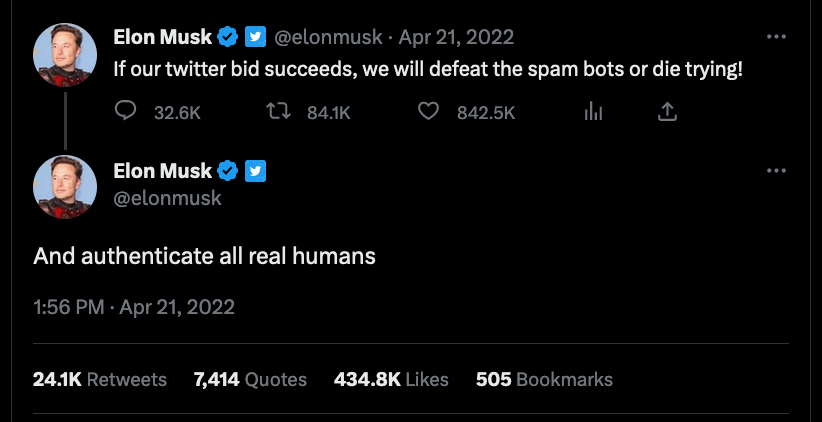
Why did Elon buy twitter for $44 Billion? What value does he see in it besides the greater influence that undoubtedly comes with controlling one of the largest social platforms in the world? We do not need to speculate - he made his intentions incredibly clear in his first meeting with twitter employees after his takeover - WeChat of the West.
To those that do not appreciate freedom, the value prop is clear - WeChat is incredibly powerful and successful in China.
To those that do appreciate freedom, the concern is clear - WeChat has essentially become required to live in China, has surveillance and censorship integrated at its core, and if you are banned from the app your entire livelihood is at risk. Employment, housing, payments, travel, communication, and more become extremely difficult if WeChat censors determine you have acted out of line.
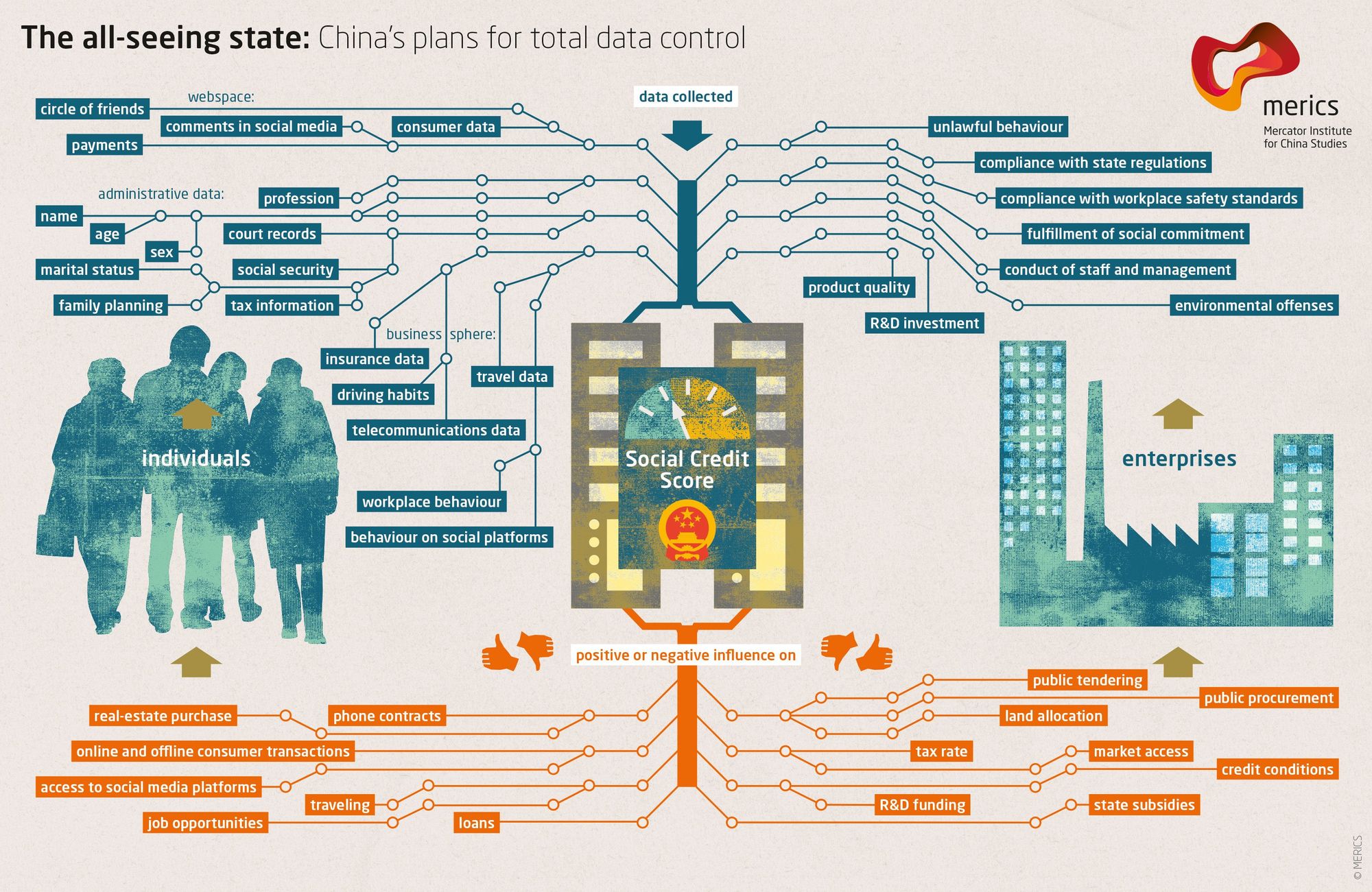
The blue check is the first step in Elon's plan to bring the chinese social credit score system to the west. Users who verify their identity are rewarded with more reach and better tools than those that do not. Verified users are the main product of Elon's twitter - an extensive database of individuals and complete control of the tools he will slowly get them to rely on - it is easier to monetize cattle than free men.
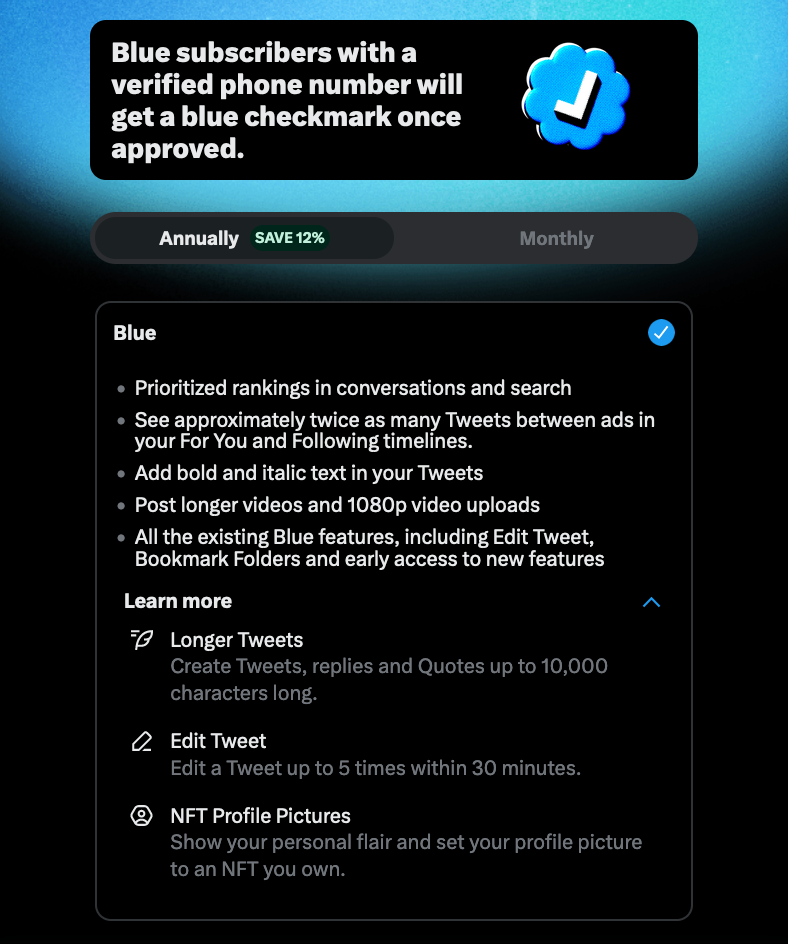
If you cannot resist the temptation of the blue check in its current form you have already lost - what comes next will be much darker. If you realize the need to resist - freedom tech provides us options.
If you found this post helpful support my work with bitcoin.

-
 @ 04c915da:3dfbecc9
2025-05-16 18:06:46
@ 04c915da:3dfbecc9
2025-05-16 18:06:46Bitcoin has always been rooted in freedom and resistance to authority. I get that many of you are conflicted about the US Government stacking but by design we cannot stop anyone from using bitcoin. Many have asked me for my thoughts on the matter, so let’s rip it.
Concern
One of the most glaring issues with the strategic bitcoin reserve is its foundation, built on stolen bitcoin. For those of us who value private property this is an obvious betrayal of our core principles. Rather than proof of work, the bitcoin that seeds this reserve has been taken by force. The US Government should return the bitcoin stolen from Bitfinex and the Silk Road.
Using stolen bitcoin for the reserve creates a perverse incentive. If governments see bitcoin as a valuable asset, they will ramp up efforts to confiscate more bitcoin. The precedent is a major concern, and I stand strongly against it, but it should be also noted that governments were already seizing coin before the reserve so this is not really a change in policy.
Ideally all seized bitcoin should be burned, by law. This would align incentives properly and make it less likely for the government to actively increase coin seizures. Due to the truly scarce properties of bitcoin, all burned bitcoin helps existing holders through increased purchasing power regardless. This change would be unlikely but those of us in policy circles should push for it regardless. It would be best case scenario for American bitcoiners and would create a strong foundation for the next century of American leadership.
Optimism
The entire point of bitcoin is that we can spend or save it without permission. That said, it is a massive benefit to not have one of the strongest governments in human history actively trying to ruin our lives.
Since the beginning, bitcoiners have faced horrible regulatory trends. KYC, surveillance, and legal cases have made using bitcoin and building bitcoin businesses incredibly difficult. It is incredibly important to note that over the past year that trend has reversed for the first time in a decade. A strategic bitcoin reserve is a key driver of this shift. By holding bitcoin, the strongest government in the world has signaled that it is not just a fringe technology but rather truly valuable, legitimate, and worth stacking.
This alignment of incentives changes everything. The US Government stacking proves bitcoin’s worth. The resulting purchasing power appreciation helps all of us who are holding coin and as bitcoin succeeds our government receives direct benefit. A beautiful positive feedback loop.
Realism
We are trending in the right direction. A strategic bitcoin reserve is a sign that the state sees bitcoin as an asset worth embracing rather than destroying. That said, there is a lot of work left to be done. We cannot be lulled into complacency, the time to push forward is now, and we cannot take our foot off the gas. We have a seat at the table for the first time ever. Let's make it worth it.
We must protect the right to free usage of bitcoin and other digital technologies. Freedom in the digital age must be taken and defended, through both technical and political avenues. Multiple privacy focused developers are facing long jail sentences for building tools that protect our freedom. These cases are not just legal battles. They are attacks on the soul of bitcoin. We need to rally behind them, fight for their freedom, and ensure the ethos of bitcoin survives this new era of government interest. The strategic reserve is a step in the right direction, but it is up to us to hold the line and shape the future.
-
 @ 866e0139:6a9334e5
2025-05-25 11:03:13
@ 866e0139:6a9334e5
2025-05-25 11:03:13Autor: Alexa Rodrian. Dieser Beitrag wurde mit dem Pareto-Client geschrieben. Sie finden alle Texte der Friedenstaube und weitere Texte zum Thema Frieden hier. Die neuesten Pareto-Artikel finden Sie in unserem Telegram-Kanal.
Die neuesten Artikel der Friedenstaube gibt es jetzt auch im eigenen Friedenstaube-Telegram-Kanal.
„Triff niemals deine Idole“ heißt ein gängiger Ratschlag. In gewendeten Zeiten stehen zu dem die Werte auf dem Kopf – und manche Künstler mit ihnen. Die Worte, die aus manch ihrer Mündern kommen, wirken, als hätte eine fremde Hand sie auf deren Zunge gelegt.
Die Sängerin Alexa Rodrian erlebte bei der Verleihung des Deutschen Filmpreises einen solchen Moment der Desillusion. Es war der Auftritt des Liedermachers Wolf Biermann. Hören Sie hierzu Alexa Rodrians Text „Wolf Biermann und sein falscher Friede“.
https://soundcloud.com/radiomuenchen/wolf-biermann-und-sein-falscher-friede-von-alexa-rodrian
Dieser Beitrag erschien zuerst auf Radio München.
LASSEN SIE DER FRIEDENSTAUBE FLÜGEL WACHSEN!
Hier können Sie die Friedenstaube abonnieren und bekommen die Artikel zugesandt.
Schon jetzt können Sie uns unterstützen:
- Für 50 CHF/EURO bekommen Sie ein Jahresabo der Friedenstaube.
- Für 120 CHF/EURO bekommen Sie ein Jahresabo und ein T-Shirt/Hoodie mit der Friedenstaube.
- Für 500 CHF/EURO werden Sie Förderer und bekommen ein lebenslanges Abo sowie ein T-Shirt/Hoodie mit der Friedenstaube.
- Ab 1000 CHF werden Sie Genossenschafter der Friedenstaube mit Stimmrecht (und bekommen lebenslanges Abo, T-Shirt/Hoodie).
Für Einzahlungen in CHF (Betreff: Friedenstaube):
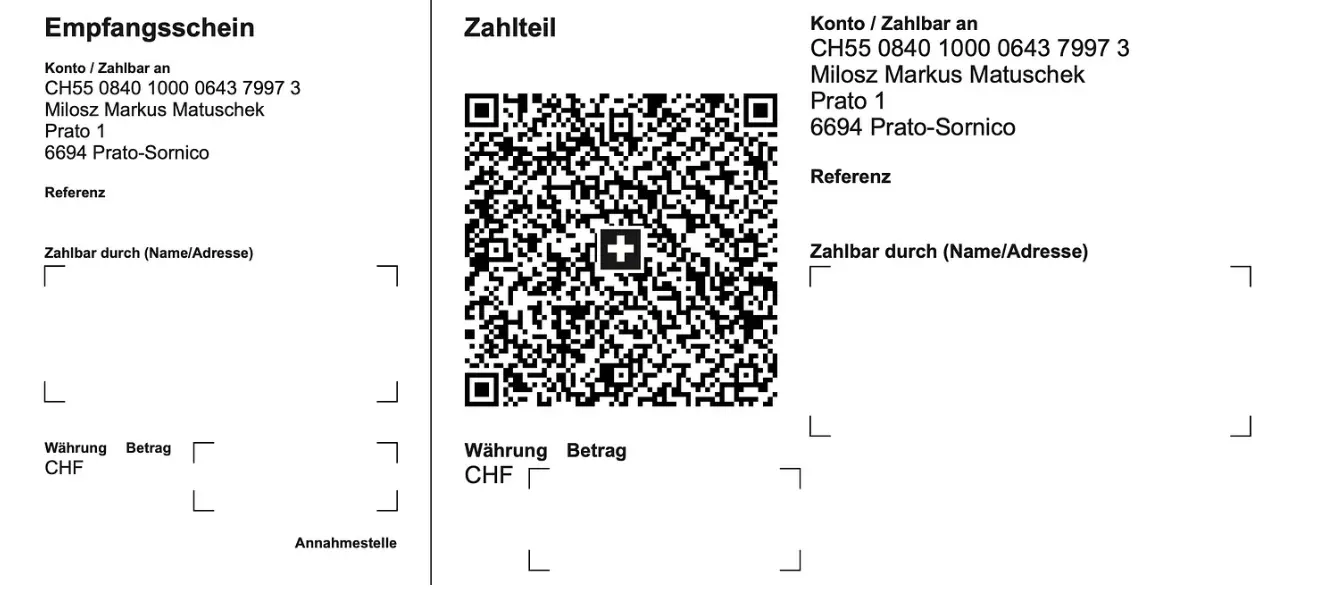
Für Einzahlungen in Euro:
Milosz Matuschek
IBAN DE 53710520500000814137
BYLADEM1TST
Sparkasse Traunstein-Trostberg
Betreff: Friedenstaube
Wenn Sie auf anderem Wege beitragen wollen, schreiben Sie die Friedenstaube an: friedenstaube@pareto.space
Sie sind noch nicht auf Nostr and wollen die volle Erfahrung machen (liken, kommentieren etc.)? Zappen können Sie den Autor auch ohne Nostr-Profil! Erstellen Sie sich einen Account auf Start. Weitere Onboarding-Leitfäden gibt es im Pareto-Wiki.
-
 @ 7f6db517:a4931eda
2025-05-25 13:01:38
@ 7f6db517:a4931eda
2025-05-25 13:01:38
Nostr is an open communication protocol that can be used to send messages across a distributed set of relays in a censorship resistant and robust way.
If you missed my nostr introduction post you can find it here. My nostr account can be found here.
We are nearly at the point that if something interesting is posted on a centralized social platform it will usually be posted by someone to nostr.
We are nearly at the point that if something interesting is posted exclusively to nostr it is cross posted by someone to various centralized social platforms.
We are nearly at the point that you can recommend a cross platform app that users can install and easily onboard without additional guides or resources.
As companies continue to build walls around their centralized platforms nostr posts will be the easiest to cross reference and verify - as companies continue to censor their users nostr is the best censorship resistant alternative - gradually then suddenly nostr will become the standard. 🫡
Current Nostr Stats
If you found this post helpful support my work with bitcoin.

-
 @ dfa02707:41ca50e3
2025-05-25 11:01:31
@ dfa02707:41ca50e3
2025-05-25 11:01:31News
- Bitcoin mining centralization in 2025. According to a blog post by b10c, Bitcoin mining was at its most decentralized in May 2017, with another favorable period from 2019 to 2022. However, starting in 2023, mining has become increasingly centralized, particularly due to the influence of large pools like Foundry and the use of proxy pooling by entities such as AntPool.

Source: b10c's blog.
- OpenSats announces the eleventh wave of Nostr grants. The five projects in this wave are the mobile live-streaming app Swae, the Nostr-over-ham-radio project HAMSTR, Vertex—a Web-of-Trust (WOT) service for Nostr developers, Nostr Double Ratchet for end-to-end encrypted messaging, and the Nostr Game Engine for building games and applications integrated with the Nostr ecosystem.
- New Spiral grantee: l0rinc. In February 2024, l0rinc transitioned to full-time work on Bitcoin Core. His efforts focus on performance benchmarking and optimizations, enhancing code quality, conducting code reviews, reducing block download times, optimizing memory usage, and refactoring code.
- Project Eleven offers 1 BTC to break Bitcoin's cryptography with a quantum computer. The quantum computing research organization has introduced the Q-Day Prize, a global challenge that offers 1 BTC to the first team capable of breaking an elliptic curve cryptographic (ECC) key using Shor’s algorithm on a quantum computer. The prize will be awarded to the first team to successfully accomplish this breakthrough by April 5, 2026.
- Unchained has launched the Bitcoin Legacy Project. The initiative seeks to advance the Bitcoin ecosystem through a bitcoin-native donor-advised fund platform (DAF), investments in community hubs, support for education and open-source development, and a commitment to long-term sustainability with transparent annual reporting.
- In its first year, the program will provide support to Bitcoin hubs in Nashville, Austin, and Denver.
- Support also includes $50,000 to the Bitcoin Policy Institute, a $150,000 commitment at the University of Austin, and up to $250,000 in research grants through the Bitcoin Scholars program.
"Unchained will match grants 1:1 made to partner organizations who support Bitcoin Core development when made through the Unchained-powered bitcoin DAF, up to 1 BTC," was stated in a blog post.
- Block launched open-source tools for Bitcoin treasury management. These include a dashboard for managing corporate bitcoin holdings and provides a real-time BTC-to-USD price quote API, released as part of the Block Open Source initiative. The company’s own instance of the bitcoin holdings dashboard is available here.
Source: block.xyz
- Bull Bitcoin expands to Mexico, enabling anyone in the country to receive pesos from anywhere in the world straight from a Bitcoin wallet. Additionally, users can now buy Bitcoin with a Mexican bank account.
"Bull Bitcoin strongly believes in Bitcoin’s economic potential in Mexico, not only for international remittances and tourism, but also for Mexican individuals and companies to reclaim their financial sovereignty and protect their wealth from inflation and the fragility of traditional financial markets," said Francis Pouliot, Founder and CEO of Bull Bitcoin.
- Corporate bitcoin holdings hit a record high in Q1 2025. According to Bitwise, public companies' adoption of Bitcoin has hit an all-time high. In Q1 2025, these firms collectively hold over 688,000 BTC, marking a 16.11% increase from the previous quarter. This amount represents 3.28% of Bitcoin's fixed 21 million supply.

Source: Bitwise.
- The Bitcoin Bond Company for institutions has launched with the aim of acquiring $1 trillion in Bitcoin over 21 years. It utilizes secure, transparent, and compliant bond-like products backed by Bitcoin.
- The U.S. Senate confirmed Paul Atkins as Chair of the Securities and Exchange Commission (SEC). At his confirmation hearing, Atkins emphasized the need for a clear framework for digital assets. He aims to collaborate with the CFTC and Congress to address jurisdiction and rulemaking gaps, aligning with the Trump administration's goal to position the U.S. as a leader in Bitcoin and blockchain finance.
- Ethereum developer Virgil Griffith has been released from custody. Griffith, whose sentence was reduced to 56 months, is now seeking a pardon. He was initially sentenced to 63 months for allegedly violating international sanctions laws by providing technical advice on using cryptocurrencies and blockchain technology to evade sanctions during a presentation titled 'Blockchains for Peace' in North Korea.
- No-KYC exchange eXch to close down under money laundering scrutiny. The privacy-focused cryptocurrency trading platform said it will cease operations on May 1. This decision follows allegations that the platform was used by North Korea's Lazarus Group for money laundering. eXch revealed it is the subject of an active "transatlantic operation" aimed at shutting down the platform and prosecuting its team for "money laundering and terrorism."
- Blockstream combats ESP32 FUD concerning Jade signers. The company stated that after reviewing the vulnerability disclosed in early March, Jade was found to be secure. Espressif Systems, the designer of the ESP32, has since clarified that the "undocumented commands" do not constitute a "backdoor."
- Bank of America is lobbying for regulations that favor banks over tech firms in stablecoin issuance. The bank's CEO Brian Moynihan is working with groups such as the American Bankers Association to advance the issuance of a fully reserved, 1:1 backed "Bank of America coin." If successful, this could limit stablecoin efforts by non-banks like Tether, Circle, and others, reports The Block.
- Tether to back OCEAN Pool with its hashrate. "As a company committed to financial freedom and open access, we see supporting decentralization in Bitcoin mining as essential to the network’s long-term integrity," said Tether CEO Paolo Ardoino.
- Bitdeer to expand its self-mining operations to navigate tariffs. The Singapore-based mining company is advancing plans to produce machines in the U.S. while reducing its mining hardware sales. This response is in light of increasing uncertainties related to U.S. trade policy, as reported by Bloomberg.
- Tether acquires $32M in Bitdeer shares. The firm has boosted its investment in Bitdeer during a wider market sell-off, with purchases in early to mid-April amounting to about $32 million, regulatory filings reveal.
- US Bitcoin miner manufacturer Auradine has raised $153 million in a Series C funding round as it expands into AI infrastructure. The round was led by StepStone Group and included participation from Maverick Silicon, Premji Invest, Samsung Catalyst Fund, Qualcomm Ventures, Mayfield, MARA Holdings, GSBackers, and other existing investors. The firm raised to over $300 million since its inception in 2022.
- Voltage has partnered with BitGo to [enable](https://www.voltage.cloud/blog/bitgo-and-voltage-team-up-to-deliver-instant-bitcoin-and-stabl
-
 @ dfa02707:41ca50e3
2025-05-25 11:01:30
@ dfa02707:41ca50e3
2025-05-25 11:01:30Headlines
- Twenty One Capital is set to launch with over 42,000 BTC in its treasury. This new Bitcoin-native firm, backed by Tether and SoftBank, is planned to go public via a SPAC merger with Cantor Equity Partners and will be led by Jack Mallers, co-founder and CEO of Strike. According to a report by the Financial Times, the company aims to replicate the model of Michael Saylor with his company, MicroStrategy.
- Florida's SB 868 proposes a backdoor into encrypted platforms. The bill and its House companion have both passed through their respective committees and are headed to a full vote. If enacted, SB 868 would require social media companies to decrypt teens' private messages, ban disappearing messages, allow unrestricted parental access to private messages, and likely eliminate encryption for all minors altogether.
- Paul Atkins has officially assumed the role of the 34th Chairman of the US Securities and Exchange Commission (SEC). This is a return to the agency for Atkins, who previously served as an SEC Commissioner from 2002 to 2008 under the George W. Bush administration. He has committed to advancing the SEC’s mission of fostering capital formation, safeguarding investors, and ensuring fair and efficient markets.
- Solosatoshi.com has sold over 10,000 open-source miners, adding more than 10 PH of hashpower to the Bitcoin network.
"Thank you, Bitaxe community. OSMU developers, your brilliance built this. Supporters, your belief drives us. Customers, your trust powers 10,000+ miners and 10PH globally. Together, we’re decentralizing Bitcoin’s future. Last but certainly not least, thank you@skot9000 for not only creating a freedom tool, but instilling the idea into thousands of people, that Bitcoin mining can be for everyone again," said the firm on X.
- OCEAN's DATUM has found 100 blocks. "Over 65% of OCEAN’s miners are using DATUM, and that number is growing every day. This means block template construction is making its way back into the hands of the miners, which is not only the most profitable for miners on OCEAN but also one of the best things for Bitcoin," stated the mining pool.

Source: orangesurf
- Arch Labs has secured $13 million to develop "ArchVM" and integrate smart-contract functionality with Bitcoin. The funding round, valuing the company at $200 million, was led by Pantera Capital, as announced on Tuesday.
- Tesla still holds nearly $1 billion in bitcoin. According to the automaker's latest earnings report, the firm reported digital asset holdings worth $951 million as of March 31.
- The European Central Bank is pushing for amendments to the European Union's Markets in Crypto Assets legislation (MiCA), just months after its implementation. According to Politico's report on Tuesday, the ECB is concerned that U.S. support for cryptocurrency, particularly stablecoins, could cause economic harm to the 27-nation bloc.
- TABConf 2025 is scheduled to take place from October 13-16, 2025. This prominent technical Bitcoin conference is dedicated to community building, education, and developer support, and it is set to return in October. Get your tickets here.
- Kaduna Lightning Development Bootcamp. From May 14th to 17th, the Bitcoin Lightning Developer Bootcamp will take place in Kaduna, Nigeria. Thisevent offers four dynamic days of coding, learning, and networking. Organized by Africa Free Routing and supported by Btrust, Tether, and African Bitcoiners, this bootcamp is designed as a gateway for African developers eager to advance their skills in Bitcoin and Lightning development. Apply here.

Source: African Bitcoiners.
Use the tools
- Core Lightning (CLN) v25.02.2 as been released to fix a broken Docker image. The issue was caused by an SQLite version that did not support an advanced query.
- Blitz wallet v0.4.4-beta introduces several updates and improvements, including the prevention of duplicate ecash payments, fixes for background ecash invoice handling, the ability for users to send payments to BOLT12 invoices from their Liquid balance, support for Blink QR codes, a lowered minimum amount for Lightning-to-Liquid payments to 100 sats, the option to initiate a node sync via a swipe gesture on the wallet's home screen, and the introduction of opt-in or opt-out functionality for newly implemented crash analytics via settings.
- Utreexo v0.5.0, a hash-based dynamic accumulator, is now available.
- Specter v2.1.1 is now available on StartOS. "This update brings compatibility with Bitcoin Core v28 and incorporates several upstream improvements," said developer Alex71btc.
- ESP-Miner (AxeOS) v2.7.0b1 is now available for testing.
- NodeGuard v0.16.1, a treasury management solution for Lightning nodes, has been released.
- The latest stacker.news updates include prompts to add a receiving wallet when posting or making comments (for new users), an option to randomize poll choices, improved URL search, and a few other enhancements. A bug fix for territories created after 9/19/24 has been implemented to reward 70% of their revenue to owners instead of 50%.
Other stuff
- The April edition of the 256 Foundation's newsletter is now available. It includes the latest mining news, Bitcoin network health updates, project developments, and a tutorial on how to update FutureBit's Apollo 1 to the Apollo 2 software.
- Siggy47 has posted a comprehensive RoboSats guide on stacker.news.
- Learn how to run your own Nostr relay using Citrine and Cloudflare Tunnels by following this step-by-step guide by Dhalism.
- Max Guise has written a Bitkey roadmap update for April 2025.
-
PlebLab has uploaded a video on how to build a Rust wallet with LDK Node by Ben Carman.
-
Do you want more? Subscribe and get No Bullshit GM report straight to your mailbox and No Bullshit Bitcoin on Nostr.
- Feedback or tips? Drop it here.
- #FREESAMOURAI
Sign up for No Bullshit Bitcoin
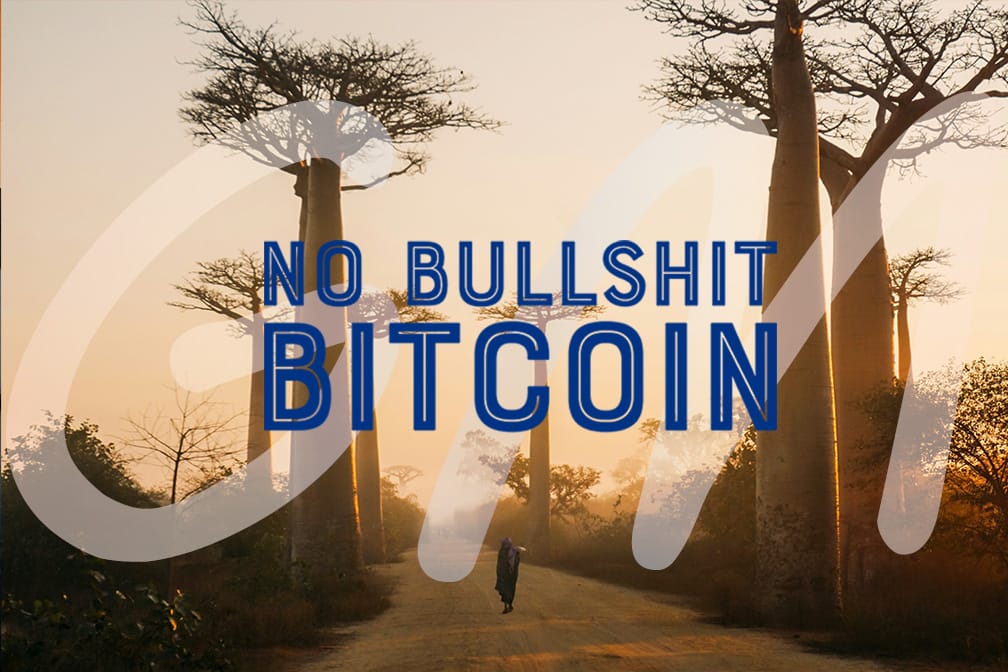
No Bullshit Bitcoin Is a Bitcoin News Desk Without Ads, Paywalls, or Clickbait.
Subscribe .nc-loop-dots-4-24-icon-o{--animation-duration:0.8s} .nc-loop-dots-4-24-icon-o *{opacity:.4;transform:scale(.75);animation:nc-loop-dots-4-anim var(--animation-duration) infinite} .nc-loop-dots-4-24-icon-o :nth-child(1){transform-origin:4px 12px;animation-delay:-.3s;animation-delay:calc(var(--animation-duration)/-2.666)} .nc-loop-dots-4-24-icon-o :nth-child(2){transform-origin:12px 12px;animation-delay:-.15s;animation-delay:calc(var(--animation-duration)/-5.333)} .nc-loop-dots-4-24-icon-o :nth-child(3){transform-origin:20px 12px} @keyframes nc-loop-dots-4-anim{0%,100%{opacity:.4;transform:scale(.75)}50%{opacity:1;transform:scale(1)}}
Email sent! Check your inbox to complete your signup.
No spam. Unsubscribe anytime.
-
 @ 7f6db517:a4931eda
2025-05-25 13:01:37
@ 7f6db517:a4931eda
2025-05-25 13:01:37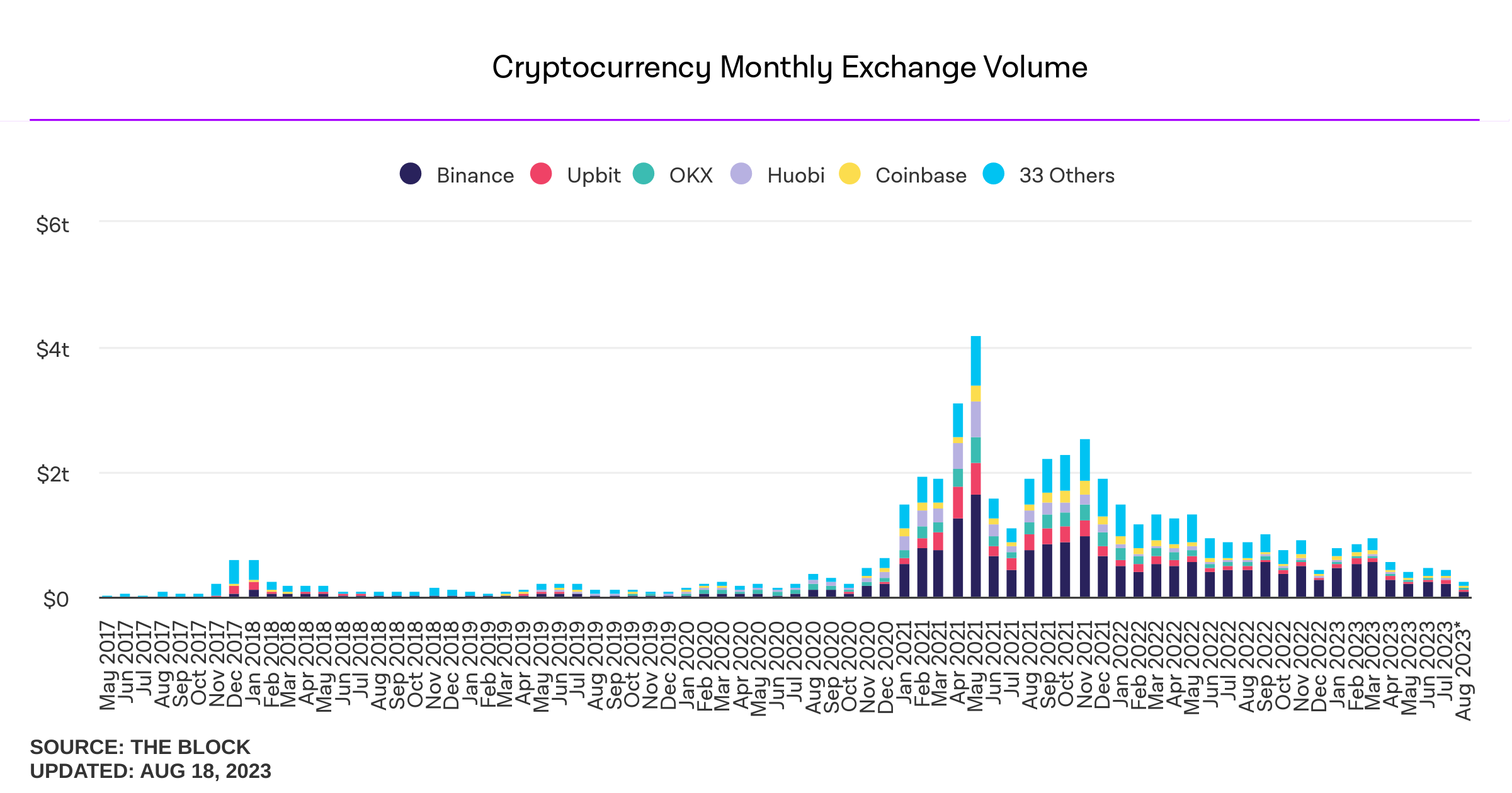
Influencers would have you believe there is an ongoing binance bank run but bitcoin wallet data says otherwise.
- binance wallets are near all time highs
- bitfinex wallets are also trending up
- gemini and coinbase are being hit with massive withdrawals thoughYou should not trust custodians, they can rug you without warning. It is incredibly important you learn how to hold bitcoin yourself, but also consider not blindly trusting influencers with a ref link to shill you.
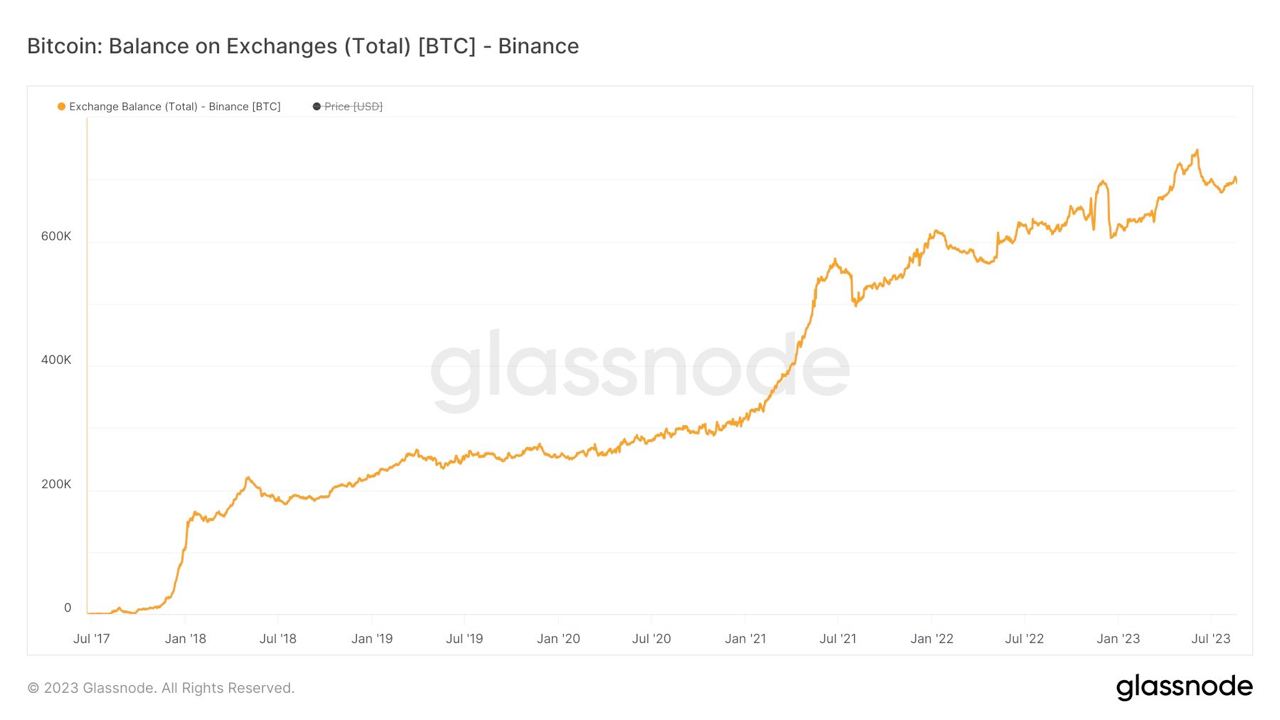
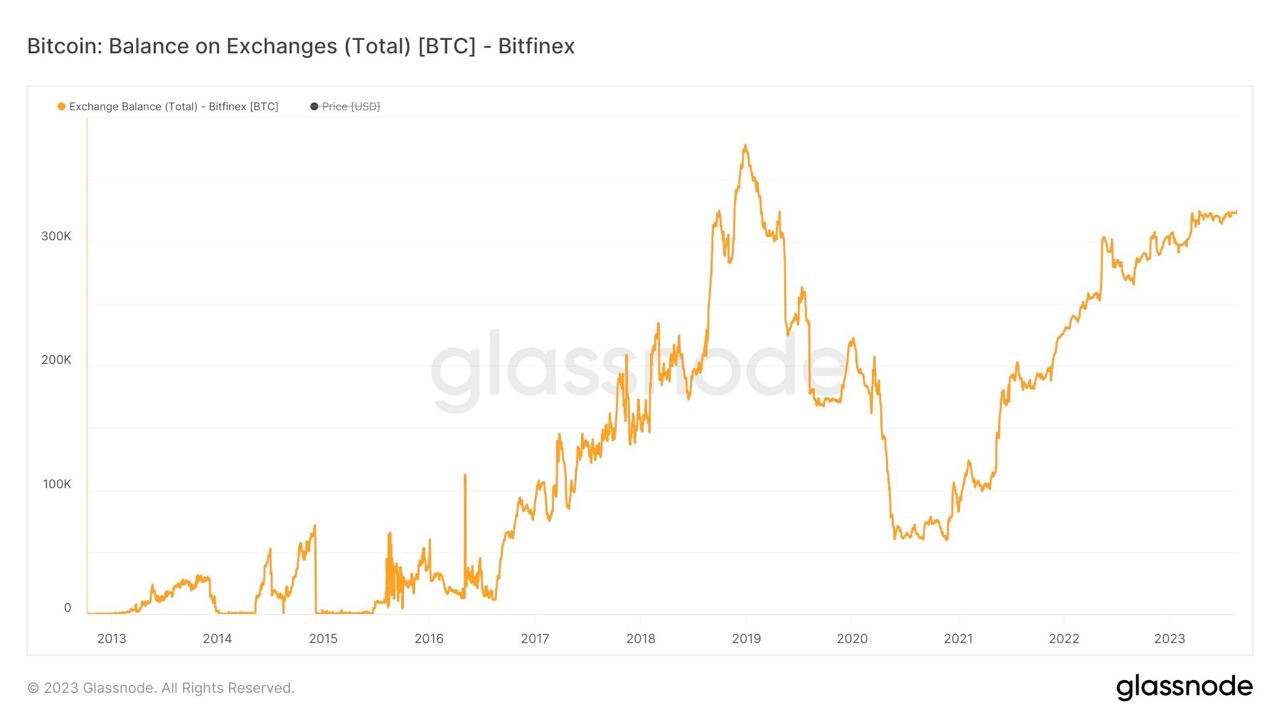
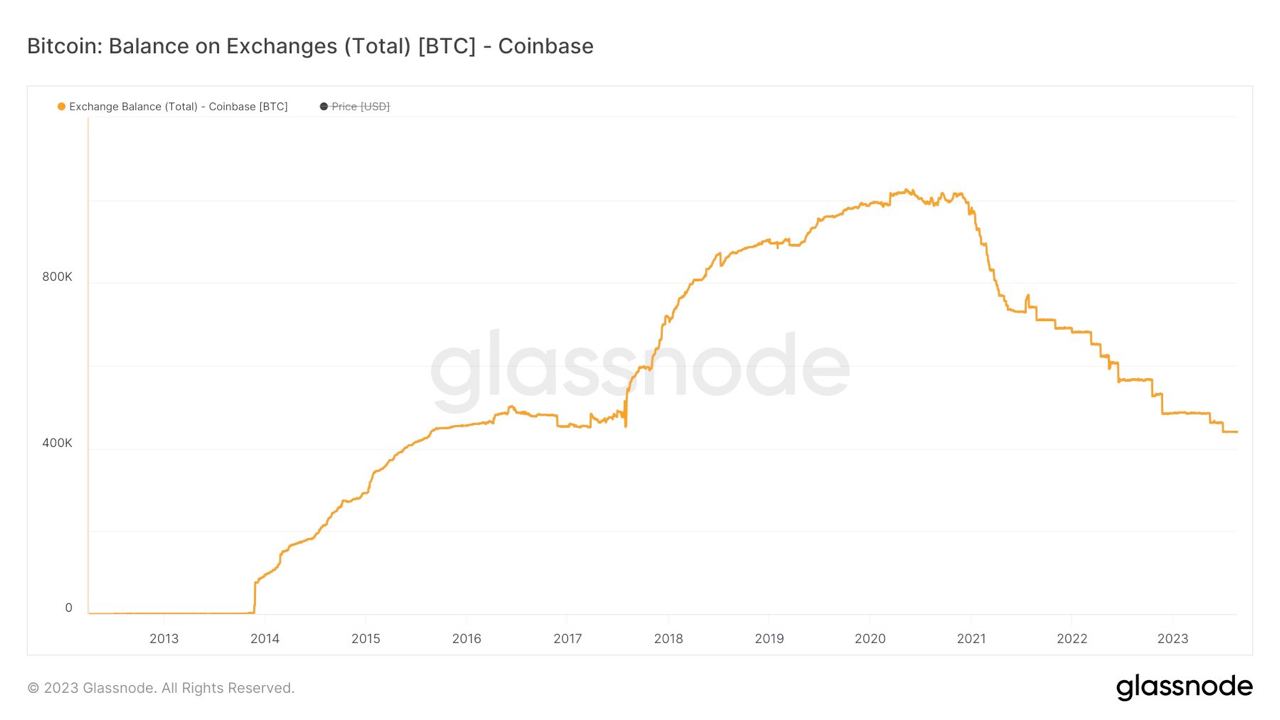
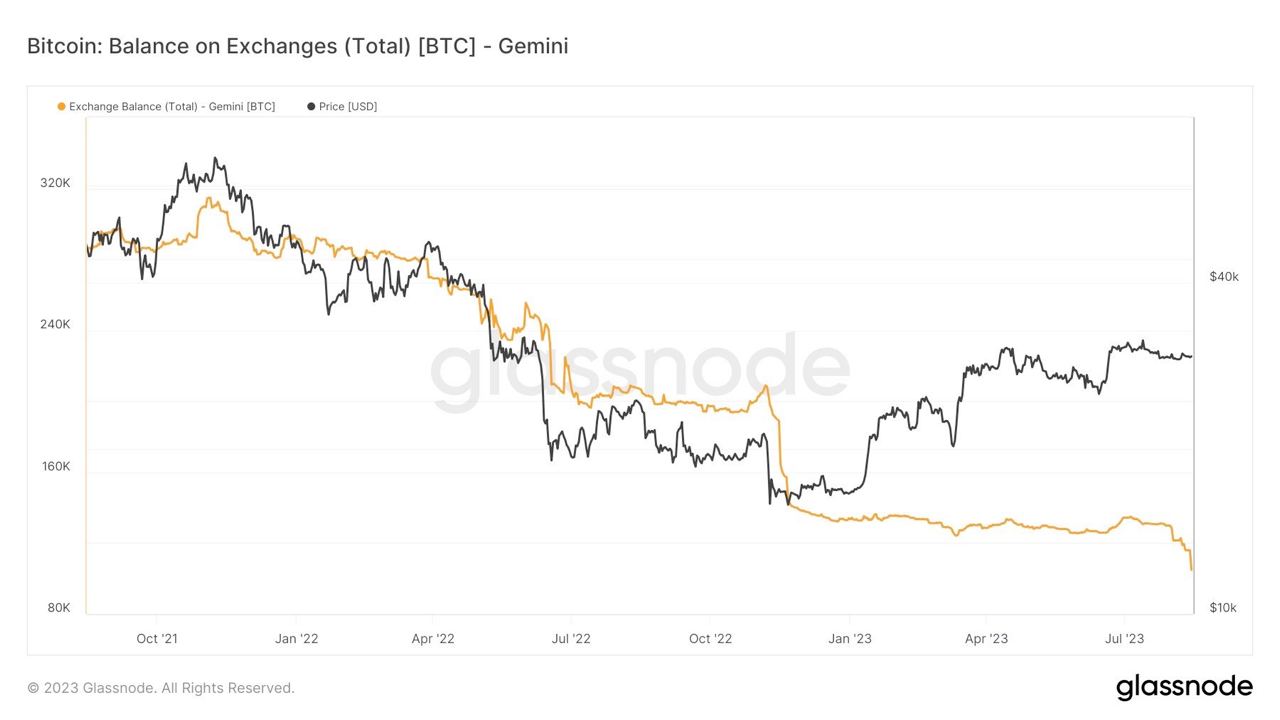
If you found this post helpful support my work with bitcoin.

-
 @ 7f6db517:a4931eda
2025-05-25 13:01:37
@ 7f6db517:a4931eda
2025-05-25 13:01:37
For years American bitcoin miners have argued for more efficient and free energy markets. It benefits everyone if our energy infrastructure is as efficient and robust as possible. Unfortunately, broken incentives have led to increased regulation throughout the sector, incentivizing less efficient energy sources such as solar and wind at the detriment of more efficient alternatives.
The result has been less reliable energy infrastructure for all Americans and increased energy costs across the board. This naturally has a direct impact on bitcoin miners: increased energy costs make them less competitive globally.
Bitcoin mining represents a global energy market that does not require permission to participate. Anyone can plug a mining computer into power and internet to get paid the current dynamic market price for their work in bitcoin. Using cellphone or satellite internet, these mines can be located anywhere in the world, sourcing the cheapest power available.
Absent of regulation, bitcoin mining naturally incentivizes the build out of highly efficient and robust energy infrastructure. Unfortunately that world does not exist and burdensome regulations remain the biggest threat for US based mining businesses. Jurisdictional arbitrage gives miners the option of moving to a friendlier country but that naturally comes with its own costs.
Enter AI. With the rapid development and release of AI tools comes the requirement of running massive datacenters for their models. Major tech companies are scrambling to secure machines, rack space, and cheap energy to run full suites of AI enabled tools and services. The most valuable and powerful tech companies in America have stumbled into an accidental alliance with bitcoin miners: THE NEED FOR CHEAP AND RELIABLE ENERGY.
Our government is corrupt. Money talks. These companies will push for energy freedom and it will greatly benefit us all.
Microsoft Cloud hiring to "implement global small modular reactor and microreactor" strategy to power data centers: https://www.datacenterdynamics.com/en/news/microsoft-cloud-hiring-to-implement-global-small-modular-reactor-and-microreactor-strategy-to-power-data-centers/
If you found this post helpful support my work with bitcoin.

-
 @ dfa02707:41ca50e3
2025-05-25 11:01:30
@ dfa02707:41ca50e3
2025-05-25 11:01:30
Good morning (good night?)! The No Bullshit Bitcoin news feed is now available on Moody's Dashboard! A huge shoutout to sir Clark Moody for integrating our feed.
Headlines
- Spiral welcomes Ben Carman. The developer will work on the LDK server and a new SDK designed to simplify the onboarding process for new self-custodial Bitcoin users.
- The Bitcoin Dev Kit Foundation announced new corporate members for 2025, including AnchorWatch, CleanSpark, and Proton Foundation. The annual dues from these corporate members fund the small team of open-source developers responsible for maintaining the core BDK libraries and related free and open-source software (FOSS) projects.
- Strategy increases Bitcoin holdings to 538,200 BTC. In the latest purchase, the company has spent more than $555M to buy 6,556 coins through proceeds of two at-the-market stock offering programs.
- Spar supermarket experiments with Bitcoin payments in Zug, Switzerland. The store has introduced a new payment method powered by the Lightning Network. The implementation was facilitated by DFX Swiss, a service that supports seamless conversions between bitcoin and legacy currencies.
- The Bank for International Settlements (BIS) wants to contain 'crypto' risks. A report titled "Cryptocurrencies and Decentralised Finance: Functions and Financial Stability Implications" calls for expanding research into "how new forms of central bank money, capital controls, and taxation policies can counter the risks of widespread crypto adoption while still fostering technological innovation."
- "Global Implications of Scam Centres, Underground Banking, and Illicit Online Marketplaces in Southeast Asia." According to the United Nations Office on Drugs and Crime (UNODC) report, criminal organizations from East and Southeast Asia are swiftly extending their global reach. These groups are moving beyond traditional scams and trafficking, creating sophisticated online networks that include unlicensed cryptocurrency exchanges, encrypted communication platforms, and stablecoins, fueling a massive fraud economy on an industrial scale.
- Slovenia is considering a 25% capital gains tax on Bitcoin profits for individuals. The Ministry of Finance has proposed legislation to impose this tax on gains from cryptocurrency transactions, though exchanging one cryptocurrency for another would remain exempt. At present, individual 'crypto' traders in Slovenia are not taxed.
- Circle, BitGo, Coinbase, and Paxos plan to apply for U.S. bank charters or licenses. According to a report in The Wall Street Journal, major crypto companies are planning to apply for U.S. bank charters or licenses. These firms are pursuing limited licenses that would permit them to issue stablecoins, as the U.S. Congress deliberates on legislation mandating licensing for stablecoin issuers.
"Established banks, like Bank of America, are hoping to amend the current drafts of [stablecoin] legislation in such a way that nonbanks are more heavily restricted from issuing stablecoins," people familiar with the matter told The Block.
- Charles Schwab to launch spot Bitcoin trading by 2026. The financial investment firm, managing over $10 trillion in assets, has revealed plans to introduce spot Bitcoin trading for its clients within the next year.
Use the tools
- Bitcoin Safe v1.2.3 expands QR SignMessage compatibility for all QR-UR-compatible hardware signers (SpecterDIY, KeyStone, Passport, Jade; already supported COLDCARD Q). It also adds the ability to import wallets via QR, ensuring compatibility with Keystone's latest firmware (2.0.6), alongside other improvements.
- Minibits v0.2.2-beta, an ecash wallet for Android devices, packages many changes to align the project with the planned iOS app release. New features and improvements include the ability to lock ecash to a receiver's pubkey, faster confirmations of ecash minting and payments thanks to WebSockets, UI-related fixes, and more.
- Zeus v0.11.0-alpha1 introduces Cashu wallets tied to embedded LND wallets. Navigate to Settings > Ecash to enable it. Other wallet types can still sweep funds from Cashu tokens. Zeus Pay now supports Cashu address types in Zaplocker, Cashu, and NWC modes.
- LNDg v1.10.0, an advanced web interface designed for analyzing Lightning Network Daemon (LND) data and automating node management tasks, introduces performance improvements, adds a new metrics page for unprofitable and stuck channels, and displays warnings for batch openings. The Profit and Loss Chart has been updated to include on-chain costs. Advanced settings have been added for users who would like their channel database size to be read remotely (the default remains local). Additionally, the AutoFees tool now uses aggregated pubkey metrics for multiple channels with the same peer.
- Nunchuk Desktop v1.9.45 release brings the latest bug fixes and improvements.
- Blockstream Green iOS v4.1.8 has renamed L-BTC to LBTC, and improves translations of notifications, login time, and background payments.
- Blockstream Green Android v4.1.8 has added language preference in App Settings and enables an Android data backup option for disaster recovery. Additionally, it fixes issues with Jade entry point PIN timeout and Trezor passphrase input.
- Torq v2.2.2, an advanced Lightning node management software designed to handle large nodes with over 1000 channels, fixes bugs that caused channel balance to not be updated in some cases and channel "peer total local balance" not getting updated.
- Stack Wallet v2.1.12, a multicoin wallet by Cypher Stack, fixes an issue with Xelis introduced in the latest release for Windows.
- ESP-Miner-NerdQAxePlus v1.0.29.1, a forked version from the NerdAxe miner that was modified for use on the NerdQAxe+, is now available.
- Zark enables sending sats to an npub using Bark.

- Erk is a novel variation of the Ark protocol that completely removes the need for user interactivity in rounds, addressing one of Ark's key limitations: the requirement for users to come online before their VTXOs expire.
- Aegis v0.1.1 is now available. It is a Nostr event signer app for iOS devices.
- Nostash is a NIP-07 Nostr signing extension for Safari. It is a fork of Nostore and is maintained by Terry Yiu. Available on iOS TestFlight.
- Amber v3.2.8, a Nostr event signer for Android, delivers the latest fixes and improvements.
- Nostur v1.20.0, a Nostr client for iOS, adds
-
 @ b1ddb4d7:471244e7
2025-05-25 11:00:48
@ b1ddb4d7:471244e7
2025-05-25 11:00:48Custodial Lightning wallets allow users to transact without managing private keys or channel liquidity. The provider handles technical complexities, but this convenience comes with critical trade-offs:
- You don’t control your keys: The custodian holds your bitcoin.
- Centralized points of failure: Servers can be hacked or shut down.
- Surveillance risks: Providers track transaction metadata.
Key Risks of Custodial Lightning Wallets
*1. Hacks and Exit Scams*
Custodians centralize large amounts of bitcoin, attracting hackers:
- Nearly $2.2 billion worth of funds were stolen from hacks in 2024.
- Lightning custodians suffered breaches, losing user funds.
Unlike non-custodial wallets, victims have no recourse since they don’t hold keys.
*2. Censorship and Account Freezes*
Custodians comply with regulators, risking fund seizures:
- Strike (a custodial Lightning app) froze accounts of users in sanctioned regions.
- A U.K. court in 2020 ordered Bitfinex to freeze bitcoin worth $860,000 after the exchange and blockchain sleuthing firm Chainalysis traced the funds to a ransomware payment.
*3. Privacy Erosion*
Custodians log user activity, exposing sensitive data:
- Transaction amounts, receiver addresses, and IPs are recorded.
*4. Service Downtime*
Centralized infrastructure risks outages.
*5. Inflation of Lightning Network Centralization*
Custodians dominate liquidity, weakening network resilience:
- At the moment, 10% of the nodes on Lightning control 80% of the liquidity.
- This centralization contradicts bitcoin’s decentralized ethos.
How to Switch to Self-Custodial Lightning Wallets
Migrating from custodial services is straightforward:
*1. Choose a Non-Custodial Wallet*
Opt for wallets that let you control keys and channels:
- Flash: The self-custodial tool that lets you own your keys, control your coins, and transact instantly.
- Breez Wallet : Non-custodial, POS integrations.
- Core Lightning : Advanced, for self-hosted node operators.
*2. Transfer Funds Securely*
- Withdraw funds from your custodial wallet to a bitcoin on-chain address.
- Send bitcoin to your non-custodial Lightning wallet.
*3. Set Up Channel Backups*
Use tools like Static Channel Backups (SCB) to recover channels if needed.
*4. Best Practices*
- Enable Tor: Mask your IP (e.g., Breez’s built-in Tor support).
- Verify Receiving Addresses: Avoid phishing scams.
- Regularly Rebalance Channels: Use tools like Lightning Pool for liquidity.
Why Self-Custodial Lightning Matters
- Self-custody: Control your keys and funds.
- Censorship resistance: No third party can block transactions.
- Network health: Decentralized liquidity strengthens Lightning.
Self-custodial wallets now rival custodial ease.
Custodial Lightning wallets sacrifice security for convenience, putting users at risk of hacks, surveillance, and frozen funds. As bitcoin adoption grows, so does the urgency to embrace self-custodial solutions.
Take action today:
- Withdraw custodial funds to a hardware wallet.
- Migrate to a self-custodial Lightning wallet.
- Educate others on the risks of custodial control.
The Lightning Network’s potential hinges on decentralization—don’t let custodians become its Achilles’ heel.
-
 @ 04c915da:3dfbecc9
2025-05-16 17:59:23
@ 04c915da:3dfbecc9
2025-05-16 17:59:23Recently we have seen a wave of high profile X accounts hacked. These attacks have exposed the fragility of the status quo security model used by modern social media platforms like X. Many users have asked if nostr fixes this, so lets dive in. How do these types of attacks translate into the world of nostr apps? For clarity, I will use X’s security model as representative of most big tech social platforms and compare it to nostr.
The Status Quo
On X, you never have full control of your account. Ultimately to use it requires permission from the company. They can suspend your account or limit your distribution. Theoretically they can even post from your account at will. An X account is tied to an email and password. Users can also opt into two factor authentication, which adds an extra layer of protection, a login code generated by an app. In theory, this setup works well, but it places a heavy burden on users. You need to create a strong, unique password and safeguard it. You also need to ensure your email account and phone number remain secure, as attackers can exploit these to reset your credentials and take over your account. Even if you do everything responsibly, there is another weak link in X infrastructure itself. The platform’s infrastructure allows accounts to be reset through its backend. This could happen maliciously by an employee or through an external attacker who compromises X’s backend. When an account is compromised, the legitimate user often gets locked out, unable to post or regain control without contacting X’s support team. That process can be slow, frustrating, and sometimes fruitless if support denies the request or cannot verify your identity. Often times support will require users to provide identification info in order to regain access, which represents a privacy risk. The centralized nature of X means you are ultimately at the mercy of the company’s systems and staff.
Nostr Requires Responsibility
Nostr flips this model radically. Users do not need permission from a company to access their account, they can generate as many accounts as they want, and cannot be easily censored. The key tradeoff here is that users have to take complete responsibility for their security. Instead of relying on a username, password, and corporate servers, nostr uses a private key as the sole credential for your account. Users generate this key and it is their responsibility to keep it safe. As long as you have your key, you can post. If someone else gets it, they can post too. It is that simple. This design has strong implications. Unlike X, there is no backend reset option. If your key is compromised or lost, there is no customer support to call. In a compromise scenario, both you and the attacker can post from the account simultaneously. Neither can lock the other out, since nostr relays simply accept whatever is signed with a valid key.
The benefit? No reliance on proprietary corporate infrastructure.. The negative? Security rests entirely on how well you protect your key.
Future Nostr Security Improvements
For many users, nostr’s standard security model, storing a private key on a phone with an encrypted cloud backup, will likely be sufficient. It is simple and reasonably secure. That said, nostr’s strength lies in its flexibility as an open protocol. Users will be able to choose between a range of security models, balancing convenience and protection based on need.
One promising option is a web of trust model for key rotation. Imagine pre-selecting a group of trusted friends. If your account is compromised, these people could collectively sign an event announcing the compromise to the network and designate a new key as your legitimate one. Apps could handle this process seamlessly in the background, notifying followers of the switch without much user interaction. This could become a popular choice for average users, but it is not without tradeoffs. It requires trust in your chosen web of trust, which might not suit power users or large organizations. It also has the issue that some apps may not recognize the key rotation properly and followers might get confused about which account is “real.”
For those needing higher security, there is the option of multisig using FROST (Flexible Round-Optimized Schnorr Threshold). In this setup, multiple keys must sign off on every action, including posting and updating a profile. A hacker with just one key could not do anything. This is likely overkill for most users due to complexity and inconvenience, but it could be a game changer for large organizations, companies, and governments. Imagine the White House nostr account requiring signatures from multiple people before a post goes live, that would be much more secure than the status quo big tech model.
Another option are hardware signers, similar to bitcoin hardware wallets. Private keys are kept on secure, offline devices, separate from the internet connected phone or computer you use to broadcast events. This drastically reduces the risk of remote hacks, as private keys never touches the internet. It can be used in combination with multisig setups for extra protection. This setup is much less convenient and probably overkill for most but could be ideal for governments, companies, or other high profile accounts.
Nostr’s security model is not perfect but is robust and versatile. Ultimately users are in control and security is their responsibility. Apps will give users multiple options to choose from and users will choose what best fits their need.
-
 @ 04c915da:3dfbecc9
2025-05-16 17:51:54
@ 04c915da:3dfbecc9
2025-05-16 17:51:54In much of the world, it is incredibly difficult to access U.S. dollars. Local currencies are often poorly managed and riddled with corruption. Billions of people demand a more reliable alternative. While the dollar has its own issues of corruption and mismanagement, it is widely regarded as superior to the fiat currencies it competes with globally. As a result, Tether has found massive success providing low cost, low friction access to dollars. Tether claims 400 million total users, is on track to add 200 million more this year, processes 8.1 million transactions daily, and facilitates $29 billion in daily transfers. Furthermore, their estimates suggest nearly 40% of users rely on it as a savings tool rather than just a transactional currency.
Tether’s rise has made the company a financial juggernaut. Last year alone, Tether raked in over $13 billion in profit, with a lean team of less than 100 employees. Their business model is elegantly simple: hold U.S. Treasuries and collect the interest. With over $113 billion in Treasuries, Tether has turned a straightforward concept into a profit machine.
Tether’s success has resulted in many competitors eager to claim a piece of the pie. This has triggered a massive venture capital grift cycle in USD tokens, with countless projects vying to dethrone Tether. Due to Tether’s entrenched network effect, these challengers face an uphill battle with little realistic chance of success. Most educated participants in the space likely recognize this reality but seem content to perpetuate the grift, hoping to cash out by dumping their equity positions on unsuspecting buyers before they realize the reality of the situation.
Historically, Tether’s greatest vulnerability has been U.S. government intervention. For over a decade, the company operated offshore with few allies in the U.S. establishment, making it a major target for regulatory action. That dynamic has shifted recently and Tether has seized the opportunity. By actively courting U.S. government support, Tether has fortified their position. This strategic move will likely cement their status as the dominant USD token for years to come.
While undeniably a great tool for the millions of users that rely on it, Tether is not without flaws. As a centralized, trusted third party, it holds the power to freeze or seize funds at its discretion. Corporate mismanagement or deliberate malpractice could also lead to massive losses at scale. In their goal of mitigating regulatory risk, Tether has deepened ties with law enforcement, mirroring some of the concerns of potential central bank digital currencies. In practice, Tether operates as a corporate CBDC alternative, collaborating with authorities to surveil and seize funds. The company proudly touts partnerships with leading surveillance firms and its own data reveals cooperation in over 1,000 law enforcement cases, with more than $2.5 billion in funds frozen.
The global demand for Tether is undeniable and the company’s profitability reflects its unrivaled success. Tether is owned and operated by bitcoiners and will likely continue to push forward strategic goals that help the movement as a whole. Recent efforts to mitigate the threat of U.S. government enforcement will likely solidify their network effect and stifle meaningful adoption of rival USD tokens or CBDCs. Yet, for all their achievements, Tether is simply a worse form of money than bitcoin. Tether requires trust in a centralized entity, while bitcoin can be saved or spent without permission. Furthermore, Tether is tied to the value of the US Dollar which is designed to lose purchasing power over time, while bitcoin, as a truly scarce asset, is designed to increase in purchasing power with adoption. As people awaken to the risks of Tether’s control, and the benefits bitcoin provides, bitcoin adoption will likely surpass it.
-
 @ 04c915da:3dfbecc9
2025-05-16 17:12:05
@ 04c915da:3dfbecc9
2025-05-16 17:12:05One of the most common criticisms leveled against nostr is the perceived lack of assurance when it comes to data storage. Critics argue that without a centralized authority guaranteeing that all data is preserved, important information will be lost. They also claim that running a relay will become prohibitively expensive. While there is truth to these concerns, they miss the mark. The genius of nostr lies in its flexibility, resilience, and the way it harnesses human incentives to ensure data availability in practice.
A nostr relay is simply a server that holds cryptographically verifiable signed data and makes it available to others. Relays are simple, flexible, open, and require no permission to run. Critics are right that operating a relay attempting to store all nostr data will be costly. What they miss is that most will not run all encompassing archive relays. Nostr does not rely on massive archive relays. Instead, anyone can run a relay and choose to store whatever subset of data they want. This keeps costs low and operations flexible, making relay operation accessible to all sorts of individuals and entities with varying use cases.
Critics are correct that there is no ironclad guarantee that every piece of data will always be available. Unlike bitcoin where data permanence is baked into the system at a steep cost, nostr does not promise that every random note or meme will be preserved forever. That said, in practice, any data perceived as valuable by someone will likely be stored and distributed by multiple entities. If something matters to someone, they will keep a signed copy.
Nostr is the Streisand Effect in protocol form. The Streisand effect is when an attempt to suppress information backfires, causing it to spread even further. With nostr, anyone can broadcast signed data, anyone can store it, and anyone can distribute it. Try to censor something important? Good luck. The moment it catches attention, it will be stored on relays across the globe, copied, and shared by those who find it worth keeping. Data deemed important will be replicated across servers by individuals acting in their own interest.
Nostr’s distributed nature ensures that the system does not rely on a single point of failure or a corporate overlord. Instead, it leans on the collective will of its users. The result is a network where costs stay manageable, participation is open to all, and valuable verifiable data is stored and distributed forever.
-
 @ 7f6db517:a4931eda
2025-05-25 13:01:37
@ 7f6db517:a4931eda
2025-05-25 13:01:37
Humanity's Natural State Is Chaos
Without order there is chaos. Humans competing with each other for scarce resources naturally leads to conflict until one group achieves significant power and instates a "monopoly on violence."Power Brings Stability
Power has always been the key means to achieve stability in societies. Centralized power can be incredibly effective in addressing issues such as crime, poverty, and social unrest efficiently. Unfortunately this power is often abused and corrupted.Centralized Power Breeds Tyranny
Centralized power often leads to tyrannical rule. When a select few individuals hold control over a society, they tend to become corrupted. Centralized power structures often lack accountability and transparency, and rely too heavily on trust.Distributed Power Cultivates Freedom
New technology that empowers individuals provide us the ability to rebuild societies from the bottom up. Strong individuals that can defend and provide for themselves will help build strong local communities on a similar foundation. The result is power being distributed throughout society rather than held by a select few.In the short term, relying on trust and centralized power is an easy answer to mitigating chaos, but freedom tech tools provide us the ability to build on top of much stronger distributed foundations that provide stability while also cultivating individual freedom.
The solution starts with us. Empower yourself. Empower others. A grassroots freedom tech movement scaling one person at a time.
If you found this post helpful support my work with bitcoin.

-
 @ dfa02707:41ca50e3
2025-05-25 13:01:35
@ dfa02707:41ca50e3
2025-05-25 13:01:35Headlines
- Spiral renews support for Dan Gould and Joschisan. The organization has renewed support for Dan Gould, who is developing the Payjoin Dev Kit (PDK), and Joschisan, a Fedimint developer focused on simplifying federations.
- Metaplanet buys another 145 BTC. The Tokyo-listed company has purchased an additional 145 BTC for $13.6 million. Their total bitcoin holdings now stand at 5,000 coins, worth around $428.1 million.
- Semler Scientific has increased its bitcoin holdings to 3,303 BTC. The company acquired an additional 111 BTC at an average price of $90,124. The purchase was funded through proceeds from an at-the-market offering and cash reserves, as stated in a press release.
- The Virtual Asset Service Providers (VASP) Bill 2025 introduced in Kenya. The new legislation aims to establish a comprehensive legal framework for licensing, regulating, and supervising virtual asset service providers (VASPs), with strict penalties for non-compliant entities.
- Russian government to launch a cryptocurrency exchange. The country's Ministry of Finance and Central Bank announced plans to establish a trading platform for "highly qualified investors" that "will legalize crypto assets and bring crypto operations out of the shadows."
- All virtual asset service providers expect to be fully compliant with the Travel Rule by the end of 2025. A survey by financial surveillance specialist Notabene reveals that 90% of virtual asset service providers (VASPs) expect full Travel Rule compliance by mid-2025, with all aiming for compliance by year-end. The survey also shows a significant rise in VASPs blocking withdrawals until beneficiary information is confirmed, increasing from 2.9% in 2024 to 15.4% now. Additionally, about 20% of VASPs return deposits if originator data is missing.
- UN claims Bitcoin mining is a "powerful tool" for money laundering. The Rage's analysis suggests that the recent United Nations Office on Drugs and Crime report on crime in South-East Asia makes little sense and hints at the potential introduction of Anti-Money Laundering (AML) measures at the mining level.
- Riot Platforms has obtained a $100 million credit facility from Coinbase Credit, using bitcoin as collateral for short-term funding to support its expansion. The firm's CEO, Jason Les, stated that this facility is crucial for diversifying financing sources and driving long-term stockholder value through strategic growth initiatives.
- Bitdeer raises $179M in loans and equity amid Bitcoin chip push. The Miner Mag reports that Bitdeer entered into a loan agreement with its affiliate Matrixport for up to $200 million in April, as disclosed in its annual report filed on Monday.
- Federal Reserve retracts guidance discouraging banks from engaging in 'crypto.' The U.S. Federal Reserve withdrew guidance that discouraged banks from crypto and stablecoin activities, as announced by its Board of Governors on Thursday. This includes rescinding a 2022 supervisory letter requiring prior notification of crypto activities and 2023 stablecoin requirements.
"As a result, the Board will no longer expect banks to provide notification and will instead monitor banks' crypto-asset activities through the normal supervisory process," reads the FED statement.
- UAE-based Islamic bank ruya launches Shari’ah-compliant bitcoin investing. The bank has become the world’s first Islamic bank to provide direct access to virtual asset investments, including Bitcoin, via its mobile app, per Bitcoin Magazine.
- U.S. 'crypto' scam losses amounted to $9.3B in 2024. The US The Federal Bureau of Investigation (FBI) has reported $9.3 billion losses in cryptocurrency-related scams in 2024, noting a troubling trend of scams targeting older Americans, which accounted for over $2.8 billion of those losses.

Source: FBI.
- North Korean hackers establish fake companies to target 'crypto' developers. Silent Push researchers reported that hackers linked to the Lazarus Group created three shell companies, two of which are based in the U.S., with the objective of spreading malware through deceptive job interview scams aimed at individuals seeking jobs in cryptocurrency companies.
- Citrea deployed its Clementine Bridge on the Bitcoin testnet. The bridge utilizes the BitVM2 programming language to inherit validity from Bitcoin, allegedly providing "the safest and most trust-minimized way to use BTC in decentralized finance."
- Hesperides University offers a Master’s degree in Bitcoin. Bitcoin Magazine reports the launch of the first-ever Spanish-language Master’s program dedicated exclusively to Bitcoin. Starting April 28, 2025, this fully online program will equip professionals with technical, economic, legal, and philosophical skills to excel in the Bitcoin era.
- BTC in D.C. event is set to take place on September 30 - October 1 in Washington, D.C. Learn more about this initiative here.
Use the tools
- Bitcoin Keeper just got a new look. Version 2.2.0 of the mobile multisig app brought a new branding design, along with a Keeper Private tier, testnet support, ability to import and export BIP-329 labels, and the option to use a Server Key with multiple users.
- Earlier this month the project also announced Keeper Learn service, offering clear and guided Bitcoin learning sessions for both groups and individuals.
- Keeper Desktop v0.2.2, a companion desktop app for Bitcoin Keeper mobile app, received a renewed branding update, too.

The evolution of Bitcoin Keeper logo. Source: BitHyve blog.
- Blockstream Green Desktop v2.0.25 updates GDK to v0.75.1 and fixes amount parsing issues when switching from fiat denomination to Liquid asset.
- Lightning Loop v0.31.0-beta enhances the
loop listswapscommand by improving the ability to filter the response. - Lightning-kmp v1.10.0, an implementation of the Lightning Network in Kotlin, is now available.
- LND v0.19.0-beta.rc3, the latest beta release candidate of LND is now ready for testing.
- ZEUS v0.11.0-alpha2 is now available for testing, too. It's nuts.
- JoinMarket Fidelity Bond Simulator helps potential JoinMarket makers evaluate their competitive position in the market based on fidelity bonds.
- UTXOscope is a text-only Bitcoin blockchain analysis tool that visualizes price dynamics using only on-chain data. The
-
 @ cae03c48:2a7d6671
2025-05-25 11:00:34
@ cae03c48:2a7d6671
2025-05-25 11:00:34Bitcoin Magazine
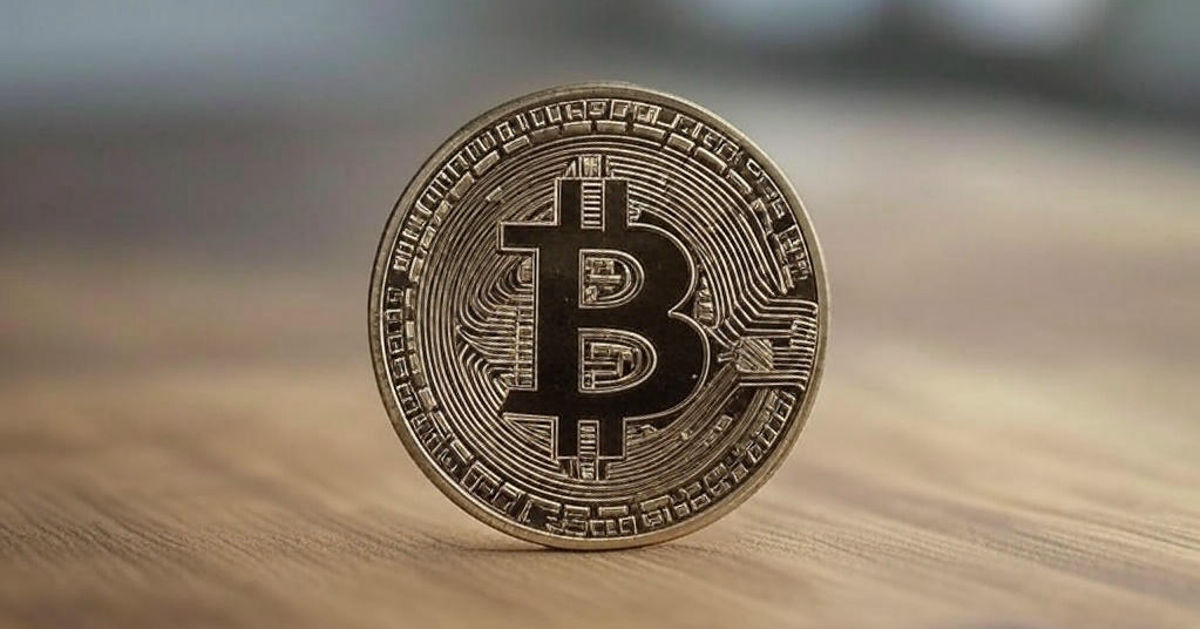
H100 Group Became The First Publicly Listed Bitcoin Treasury Company In SwedenH100 Group AB has announced it has become Sweden’s first publicly listed health technology company to adopt Bitcoin as a treasury reserve asset, announcing the purchase of 4.39 BTC for 5 million NOK (approximately $475,000) as part of its long-term Bitcoin Treasury Strategy.
The Stockholm-based company, which provides AI-powered automation and digital solutions for healthcare providers, joins a growing roster of public companies adding Bitcoin to their balance sheets in 2025. The purchase was executed at an average price of 1,138,737 NOK per Bitcoin (roughly $108,200).
JUST IN:
 H100 Group buys 4.39 BTC and becomes Sweden's first publicly listed #Bitcoin treasury company. pic.twitter.com/pNXe9XT2a7
H100 Group buys 4.39 BTC and becomes Sweden's first publicly listed #Bitcoin treasury company. pic.twitter.com/pNXe9XT2a7— Bitcoin Magazine (@BitcoinMagazine) May 22, 2025
“This addition to H100’s Bitcoin Treasury Strategy follows an increasing number of tech-oriented growth companies holding Bitcoin on their balance sheet,” said CEO Sander Andersen. “And I believe the values of individual sovereignty highly present in the Bitcoin community aligns well with, and will appeal to, the customers and communities we are building the H100 platform for.”
The move comes amid a surge in corporate Bitcoin adoption, with many public companies announcing Bitcoin treasury programs in the first five months of 2025. Notable recent entrants include Twenty One Capital, Strive and several others.
H100 Group emphasized that the Bitcoin purchase does not affect its core operations in the health and longevity industry. The company views the investment as a strategic deployment of excess liquidity to strengthen its financial position while aligning with its values of individual sovereignty.
The announcement reflects a broader shift in corporate treasury management, as companies seek to diversify their holdings beyond traditional cash reserves.
At press time, Bitcoin trades at $111,108, up 1.28% over the past 24 hours, as institutional adoption continues to drive market momentum. H100 Group’s shares closed up 1.37% at 0.89 SEK on the NGM Nordic SME exchange following the announcement.
This post H100 Group Became The First Publicly Listed Bitcoin Treasury Company In Sweden first appeared on Bitcoin Magazine and is written by Vivek Sen.
-
 @ 9223d2fa:b57e3de7
2025-05-25 10:59:25
@ 9223d2fa:b57e3de7
2025-05-25 10:59:25480 steps
-
 @ 57d1a264:69f1fee1
2025-05-16 07:51:08
@ 57d1a264:69f1fee1
2025-05-16 07:51:08Payjoin allows the sender and receiver of an on-chain payment to collaborate and create a transaction that breaks on-chain heuristics, allowing a more private transaction with ambiguous payment amount and UTXO ownership. Additionally, it can also be used for UTXO consolidation (receiver saves future fees) and batching payments (receiver can make payment(s) of their own in the process of receiving one), also known as transaction cut-through. Other than improved privacy, the rest of the benefits are typically applicable to the receiver, not the sender.
BIP-78 was the original payjoin protocol that required the receiver to run a endpoint/server (always online) in order to mediate the payjoin process. Payjoin adoption has remained pretty low, something attributed to the server & perpetual online-ness requirement. This is the motivation for payjoin v2.
The purpose of the one-pager is to analyse the protocol, and highlight the UX issues or tradeoffs it entails, so that the payjoin user flows can be appropriately designed and the tradeoffs likewise communicated. A further document on UX solutions might be needed to identify solutions and opportunities
The following observations are generally limited to individual users transacting through their mobile devices:
While users naturally want better privacy and fee-savings, they also want to minimise friction and minimise (optimise) payment time. These are universal and more immediate needs since they deal with the user experience.
Added manual steps
TL;DR v2 payjoin eliminates server & simultaneous user-liveness requirements (increasing TAM, and opportunities to payjoin, as a result) by adding manual steps.
Usually, the extent of the receiver's involvement in the transaction process is limited to sharing their address with the sender. Once they share the address/URI, they can basically forget about it. In the target scenario for v2 payjoin, the receiver must come online again (except they have no way of knowing "when") to contribute input(s) and sign the PSBT. This can be unexpected, unintuitive and a bit of a hassle.
Usually (and even with payjoin v1), the sender crafts and broadcasts the transaction in one go; meaning the user's job is done within a few seconds/minutes. With payjoin v2, they must share the original-PSBT with the receiver, and then wait for them to do their part. Once the the receiver has done that, the sender must come online to review the transaction, sign it & broadcast.
In summary,
In payjoin v1, step 3 is automated and instant, so delay 2, 3 =~ 0. As the user experiences it, the process is completed in a single session, akin to a non-payjoin transaction.
With payjoin v2, Steps 2 & 3 in the above diagram are widely spread and noticeable. These manual steps are separated by uncertain delays (more on that below) when compared to a non-payjoin transaction.
Delays
We've established that both senders and receivers must take extra manual steps to execute a payoin transaction. With payjoin v2, this process gets split into multiple sessions, since the sender and receiver are not like to be online simultaneously.
Delay 2 & 3 (see diagram above) are uncertain in nature. Most users do not open their bitcoin wallets for days or weeks! The receiver must come online before the timeout hits in order for the payjoin process to work, otherwise time is just wasted with no benefit. UX or technical solutions are needed to minimise these delays.
Delays might be exacerbated if the setup is based on hardware wallet and/or uses multisig.
Notifications or background processes
There is one major problem when we say "the user must come online to..." but in reality the user has no way of knowing there is a payjoin PSBT waiting for them. After a PSBT is sent to the relay, the opposite user would only find out about it whenever they happen to come online. Notifications and background sync processes might be necessary to minimise delays. This is absolutely essential to avert timeouts in addition to saving valuable time. Another risk is phantom payjoin stuff after the timeout is expired if receiver-side does not know it has.
Fee Savings
The following observations might be generally applicable for both original and this v2 payjoin version. Fee-savings with payjoin is a tricky topic. Of course, overall a payjoin transaction is always cheaper than 2 separate transactions, since they get to share the overhead.
Additionally, without the receiver contributing to fees, the chosen fee rate of the PSBT (at the beginning) drops, and can lead to slower confirmation. From another perspective, a sender paying with payjoin pays higher fees for similar confirmation target. This has been observed in a production wallet years back. Given that total transaction time can extend to days, the fee environment itself might change, and all this must be considered when designing the UX.
Of course, there is nothing stopping the receiver from contributing to fees, but this idea is likely entirely novel to the bitcoin ecosystem (perhaps payments ecosystem in general) and the user base. Additionally, nominally it involves the user paying fees and tolerating delays just to receive bitcoin. Without explicit incentives/features that encourage receivers to participate, payjoining might seem like an unncessary hassle.
Overall, it seems that payjoin makes UX significant tradeoffs for important privacy (and potential fee-saving) benefits. This means that the UX might have to do significant heavy-lifting, to ensure that users are not surprised, confused or frustrated when they try to transact on-chain in a privacy-friendly feature. Good, timely communication, new features for consolidation & txn-cutthrough and guided user flows seem crucial to ensure payjoin adoption and for help make on-chain privacy a reality for users.
---------------
Original document available here. Reach out at
yashrajdca@proton.me,y_a_s_h_r_a_j.70on Signal, or on reach out in Bitcoin Design discord.https://stacker.news/items/981388
-
 @ 57d1a264:69f1fee1
2025-05-16 05:38:28
@ 57d1a264:69f1fee1
2025-05-16 05:38:28LegoGPT generates a LEGO structure from a user-provided text prompt in an end-to-end manner. Notably, our generated LEGO structure is physically stable and buildable.
Lego is something most of us knows. This is a opportuity to ask where is our creativity going? From the art of crafting figures to building blocks following our need and desires to have a machine thinking and building following step-by-step instructions to achieve an isolated goal.
Is the creative act then in the question itself, not anymore in the crafting? Are we just delegating the solution of problems, the thinking of how to respond to questions, to machines? Would it be different if delegated to other people?
Source: https://avalovelace1.github.io/LegoGPT/
https://stacker.news/items/981336
-
 @ dfa02707:41ca50e3
2025-05-25 13:01:35
@ dfa02707:41ca50e3
2025-05-25 13:01:35Headlines
- Twenty One Capital is set to launch with over 42,000 BTC in its treasury. This new Bitcoin-native firm, backed by Tether and SoftBank, is planned to go public via a SPAC merger with Cantor Equity Partners and will be led by Jack Mallers, co-founder and CEO of Strike. According to a report by the Financial Times, the company aims to replicate the model of Michael Saylor with his company, MicroStrategy.
- Florida's SB 868 proposes a backdoor into encrypted platforms. The bill and its House companion have both passed through their respective committees and are headed to a full vote. If enacted, SB 868 would require social media companies to decrypt teens' private messages, ban disappearing messages, allow unrestricted parental access to private messages, and likely eliminate encryption for all minors altogether.
- Paul Atkins has officially assumed the role of the 34th Chairman of the US Securities and Exchange Commission (SEC). This is a return to the agency for Atkins, who previously served as an SEC Commissioner from 2002 to 2008 under the George W. Bush administration. He has committed to advancing the SEC’s mission of fostering capital formation, safeguarding investors, and ensuring fair and efficient markets.
- Solosatoshi.com has sold over 10,000 open-source miners, adding more than 10 PH of hashpower to the Bitcoin network.
"Thank you, Bitaxe community. OSMU developers, your brilliance built this. Supporters, your belief drives us. Customers, your trust powers 10,000+ miners and 10PH globally. Together, we’re decentralizing Bitcoin’s future. Last but certainly not least, thank you@skot9000 for not only creating a freedom tool, but instilling the idea into thousands of people, that Bitcoin mining can be for everyone again," said the firm on X.
- OCEAN's DATUM has found 100 blocks. "Over 65% of OCEAN’s miners are using DATUM, and that number is growing every day. This means block template construction is making its way back into the hands of the miners, which is not only the most profitable for miners on OCEAN but also one of the best things for Bitcoin," stated the mining pool.

Source: orangesurf
- Arch Labs has secured $13 million to develop "ArchVM" and integrate smart-contract functionality with Bitcoin. The funding round, valuing the company at $200 million, was led by Pantera Capital, as announced on Tuesday.
- Tesla still holds nearly $1 billion in bitcoin. According to the automaker's latest earnings report, the firm reported digital asset holdings worth $951 million as of March 31.
- The European Central Bank is pushing for amendments to the European Union's Markets in Crypto Assets legislation (MiCA), just months after its implementation. According to Politico's report on Tuesday, the ECB is concerned that U.S. support for cryptocurrency, particularly stablecoins, could cause economic harm to the 27-nation bloc.
- TABConf 2025 is scheduled to take place from October 13-16, 2025. This prominent technical Bitcoin conference is dedicated to community building, education, and developer support, and it is set to return in October. Get your tickets here.
- Kaduna Lightning Development Bootcamp. From May 14th to 17th, the Bitcoin Lightning Developer Bootcamp will take place in Kaduna, Nigeria. Thisevent offers four dynamic days of coding, learning, and networking. Organized by Africa Free Routing and supported by Btrust, Tether, and African Bitcoiners, this bootcamp is designed as a gateway for African developers eager to advance their skills in Bitcoin and Lightning development. Apply here.

Source: African Bitcoiners.
Use the tools
- Core Lightning (CLN) v25.02.2 as been released to fix a broken Docker image. The issue was caused by an SQLite version that did not support an advanced query.
- Blitz wallet v0.4.4-beta introduces several updates and improvements, including the prevention of duplicate ecash payments, fixes for background ecash invoice handling, the ability for users to send payments to BOLT12 invoices from their Liquid balance, support for Blink QR codes, a lowered minimum amount for Lightning-to-Liquid payments to 100 sats, the option to initiate a node sync via a swipe gesture on the wallet's home screen, and the introduction of opt-in or opt-out functionality for newly implemented crash analytics via settings.
- Utreexo v0.5.0, a hash-based dynamic accumulator, is now available.
- Specter v2.1.1 is now available on StartOS. "This update brings compatibility with Bitcoin Core v28 and incorporates several upstream improvements," said developer Alex71btc.
- ESP-Miner (AxeOS) v2.7.0b1 is now available for testing.
- NodeGuard v0.16.1, a treasury management solution for Lightning nodes, has been released.
- The latest stacker.news updates include prompts to add a receiving wallet when posting or making comments (for new users), an option to randomize poll choices, improved URL search, and a few other enhancements. A bug fix for territories created after 9/19/24 has been implemented to reward 70% of their revenue to owners instead of 50%.
Other stuff
- The April edition of the 256 Foundation's newsletter is now available. It includes the latest mining news, Bitcoin network health updates, project developments, and a tutorial on how to update FutureBit's Apollo 1 to the Apollo 2 software.
- Siggy47 has posted a comprehensive RoboSats guide on stacker.news.
- Learn how to run your own Nostr relay using Citrine and Cloudflare Tunnels by following this step-by-step guide by Dhalism.
- Max Guise has written a Bitkey roadmap update for April 2025.
-
PlebLab has uploaded a video on how to build a Rust wallet with LDK Node by Ben Carman.
-
Do you want more? Subscribe and get No Bullshit GM report straight to your mailbox and No Bullshit Bitcoin on Nostr.
- Feedback or tips? Drop it here.
- #FREESAMOURAI
Sign up for No Bullshit Bitcoin

No Bullshit Bitcoin Is a Bitcoin News Desk Without Ads, Paywalls, or Clickbait.
Subscribe .nc-loop-dots-4-24-icon-o{--animation-duration:0.8s} .nc-loop-dots-4-24-icon-o *{opacity:.4;transform:scale(.75);animation:nc-loop-dots-4-anim var(--animation-duration) infinite} .nc-loop-dots-4-24-icon-o :nth-child(1){transform-origin:4px 12px;animation-delay:-.3s;animation-delay:calc(var(--animation-duration)/-2.666)} .nc-loop-dots-4-24-icon-o :nth-child(2){transform-origin:12px 12px;animation-delay:-.15s;animation-delay:calc(var(--animation-duration)/-5.333)} .nc-loop-dots-4-24-icon-o :nth-child(3){transform-origin:20px 12px} @keyframes nc-loop-dots-4-anim{0%,100%{opacity:.4;transform:scale(.75)}50%{opacity:1;transform:scale(1)}}
Email sent! Check your inbox to complete your signup.
No spam. Unsubscribe anytime.
-
 @ dfa02707:41ca50e3
2025-05-25 13:01:34
@ dfa02707:41ca50e3
2025-05-25 13:01:34Contribute to keep No Bullshit Bitcoin news going.
- RoboSats v0.7.7-alpha is now available!
NOTE: "This version of clients is not compatible with older versions of coordinators. Coordinators must upgrade first, make sure you don't upgrade your client while this is marked as pre-release."
- This version brings a new and improved coordinators view with reviews signed both by the robot and the coordinator, adds market price sources in coordinator profiles, shows a correct warning for canceling non-taken orders after a payment attempt, adds Uzbek sum currency, and includes package library updates for coordinators.

Source: RoboSats.
- siggy47 is writing daily RoboSats activity reviews on stacker.news. Check them out here.
- Stay up-to-date with RoboSats on Nostr.
What's new
- New coordinators view (see the picture above).
- Available coordinator reviews signed by both the robot and the coordinator.
- Coordinators now display market price sources in their profiles.

Source: RoboSats.
- Fix for wrong message on cancel button when taking an order. Users are now warned if they try to cancel a non taken order after a payment attempt.
- Uzbek sum currency now available.
- For coordinators: library updates.
- Add docker frontend (#1861).
- Add order review token (#1869).
- Add UZS migration (#1875).
- Fixed tests review (#1878).
- Nostr pubkey for Robot (#1887).
New contributors

Full Changelog: v0.7.6-alpha...v0.7.7-alpha
-
 @ 975e4ad5:8d4847ce
2025-05-25 10:43:35
@ 975e4ad5:8d4847ce
2025-05-25 10:43:35Selfishness as Bitcoin’s Engine
Bitcoin, created by Satoshi Nakamoto, operates on a clear mechanism: miners use computational power to solve complex mathematical puzzles, verifying transactions on the network. In return, they earn rewards in Bitcoin. This is pure self-interest—miners want to maximize their profits. But while pursuing personal gain, they inadvertently maintain the entire system. Each new block added to the blockchain makes the network more stable and resilient against attacks. The more miners join, the more decentralized the system becomes, rendering it nearly impossible to manipulate.
This mechanism is brilliant because it taps into human nature—the desire for personal gain—to create something greater. Bitcoin doesn’t rely on altruism or good intentions. It relies on rational self-interest, which drives individuals to act in their own favor, ultimately benefiting the entire community.
The World Works the Same Way
This concept isn’t unique to Bitcoin. The world is full of examples where personal interest leads to collective progress. When an entrepreneur creates a new product, they do so to make money, but in the process, they create jobs, advance technology, and improve people’s lives. When a scientist works on a breakthrough, they may be driven by fame or financial reward, but the result is often a discovery that changes the world. Even in everyday life, when we buy products or services for our own convenience, we support the economy and encourage innovation.
Of course, self-interest doesn’t always lead to positive outcomes. Technologies created with good intentions can be misused—for example, in wars or for fraud. But even these negative aspects don’t halt progress. Competition and the drive for survival push humanity to find solutions, learn from mistakes, and keep moving forward. This is the cycle of development: individual self-interest fuels innovations that make the world more technological and connected.
Nature and Bitcoin: The DNA Parallel
To understand this mechanism, let’s look to nature. Consider the cells in a living organism. Each cell operates independently, following the instructions encoded in its DNA—a code that dictates its actions. The cell doesn’t “know” about the entire body, nor does it care. It simply strives for its own survival, performing its functions. But when billions of cells work together, following this code, they create something greater—a living organism.
Bitcoin is like the DNA of a decentralized system. Each miner is like a cell, following the “instructions” of the protocol to survive (profit). They don’t think about the entire network, only their own reward. But when all miners act together, they create something bigger—a global, secure, and resilient financial system. This is the beauty of decentralization: everyone acts for themselves, but the result is collective.
Selfishness and Humanity
Humans are no different from cells. Each of us wants to thrive—to have security, comfort, and success. But in pursuing these goals, we contribute to society. A teacher educates because they want to earn a living, but they shape future generations. An engineer builds a bridge because it’s their job, but it facilitates transportation for millions. Even in our personal lives, when we care for our families, we strengthen the social bonds that make society stronger.
Of course, there are exceptions—people who act solely for personal gain without regard for consequences. But even these outliers don’t change the bigger picture. Selfishness, when channeled correctly, is a driver of progress. Bitcoin is proof of this—a technology that turns personal interest into global innovation.
Bitcoin is more than just a cryptocurrency; it’s a mirror of human nature and the way the world works. Its design harnesses selfishness to create something sustainable and valuable. Just like cells in a body or people in society, Bitcoin miners work for themselves but contribute to something greater. It’s a reminder that even in our pursuit of personal gain, we can make the world a better place—as long as we follow the right “code.”
-
 @ f240be2b:00c761ba
2025-05-25 10:32:12
@ f240be2b:00c761ba
2025-05-25 10:32:12Wirtschaftswunder werden oft als mysteriöse, unvorhersehbare Phänomene dargestellt – als wären sie glückliche Zufälle oder das Ergebnis genialer Planungen. Bei näherer Betrachtung offenbart sich jedoch ein grundlegendes Muster: Diese vermeintlichen "Wunder" sind keine übernatürlichen Ereignisse, sondern das natürliche Ergebnis wirtschaftlicher Freiheit. Die Erfolgsgeschichten verschiedener Länder bestätigen diese These und zeigen, dass Wohlstand entsteht, wenn Menschen die Freiheit haben, zu handeln, zu produzieren und zu innovieren.
Das deutsche Wirtschaftswunder
Nach dem Zweiten Weltkrieg lag Deutschland in Trümmern. Die Industrieproduktion war auf ein Viertel des Vorkriegsniveaus gesunken, und Millionen Menschen lebten in Armut. Doch innerhalb weniger Jahre erlebte Westdeutschland einen beispiellosen wirtschaftlichen Aufschwung, der als "Wirtschaftswunder" in die Geschichte einging.
Der Wandel begann mit Ludwig Erhards mutiger Währungsreform und Preisfreigabe im Jahr 1948. Erhard, damals Direktor der Wirtschaftsverwaltung, schaffte Preiskontrollen ab und führte die Deutsche Mark ein. Diese Maßnahmen wurden von Besatzungsmächten und deutschen Sozialisten skeptisch betrachtet und waren zunächst unpopulär. Doch die Ergebnisse sprachen für sich: Über Nacht füllten sich die Ladenregale wieder, und die Schwarzmärkte verschwanden.
Das Kernprinzip war einfach: Erhard gab den Menschen ihre wirtschaftliche Freiheit zurück. Er schuf einen stabilen Rechtsrahmen, reduzierte staatliche Eingriffe und förderte den freien Wettbewerb. Die Sozialisten bekämpften diese Entwicklung von Anfang an, deuteten diese jedoch im Nachhinein als “soziale Marktwirtschaft” um, diese Lüge verbreiten sie noch heute sehr erfolgreich.
Die freie Marktwirtschaft erlaubte es den Deutschen, ihre unternehmerischen Fähigkeiten zu entfalten und ihre zerstörte Wirtschaft wieder aufzubauen.\ Das Ergebnis: Zwischen 1950 und 1960 wuchs das westdeutsche BIP um mehr als 8% jährlich. Die Arbeitslosigkeit sank von 11% auf unter 1%, und Deutschland wurde zu einer der führenden Exportnationen der Welt. Was als "Wunder" bezeichnet wurde, war tatsächlich die natürliche Konsequenz wiederhergestellter wirtschaftlicher Freiheit.
Chiles wirtschaftliche Transformation
Chile bietet ein weiteres eindrucksvolles Beispiel. In den frühen 1970er Jahren litt das Land unter einer Hyperinflation von 700%, einem schrumpfenden BIP und zunehmender Armut. Die Transformation begann in den späten 1970er Jahren mit tiefgreifenden Wirtschaftsreformen.
Die chilenische Regierung privatisierte Staatsunternehmen, öffnete Märkte für internationalen Handel, schuf ein stabiles Finanzsystem und führte ein innovatives Rentensystem ein. Während andere lateinamerikanische Länder mit protektionistischen Maßnahmen experimentierten, entschied sich Chile für wirtschaftliche Freiheit.
Die Ergebnisse waren beeindruckend: Zwischen 1975 und 2000 verdreifachte sich Chiles Pro-Kopf-Einkommen. Die Armutsquote sank von 45% auf unter 10%. Heute hat Chile das höchste Pro-Kopf-Einkommen in Südamerika und eine der stabilsten Wirtschaften der Region.
Mit einer gewissen Melancholie müssen wir beobachten, wie die hart erkämpften Errungenschaften Chiles allmählich in den Schatten der Vergänglichkeit gleiten. Was einst als Leuchtturm wirtschaftlicher Transformation strahlte, wird nun von den Nebeln der kollektiven Amnesie umhüllt. In dieser Dämmerung der Erinnerung finden interventionistische Strömungen erneut fruchtbaren Boden.
Dieses Phänomen ist nicht auf Chile beschränkt. Auch in Deutschland verblasst die Erinnerung an die transformative Kraft der freien Marktwirtschaft. Die Geschichte wird umgedichtet, in der wirtschaftliche Freiheit als unbarmherziger Kapitalismus karikiert wird, während staatliche Intervention als einziger Weg zur sozialen Gerechtigkeit glorifiziert wird.
Chinas große Öffnung
Im Reich der Mitte vollzog sich die vielleicht dramatischste wirtschaftliche Metamorphose unserer Zeit. Nach Jahrzehnten der Isolation und planwirtschaftlicher Starrheit öffnete China unter Deng Xiaoping vorsichtig die Tore zur wirtschaftlichen Freiheit.
Die Transformation begann in den Reisfeldern, wo Bauern erstmals seit Generationen über ihre eigene Ernte bestimmen durften. Sie setzte sich fort in den pulsierenden Sonderwirtschaftszonen, wo unternehmerische Energie auf globale Märkte traf.
Das Ergebnis war atemberaubend: Fast vier Jahrzehnte mit durchschnittlich 10 Prozent Wirtschaftswachstum jährlich – eine beispiellose Leistung in der Wirtschaftsgeschichte. Mehr als 800 Millionen Menschen überwanden die Armut und fanden den Weg in die globale Mittelschicht. Selbst die partielle Einführung wirtschaftlicher Freiheiten entfesselte eine Produktivität, die die Welt veränderte.
Die zeitlose Lektion
Das Geheimnis wirtschaftlicher Erneuerung liegt nicht in komplexen Theorien oder staatlichen Eingriffen, sondern in der einfachen Weisheit, Menschen die Freiheit zu geben, ihre Träume zu verwirklichen. Wenn wir von "Wirtschaftswundern" sprechen, verkennen wir die wahre Natur dieser Transformationen.
Sie sind keine mysteriösen Anomalien, sondern vielmehr Bestätigungen eines zeitlosen Prinzips: In der fruchtbaren Erde wirtschaftlicher Freiheit blüht der menschliche Erfindungsgeist. Diese Erkenntnis ist keine ideologische Position, sondern eine durch die Geschichte vielfach bestätigte Wahrheit.
Die Lektion dieser Erfolgsgeschichten ist sowohl schlicht als auch tiefgründig: Der Weg zu Wohlstand und menschlicher Entfaltung führt über die Anerkennung und den Schutz wirtschaftlicher Freiheiten. In dieser Erkenntnis liegt vielleicht das wahre Wunder – die beständige Kraft einer einfachen Idee, die immer wieder Leben und Hoffnung in die dunkelsten wirtschaftlichen Landschaften bringt.
Der aufsteigende Stern des Südens
Jenseits der Andenkette, wo Argentinien und Chile ihre lange Grenze teilen, entfaltet sich eine neue Erfolgsgeschichte. Mit mutigen Reformen und einer Rückbesinnung auf wirtschaftliche Freiheit erwacht dieses Land mit viel Potenzial aus seinem langen Schlummer. Was wir beobachten, ist nichts weniger als die Geburt eines neuen südamerikanischen Wirtschaftswunders – geboren aus der Erkenntnis, dass Wohlstand nicht verteilt, sondern erschaffen wird.
-
 @ 4fe14ef2:f51992ec
2025-05-25 10:04:36
@ 4fe14ef2:f51992ec
2025-05-25 10:04:36Let's support Bitcoin merchants! I'd love to hear some of your latest Lightning purchases and interesting products you bought. Feel free to include links to the shops or businesses you bought from.
Who else has a recent purchase they’re excited about? Bonus sats if you found a killer deal! ⚡
Spend sats, not fiat!
If you missed our last thread, here are some of the items stackers recently spent and zap on.
Share and repost: N: https://njump.me/note1r0rllvtns2e8g2rqn0p9uytxucmjzal3pxslldjtfmxwp2amwjjqy3aazq X: https://x.com/AGORA_SN/status/1926579498629169410
https://stacker.news/items/988783
-
 @ d419d542:b8bfb32d
2025-05-25 10:02:26
@ d419d542:b8bfb32d
2025-05-25 10:02:26Sự bùng nổ của công nghệ số đã làm thay đổi cách người Việt tiếp cận và tận hưởng các loại hình giải trí, từ truyền hình, âm nhạc đến các nền tảng trực tuyến. Trong làn sóng chuyển đổi này, 42VN nổi bật như một trong những đơn vị tiên phong ứng dụng công nghệ hiện đại để mang đến trải nghiệm giải trí số hoàn toàn mới cho người dùng trong nước. Không chỉ cung cấp một nền tảng trực quan, dễ sử dụng, 42VN còn kết hợp giữa thiết kế thân thiện và khả năng cá nhân hóa nội dung dựa trên hành vi người dùng, từ đó tạo nên môi trường tương tác linh hoạt, phù hợp với mọi độ tuổi và phong cách sống. Việc tích hợp đa dạng dịch vụ giải trí số trên cùng một nền tảng không chỉ giúp người dùng tiết kiệm thời gian tìm kiếm mà còn nâng cao tính tiện lợi và khả năng truy cập mọi lúc, mọi nơi. Đây là một bước tiến đáng kể góp phần thúc đẩy xu hướng giải trí tại nhà – điều ngày càng phổ biến trong xã hội hiện đại, đặc biệt sau những thay đổi trong thói quen sinh hoạt hậu đại dịch.
Bên cạnh đó, 42VN còn đầu tư vào các yếu tố công nghệ nhằm nâng cao tốc độ truy cập, tối ưu khả năng xử lý dữ liệu và bảo mật thông tin cá nhân của người dùng. Hệ thống máy chủ hiện đại, khả năng tương thích đa thiết bị và giao diện hoàn toàn bằng tiếng Việt giúp mọi người dùng, kể cả người ít kinh nghiệm công nghệ, cũng dễ dàng tiếp cận và sử dụng. Quan trọng hơn, nền tảng này không chỉ đơn thuần là công cụ giải trí mà còn góp phần thúc đẩy tư duy sử dụng công nghệ một cách tích cực và có trách nhiệm. Việc 42VN thường xuyên cập nhật các tính năng mới, tổ chức các hoạt động tương tác và lắng nghe ý kiến người dùng cho thấy chiến lược phát triển lâu dài của họ không nằm ở việc cung cấp dịch vụ một chiều, mà là xây dựng một cộng đồng số năng động, thân thiện và bền vững. Trong tương lai, khi nhu cầu giải trí kỹ thuật số ngày càng gia tăng, mô hình hoạt động và định hướng đổi mới của 42VN chắc chắn sẽ đóng vai trò quan trọng trong việc hình thành một thế hệ người dùng Việt am hiểu công nghệ, yêu thích trải nghiệm số và sẵn sàng đón nhận những xu hướng mới của thời đại.
-
 @ d419d542:b8bfb32d
2025-05-25 10:01:03
@ d419d542:b8bfb32d
2025-05-25 10:01:03Trong thế giới công nghệ số ngày càng phát triển, giao diện người dùng (UI) đóng vai trò ngày càng quan trọng trong việc thu hút và giữ chân người dùng. Với OK22, giao diện không đơn thuần chỉ là phương tiện kết nối giữa người và hệ thống, mà còn là yếu tố tạo nên trải nghiệm hoàn hảo. Từ cách bố trí các nút chức năng, màu sắc cho đến tốc độ phản hồi khi tương tác, tất cả đều được tối ưu hóa nhằm đảm bảo rằng người dùng cảm thấy thoải mái, dễ thao tác và tin tưởng vào nền tảng. OK22 chú trọng thiết kế giao diện dựa trên hành vi người dùng thực tế, nghĩa là họ không chỉ thiết kế theo thị hiếu mà còn nghiên cứu kỹ càng thói quen, tần suất và nhu cầu sử dụng của từng nhóm người dùng. Nhờ vậy, người dùng dù mới tiếp cận lần đầu cũng có thể nhanh chóng làm quen với hệ thống mà không cần thời gian học hỏi dài. Không những vậy, việc liên tục cập nhật các xu hướng thiết kế mới giúp OK22 luôn giữ được vẻ hiện đại và sự chuyên nghiệp, từ đó tạo nên ấn tượng tích cực trong mắt người dùng ngay từ lần đầu sử dụng.
OK22 không chỉ dừng lại ở giao diện người dùng trực quan mà còn kết hợp chặt chẽ với trải nghiệm người dùng (UX) nhằm mang lại cảm giác liền mạch, thống nhất và tiện lợi trong mọi thao tác. Bằng cách tạo ra luồng thao tác ngắn gọn, logic và dễ hiểu, nền tảng giúp người dùng tiết kiệm thời gian và công sức trong suốt quá trình sử dụng. Tính năng tìm kiếm thông minh, cá nhân hóa nội dung và hỗ trợ trực tuyến được tích hợp khéo léo vào giao diện, giúp người dùng luôn cảm thấy được hỗ trợ kịp thời và đúng nhu cầu. OK22 cũng rất quan tâm đến khía cạnh bảo mật và quyền riêng tư, vì vậy các thông báo, xác thực và lựa chọn quyền truy cập được bố trí rõ ràng, dễ quản lý. Việc đồng bộ hóa thiết kế trên các nền tảng khác nhau như web, ứng dụng di động và phiên bản nhẹ cũng giúp người dùng có được cảm nhận nhất quán dù sử dụng thiết bị nào. Tất cả những điều đó chứng minh rằng việc đầu tư vào giao diện và trải nghiệm người dùng không chỉ là xu hướng, mà còn là chiến lược lâu dài giúp OK22 duy trì lợi thế cạnh tranh, gia tăng sự hài lòng và khẳng định vị thế trong lĩnh vực công nghệ số hiện đại.
-
 @ 2b24a1fa:17750f64
2025-05-25 09:42:49
@ 2b24a1fa:17750f64
2025-05-25 09:42:49Eine Stunde Klassik! Der Münchner Pianist und "Musikdurchdringer" Jürgen Plich stellt jeden Dienstag um 20 Uhr große klassische Musik vor. Er teilt seine Hör- und Spielerfahrung und seine persönliche Sicht auf die Meisterwerke. Er spielt selbst besondere, unbekannte Aufnahmen, erklärt, warum die Musik so und nicht anders klingt und hat eine Menge aus dem Leben der Komponisten zu erzählen.
https://soundcloud.com/radiomuenchen/eine-stunde-klassik-opus-eins?
Sonntags um 10 Uhr in der Wiederholung.
-
 @ 3283ef81:0a531a33
2025-05-25 09:20:07
@ 3283ef81:0a531a33
2025-05-25 09:20:07Phasellus erat metus, suscipit et nisi a, dignissim luctus risus\ Nam eleifend aliquet aliquam
Curabitur vulputate velit elit, sit amet euismod nibh venenatis et
-
 @ 86dfbe73:628cef55
2025-05-25 08:20:07
@ 86dfbe73:628cef55
2025-05-25 08:20:07Robustheit ist die Eigenschaft eines Systems, auch unter schwierigen Bedingungen funktionieren zu können: trotz Störungen und einer gewissen Verschlechterung seiner internen Prozesse. Das Leben als Ganzes ist robust. Dasselbe gilt für Ökosysteme: Sie können den Verlust einiger Arten überstehen und sich an veränderte Umweltbedingungen anpassen.
Der Hauptfeind der Robustheit ist das Streben nach Effizienz. Ein auf Effizienz optimiertes System hat keine Reserven mehr, sich an Störungen anzupassen. Es wird fragil. Wir optimieren die Gesellschaft und ihre Subsysteme (z. B. Institutionen) seit 5000 Jahren auf Wachstum, Effizienz und Produktivität. Und wir haben das Optimierungstempo mit den beiden Turbo-Boosts fossile Brennstoffe und Informationstechnologie beschleunigt. Deshalb ist alles um uns herum fragil geworden. Beispielsweise kann ein Virusausbruch in China sich zu einer Pandemie entwickeln, weil die Menschen weit und schnell reisen können und müssen.
Robustheit ist nicht absolut und dauerhaft. Ein System kann durch Störungen, die zu gravierend für es sind, fragil werden. Ehemals robuste Ökosysteme wie Regenwälder wurden durch menschliche Ausbeutung fragil. Deregulierung hat sowohl Regierungen als auch die Wirtschaft effizienter gemacht, allerdings zum Preis zunehmender Fragilität. Unternehmen sind mächtiger geworden als viele Staaten, was bedeutet, dass demokratisch gewählte Parlamente und Regierungen nicht mehr die Kontrolle haben. Heute kann eine einzelne Person demokratische Wahlen weltweit manipulieren, indem sie ein soziales Netzwerk kontrolliert. Das ist Fragilität pur.
Wir müssen als Gesellschaft die Effizienz in den Hintergrund rücken und uns mehr auf Robustheit konzentrieren.
-
 @ dfa02707:41ca50e3
2025-05-25 13:01:33
@ dfa02707:41ca50e3
2025-05-25 13:01:33News
- Wallet of Satoshi teases a comeback in the US market with a non-custodial product. According to an announcement on X, the widely popular custodial Lightning wallet is preparing to re-enter the United States market with a non-custodial wallet. It is unclear whether the product will be open-source, but the project has clarified that "there will be no KYC on any Wallet of Satoshi, ever!" Wallet of Satoshi ceased serving customers in the United States in November 2023.
- Vulnerability disclosure: Remote crash due to addr message spam in Bitcoin Core versions before v29. Bitcoin Core developer Antoine Poinsot disclosed an integer overflow bug that crashes a node if spammed with addr messages over an extended period. A fix was released on April 14, 2025, in Bitcoin Core v29.0. The issue is rated Low severity.
- Coinbase Know Your Customer (KYC) data leak. The U.S. Department of Justice, including its Criminal Division in Washington, is investigating a cyberattack on Coinbase. The incident involved cybercriminals attempting to extort $20 million from Coinbase to prevent stolen customer data from being leaked online. Although the data breach affected less than 1% of the exchange's users, Coinbase now faces at least six lawsuits following the revelation that some customer support agents were bribed as part of the extortion scheme.
- Fold has launched Bitcoin Gift Cards, enabling users to purchase bitcoin for personal use or as gifts, redeemable via the Fold app. These cards are currently available on Fold’s website and are planned to expand to major retailers nationwide later this year.
"Our mission is to make bitcoin simple and approachable for everyone. The Bitcoin Gift Card brings bitcoin to millions of Americans in a familiar way. Available at the places people already shop, the Bitcoin Gift Card is the best way to gift bitcoin to others," said Will Reeves, Chairman and CEO of Fold.
- Corporate treasuries hold nearly 1.1 million BTC, representing about 5.5% of the total circulating supply (1,082,164 BTC), per BitcoinTreasuries.net data. Recent purchases include Strategy adding 7,390 BTC (total: 576,230 BTC), Metplanet acquiring 1,004 BTC (total: 7,800 BTC), Tether holding over 100,521 BTC, and XXI Capital, led by Jack Mallers, starting with 31,500 BTC.
- Meanwhile, a group of investors has filed a class action lawsuit against Strategy and its executive Michael Saylor. The lawsuit alleges that Strategy made overly optimistic projections using fair value accounting under new FASB rules while downplaying potential losses.
- The U.S. Senate voted to advance the GENIUS stablecoin bill for further debate before a final vote to pass it. Meanwhile, the House is crafting its own stablecoin legislation to establish a regulatory framework for stablecoins and their issuers in the U.S, reports CoinDesk.
- French 'crypto' entrepreneurs get priority access to emergency police services. French Minister of the Interior, Bruno Retailleau, agreed on measures to enhance security for 'crypto' professionals during a meeting on Friday. This follows a failed kidnapping attempt on Tuesday targeting the family of a cryptocurrency exchange CEO, and two other kidnappings earlier this year.
- Brussels Court declares tracking-based ads illegal in EU. The Brussels Court of Appeal ruled tracking-based online ads illegal in the EU due to an inadequate consent model. Major tech firms like Microsoft, Amazon, Google, and X are affected by the decision, as their consent pop-ups fail to protect privacy in real-time bidding, writes The Record.
- Telegram shares data on 22,777 users in Q1 2025, a significant increase from the 5,826 users' data shared during the same period in 2024. This significant increase follows the arrest of CEO and founder Pavel Durov last year.
- An Australian judge has ruled that Bitcoin is money, potentially exempting it from capital gains tax in the country. If upheld on appeal, this interim decision could lead to taxpayer refunds worth up to $1 billion, per tax lawyer Adrian Cartland.
Use the tools
- Bitcoin Safe v1.3.0 a secure and user-friendly Bitcoin savings wallet for beginners and advanced users, introduces an interactive chart, Child Pays For Parent (CPFP) support, testnet4 compatibility, preconfigured testnet demo wallets, various bug fixes, and other improvements.
- BlueWallet v7.1.8 brings numerous bug fixes, dependency updates, and a new search feature for addresses and transactions.
- Aqua Wallet v0.3.0 is out, offering beta testing for the reloadable Dolphin card (in partnership with Visa) for spending bitcoin and Liquid BTC. It also includes a new Optical Character Recognition (OCR) text scanner to read text addresses like QR codes, colored numbers on addresses for better readability, a reduced minimum for spending and swapping Liquid Bitcoin to 100 sats, plus other fixes and enhancements.

Source: Aqua wallet.
- The latest firmware updates for COLDCARD Mk4 v5.4.3 and Q v1.3.3 are now available, featuring the latest enhancements and bug fixes.
- Nunchuk Android v1.9.68.1 and iOS v1.9.79 introduce support for custom blockchain explorers, wallet archiving, re-ordering wallets on the home screen via long-press, and an anti-fee sniping setting.
- BDK-cli v1.0.0, a CLI wallet library and REPL tool to demo and test the BDK library, now uses bdk_wallet 1.0.0 and integrates Kyoto, utilizing the Kyoto protocol for compact block filters. It sets SQLite as the default database and discontinues support for sled.
- publsp is a new command-line tool designed for Lightning node runners or Lightning Service Providers (LSPs) to advertise liquidity offers over Nostr.
"LSPs advertise liquidity as addressable Kind 39735 events. Clients just pull and evaluate all those structured events, then NIP-17 DM an LSP of their choice to coordinate a liquidity purchase," writes developer smallworlnd.
-
Lightning Blinder by Super Testnet is a proof-of-concept privacy tool for the Lightning Network. It enables users to mislead Lightning Service Providers (LSPs) by making it appear as though one wallet is the sender or recipient, masking the original wallet. Explore and try it out here.
-
Mempal v1.5.3, a Bitcoin mempool monitoring and notification app for Android, now includes a swipe-down feature to refresh the dashboard, a custom time option for widget auto-update frequency, and a
-
 @ c1d77557:bf04ec8b
2025-05-25 09:47:07
@ c1d77557:bf04ec8b
2025-05-25 09:47:07No crescente universo de plataformas de jogos online, a H2Bet se destaca como uma opção inovadora, segura e recheada de diversão para os jogadores brasileiros. Com uma interface moderna e intuitiva, a H2Bet vem conquistando cada vez mais usuários que buscam entretenimento de qualidade, diversas opções de jogos e uma experiência digital fluida e confiável.
Uma Plataforma Feita para o Público Brasileiro Desde o primeiro acesso, é possível perceber que a H2Bet foi pensada para atender às necessidades do público brasileiro. O site é totalmente traduzido para o português, com suporte ao cliente eficiente e disponível 24 horas por dia, todos os dias da semana. O atendimento pode ser feito via chat ao vivo ou WhatsApp, oferecendo respostas rápidas e eficazes para qualquer dúvida ou solicitação.
Além disso, a plataforma aceita métodos de pagamento populares no Brasil, como PIX, boleto bancário e carteiras digitais, garantindo mais praticidade nas transações financeiras. Isso facilita tanto os depósitos quanto os saques, promovendo uma experiência mais fluida para todos os jogadores.
Diversidade de Jogos para Todos os Gostos Um dos grandes diferenciais da H2Betestá em sua ampla variedade de jogos. A plataforma oferece opções para todos os perfis de jogadores — desde os iniciantes até os mais experientes. Entre os destaques estão:
Slots (Caça-níqueis): Com gráficos envolventes, animações modernas e uma enorme variedade de temas, os slots são perfeitos para quem busca diversão rápida e visualmente atrativa.
Jogos de Mesa: Clássicos como roleta, blackjack e bacará estão presentes na H2Bet, proporcionando uma experiência dinâmica e estratégica para os jogadores que gostam de desafios mentais.
Apostas Esportivas: Os fãs de esportes também têm espaço garantido na H2Bet. É possível apostar em jogos de futebol, basquete, tênis e diversas outras modalidades, tanto nacionais quanto internacionais.
A plataforma trabalha com provedores de jogos renomados mundialmente, garantindo alta qualidade gráfica, jogabilidade otimizada e total segurança nos resultados.
Uma Experiência do Jogador Incomparável Na H2Bet, a experiência do usuário é prioridade. Tudo foi cuidadosamente projetado para que o jogador possa se divertir sem complicações. O processo de cadastro é rápido e simplificado, permitindo que o novo usuário comece a jogar em poucos minutos. Além disso, o site é totalmente responsivo, funcionando perfeitamente em computadores, tablets e smartphones.
Outro ponto de destaque são as promoções e bônus oferecidos aos jogadores. Desde bônus de boas-vindas até promoções sazonais e programas de fidelidade, a H2Bet recompensa a lealdade dos seus usuários com benefícios exclusivos que aumentam ainda mais a diversão.
A segurança da plataforma também merece elogios. A H2Bet utiliza tecnologia de criptografia de ponta para proteger os dados dos jogadores, além de manter total transparência em seus termos e condições.
Conclusão A H2Bet chega ao mercado brasileiro com uma proposta clara: oferecer uma plataforma de jogos online completa, segura e envolvente. Com uma vasta seleção de jogos, suporte dedicado ao jogador e uma interface pensada para o usuário, a H2Bet se posiciona como uma das melhores opções de entretenimento digital no Brasil. Se você busca emoção, praticidade e uma experiência de jogo diferenciada, a H2Bet é o lugar certo para você.
-
 @ 8d34bd24:414be32b
2025-05-25 06:29:21
@ 8d34bd24:414be32b
2025-05-25 06:29:21It seems like most Christians today have lost their reverence and awe of God. We’ve attributed God’s awesome creation by the word of His mouth to random chance and a Big Bang. We’ve attributed the many layers of sediment to millions and billions of years of time instead of God’s judgment of evil. We’ve emphasized His love and mercy to the point that we’ve forgotten about His holiness and righteous wrath. We’ve brought God down to our level and made Him either our “buddy” or made Him our magic genie servant, who is just there to answer our every want and whim.
The God of the Bible is a holy and awesome God who should be both loved and feared.
The fear of the Lord is the beginning of knowledge;\ Fools despise wisdom and instruction. (Proverbs 1:7)
The God of the Bible is the Lord of Lords and King of Kings who “… upholds all things by the word of His power. …” (Hebrews 1:3). Yes, God loves us as sons. Yes, God is merciful. Yes, through Jesus we have the blessed opportunity to approach God directly. None of that means we get to treat God like just another friend. We are to approach God with fear and trembling and worship Him in reverence and awe.
Worship the Lord with reverence And rejoice with trembling. (Psalm 2:11)
Part of the problem is that our culture just doesn’t show reverence to authority. It focuses on self and freedom. The whole thought of reverence for authority is incomprehensible for many. Look at this Psalm of worship:
The Lord reigns, let the peoples tremble;\ He is enthroned above the cherubim, let the earth shake!\ The Lord is great in Zion,\ And He is exalted above all the peoples.\ Let them praise Your great and awesome name;\ Holy is He. (Psalm 99:1-3)
This is the way we should view God and the proper attitude for approaching God.
Another issue is that we don’t study what God has done in the past. In the Old Testament, God commanded the Israelites to setup monuments of remembrance and to teach their kids all of the great things God had done for them. When they failed to do so, Israel drifted astray.
You shall teach them to your sons, talking of them when you sit in your house and when you walk along the road and when you lie down and when you rise up. (Deuteronomy 11:19)
God has given us the Bible, His word, so that we can know Him, know His character, and know His great deeds. When we fail to be in His word daily, we can forget (or not even know) the greatness of our God.
Establish Your word to Your servant,\ As that which produces reverence for You. (Psalm 119:38)
Do you love God’s word like this? Do you hunger for God’s word? Do you seek to know everything about God that you can know? When we love someone or something, we want to know everything about it.
Princes persecute me without cause,\ But my heart stands in awe of Your words.\ **I rejoice at Your word,\ As one who finds great spoil. \ (Psalm 119:161-162) {emphasis mine}
In addition to what we can learn about God in the Bible, we also need to remember what God has done in our own lives. We need to dwell on what God has done for us. We can just try to remember. Even better (I’ll admit this is a weakness for me), write down answered prayers, blessings, and other things God has done for you. My son has been writing down one blessing every day for over a year. What an example he is!
After we have thought about what God has done for us and those we care about, we should praise Him for His great works.
Shout joyfully to God, all the earth;\ Sing the glory of His name;\ Make His praise glorious.\ Say to God, “How awesome are Your works!\ Because of the greatness of Your power \ Your enemies will give feigned obedience to You.\ All the earth will worship You,\ And will sing praises to You;\ They will sing praises to Your name.” Selah.\ **Come and see the works of God,\ Who is awesome in His deeds toward the sons of men. \ (Psalm 66:1-5) {emphasis mine}
There is nothing we can do to earn salvation from God, but we should be in awe of what He has done for us leading to submission and obedience in gratitude.
Therefore, since we receive a kingdom which cannot be shaken, let us show gratitude, by which we may offer to God an acceptable service with reverence and awe; for our God is a consuming fire. (Hebrews 12:28-29) {emphasis mine}
Are you thankful for your blessings or resentful for what you don’t have? Do you worship God or take things He has provided for granted? Do you tell the world the awesome things God has done for you or do you stay silent? Do you claim to be a Christian, but live a life no different than those around you?
Then the Lord said,
“Because this people draw near with their words\ And honor Me with their lip service,\ But they remove their hearts far from Me,\ And their reverence for Me consists of tradition learned by rote, (Isaiah 29:13)
I hope this passage does not describe your relation ship with our awesome God. He deserves so much more. Instead we should be zealous to praise God and share His goodness with those around us.
Who is there to harm you if you prove zealous for what is good? But even if you should suffer for the sake of righteousness, you are blessed. And do not fear their intimidation, and do not be troubled, but sanctify Christ as Lord in your hearts, always being ready to make a defense to everyone who asks you to give an account for the hope that is in you, yet with gentleness and reverence; (1 Peter 3:13-15) {emphasis mine}
Did you know that you can even show reverence by your every day work?
By faith Noah, being warned by God about things not yet seen, in reverence prepared an ark for the salvation of his household, by which he condemned the world, and became an heir of the righteousness which is according to faith. (Hebrews 11:7) {emphasis mine}
When Noah stepped out in faith and obedience to God and built the ark as God commanded, despite the fact that the people around him probably thought he was crazy building a boat on dry ground that had never flooded, his work was a kind of reverence to God. Are there areas in your life where you can obey God in reverence to His awesomeness? Do you realize that quality work in obedience to God can be a form of worship?
Just going above and beyond in your job can be a form of worship of God if you are working extra hard to honor Him. Obedience is another form of worship and reverence.
Then Zerubbabel the son of Shealtiel, and Joshua the son of Jehozadak, the high priest, with all the remnant of the people, obeyed the voice of the Lord their God and the words of Haggai the prophet, as the Lord their God had sent him. And the people showed reverence for the Lord. (Haggai 1:12) {emphasis mine}
Too many people have put the word of men (especially scientists) above the word of God and have tried to change the clear meaning of the Bible. I used to think it strange how the Bible goes through the days of creation and ends each day with “and there was evening and there was morning, the xth day.” Since a day has an evening and a morning, that seemed redundant. Why did God speak in this manner? God knew that a day would come when many scientist would try to disprove God and would claim that these days were not 24 hour days, but long ages. When a writer is trying to convey long ages, the writer does not mention evening/morning and doesn’t count the days.1
When we no longer see God as speaking the universe and everything in it into existence, we tend to not see God as an awesome God. We don’t see His power. We don’t see His knowledge. We don’t see His goodness. We also don’t see His authority. Why do we have to obey God? Because He created us and because He upholds us. Without Him we would not exist. Our creator has the authority to command His creation. When we compromise in this area, we lose our submission, our awe, and our reverence. (For more on the subject see my series.) When we believe His great works, especially those spoken of in Genesis 1-11 and in Exodus, we can’t help but be in awe of our God.
For the word of the Lord is upright,\ And all His work is done in faithfulness.\ He loves righteousness and justice;\ The earth is full of the lovingkindness of the Lord.\ By the word of the Lord the heavens were made,\ And by the breath of His mouth all their host.\ He gathers the waters of the sea together as a heap;\ He lays up the deeps in storehouses.\ **Let all the earth fear the Lord;\ Let all the inhabitants of the world stand in awe of Him. \ (Psalm 33:4-8) {emphasis mine}
Remembering God’s great works, we can’t help but worship in awe and reverence.
By awesome deeds You answer us in righteousness, O God of our salvation,\ *You who are the trust of all the ends of the earth* and of the farthest sea;\ Who establishes the mountains by His strength,\ Being girded with might;\ Who stills the roaring of the seas,\ The roaring of their waves,\ And the tumult of the peoples.\ They who dwell in the ends of the earth stand in awe of Your signs;\ You make the dawn and the sunset shout for joy. \ (Psalm 65:5-8) {emphasis mine}
If we truly do have awe and reverence for our God, we should be emboldened to tell those around us of His great works.
I will tell of Your name to my brethren;\ In the midst of the assembly I will praise You.\ You who fear the Lord, praise Him;\ All you descendants of Jacob, glorify Him,\ And stand in awe of Him, all you descendants of Israel. \ (Psalm 22:22-23) {emphasis mine}
May God grant you the wisdom to see His awesomeness and to trust Him, serve Him, obey Him, and worship Him as He so rightly deserves. May you always have a right view of God and a hunger for His word and a personal relationship with Him. To God be the Glory!
Trust Jesus
FYI, these are a few more passages on the subject that are helpful, but didn’t fit in the flow of my post.
Great is the Lord, and highly to be praised,\ And His greatness is unsearchable.\ One generation shall praise Your works to another,\ And shall declare Your mighty acts.\ On the glorious splendor of Your majesty\ And on Your wonderful works, I will meditate.\ Men shall speak of the power of Your awesome acts,\ And I will tell of Your greatness. (Psalm 145:3-6)
The boastful shall not stand before Your eyes;\ You hate all who do iniquity.\ You destroy those who speak falsehood;\ The Lord abhors the man of bloodshed and deceit.\ But as for me, by Your abundant lovingkindness I will enter Your house,\ At Your holy temple I will bow in reverence for You. (Psalm 5:5-7) {emphasis mine}
If you do not listen, and if you do not take it to heart to give honor to My name,” says the Lord of hosts, “then I will send the curse upon you and I will curse your blessings; and indeed, I have cursed them already, because you are not taking it to heart. Behold, I am going to rebuke your offspring, and I will spread refuse on your faces, the refuse of your feasts; and you will be taken away with it. Then you will know that I have sent this commandment to you, that My covenant may continue with Levi,” says the Lord of hosts. “My covenant with him was one of life and peace, and I gave them to him as an object of reverence; so he revered Me and stood in awe of My name. (Malachi 2:2-5) {emphasis mine}
-
 @ dfa02707:41ca50e3
2025-05-25 13:01:33
@ dfa02707:41ca50e3
2025-05-25 13:01:33Contribute to keep No Bullshit Bitcoin news going.
- This release introduces Payjoin v2 functionality to Bitcoin wallets on Cake, along with several UI/UX improvements and bug fixes.
- The Payjoin v2 protocol enables asynchronous, serverless coordination between sender and receiver, removing the need to be online simultaneously or maintain a server. This simplifies privacy-focused transactions for regular users.
"I cannot speak highly enough of how amazing it has been to work with @bitgould and Jaad from the@payjoindevkit team, they're doing incredible work. None of this would be possible without them and their tireless efforts. PDK made it so much easier to ship Payjoin v2 than it would have been otherwise, and I can't wait to see other wallets jump in and give back to PDK as they implement it like we did," said Seth For Privacy, VP at Cake Wallet.
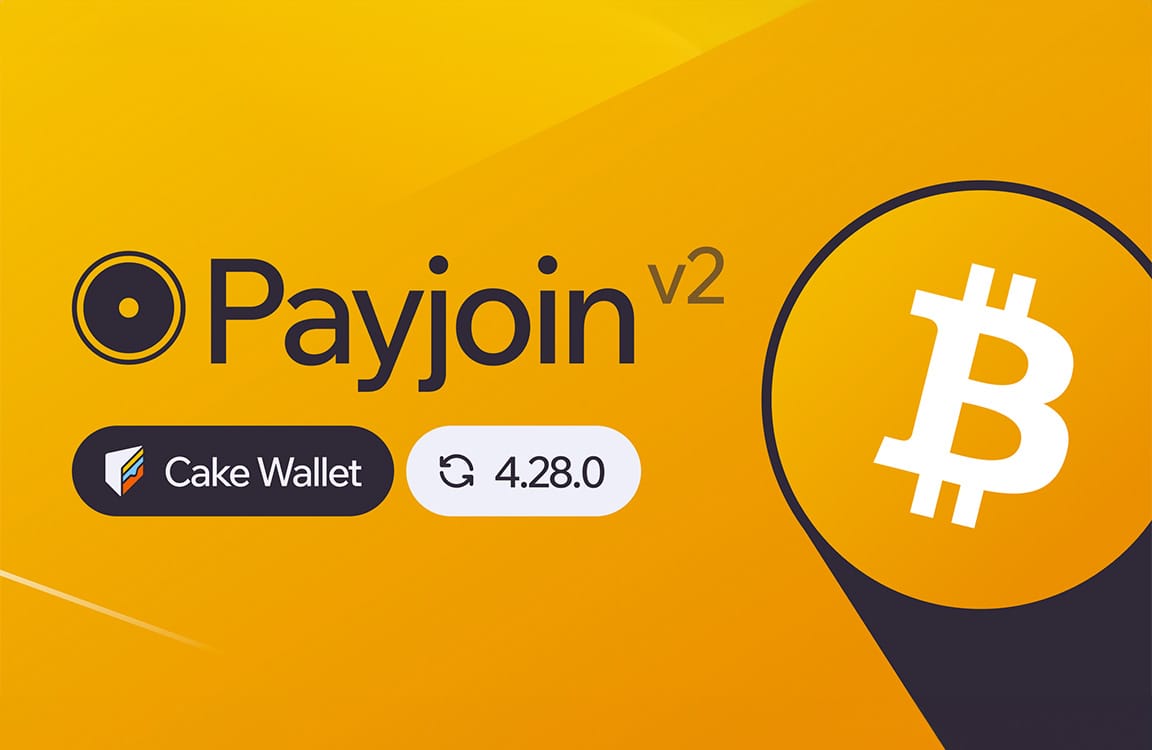
How to started with Payjoin in Cake Wallet:
- Open the app menu sidebar and click
Privacy. - Toggle the
Use Payjoinoption. - Now on your receive screen you'll see an option to copy a Payjoin URL

- Bull Bitcoin Wallet v0.4.0 introduced Payjoin v2 support in late December 2024. However, the current implementations are not interoperable at the moment, an issue that should be addressed in the next release of the Bull Bitcoin Wallet.
- Cake Wallet was one of the first wallets to introduce Silent Payments back in May 2024. However, users may encounter sync issues while using this feature at present, which will be resolved in the next release of Cake Wallet.
What's new
- Payjoin v2 implementation.
- Wallet group improvements: Enhanced management of multiple wallets.
- Various bug fixes: improving overall stability and user experience.
- Monero (XMR) enhancements.
Learn more about using, implementing, and understanding BIP 77: Payjoin Version 2 using the
payjoincrate in Payjoin Dev Kit here. -
 @ c1d77557:bf04ec8b
2025-05-25 09:46:24
@ c1d77557:bf04ec8b
2025-05-25 09:46:24No crescente universo das plataformas de jogos online, a BET7K se destaca como uma das opções mais completas e inovadoras disponíveis para o público brasileiro. Com uma interface moderna, navegação intuitiva e uma variedade de jogos que agrada desde os iniciantes até os mais experientes, a plataforma tem conquistado uma legião de fãs em todo o país. Neste artigo, vamos apresentar um panorama completo sobre a BET7K, incluindo seus principais recursos, tipos de jogos oferecidos e a experiência do jogador.
Uma Plataforma Feita Para o Público Brasileiro Desde o primeiro acesso, é possível perceber que a bet7kfoi pensada especialmente para atender às preferências do público brasileiro. O site é totalmente em português, conta com suporte ao cliente local e métodos de pagamento adaptados à realidade do país, incluindo Pix, boleto bancário e carteiras digitais. Essa acessibilidade facilita o cadastro e as transações, tornando a experiência do usuário muito mais simples e prática.
Além disso, a BET7K também oferece promoções e bônus exclusivos para jogadores brasileiros, o que contribui para um engajamento contínuo e recompensador.
Diversidade de Jogos para Todos os Gostos A variedade de jogos é um dos pontos fortes da BET7K. A plataforma reúne os principais títulos do mercado, desenvolvidos por provedores de renome internacional, garantindo gráficos de alta qualidade, jogabilidade fluida e uma experiência imersiva.
Entre os destaques estão os populares jogos de slot, que combinam sorte e emoção com temáticas variadas e recursos especiais, como rodadas grátis e multiplicadores de prêmios. Para quem prefere algo mais estratégico, a BET7K também oferece opções como pôquer, blackjack e bacará, todos em versões otimizadas para desktop e dispositivos móveis.
Além disso, os jogos de roleta ao vivo proporcionam uma experiência interativa em tempo real, permitindo que os jogadores se sintam parte de uma atmosfera de luxo e sofisticação, mesmo jogando de casa.
A Experiência do Jogador em Primeiro Lugar A BET7K investe constantemente em tecnologia e segurança para garantir que os usuários possam se divertir com tranquilidade. A plataforma utiliza criptografia avançada para proteger os dados pessoais e financeiros, além de operar com licença de funcionamento internacional, o que demonstra seu compromisso com a transparência e a legalidade.
Outro diferencial importante é o atendimento ao cliente, disponível 24 horas por dia, 7 dias por semana. Os jogadores podem entrar em contato através de chat ao vivo, e-mail ou redes sociais, sempre contando com uma equipe treinada para resolver qualquer dúvida ou problema com agilidade.
Conclusão A BET7K é uma plataforma completa, confiável e voltada para proporcionar a melhor experiência possível aos seus usuários. Seja você um iniciante curioso ou um jogador experiente em busca de novos desafios, a BET7K oferece uma combinação ideal de diversão, segurança e oportunidades de ganhos reais.
Com sua abordagem focada no público brasileiro, promoções atraentes, grande variedade de jogos e suporte de qualidade, a BET7K vem se consolidando como uma das principais referências em entretenimento online no Brasil. Se você ainda não conhece, essa é a hora perfeita para explorar tudo o que a plataforma tem a oferecer.
-
 @ dfa02707:41ca50e3
2025-05-25 13:01:33
@ dfa02707:41ca50e3
2025-05-25 13:01:33Contribute to keep No Bullshit Bitcoin news going.
- "Today we're launching the beta version of our multiplatform Nostr browser! Think Google Chrome but for Nostr apps. The beta is our big first step toward this vision," announced Damus.
- This version comes with the Dave Nostr AI assistant, support for zaps and the Nostr Wallet Connect (NWC) wallet interface, full-text note search, GIFs and fullscreen images, multiple media uploads, user tagging, relay list and mute list support, along with a number of other improvements."
"Included in the beta is the Dave, the Nostr AI assistant (its Grok for Nostr). Dave is a new Notedeck browser app that can search and summarize notes from the network. For a full breakdown of everything new, check out our beta launch video."
What's new
- Dave Nostr AI assistant app.
- GIFs.
- Fulltext note search.
- Add full screen images, add zoom, and pan.
- Zaps! NWC/ Wallet UI.
- Introduce last note per pubkey feed (experimental).
- Allow multiple media uploads per selection.
- Major Android improvements (still WIP).
- Added notedeck app sidebar.
- User Tagging.
- Note truncation.
- Local network note broadcast, broadcast notes to other notedeck notes while you're offline.
- Mute list support (reading).
- Relay list support.
- Ctrl-enter to send notes.
- Added relay indexing (relay columns soon).
- Click hashtags to open hashtag timeline.
- Fixed timelines sometimes not updating (stale feeds).
- Fixed UI bounciness when loading profile pictures
- Fixed unselectable post replies.

-
 @ 21810ca8:f2e8341e
2025-05-25 05:02:33
@ 21810ca8:f2e8341e
2025-05-25 05:02:33If so, please comment. So I can see if Nostr works for me.
-
 @ c1d77557:bf04ec8b
2025-05-25 09:45:57
@ c1d77557:bf04ec8b
2025-05-25 09:45:57No universo do entretenimento online, plataformas confiáveis, seguras e repletas de opções de jogos são cada vez mais valorizadas pelos jogadores brasileiros. A Betao surge como uma dessas grandes apostas, conquistando espaço entre os amantes de jogos virtuais por oferecer uma experiência dinâmica, envolvente e repleta de oportunidades de ganhos. Com um sistema moderno, interface amigável e suporte completo ao usuário, a Betao se destaca como um verdadeiro centro de entretenimento digital.
Conhecendo a Plataforma Betao Desde o primeiro acesso, o usuário percebe o cuidado da Betao em oferecer uma navegação fluida e intuitiva. O site é organizado de maneira eficiente, com menus claros que facilitam a localização dos jogos, promoções e informações de conta. Compatível com computadores e dispositivos móveis, a plataforma é ideal para quem deseja jogar em qualquer lugar, a qualquer momento.
A segurança é um dos pontos fortes da Betao. Com sistemas de criptografia atualizados e uma política rigorosa de proteção de dados, os jogadores podem ficar tranquilos quanto à integridade de suas informações pessoais e financeiras. Além disso, o suporte técnico é ágil e atencioso, pronto para resolver qualquer dúvida ou dificuldade de forma rápida e eficaz.
Variedade de Jogos para Todos os Estilos A grande diversidade de jogos é outro atrativo da Betao. A plataforma reúne títulos que atendem aos mais variados perfis de jogadores, desde os iniciantes até os mais experientes. Entre as opções, estão os tradicionais jogos de cartas, como pôquer e bacará, além de roletas e slots com temáticas criativas e gráficos de alta qualidade.
Os slots, em especial, são um grande sucesso na Betao. Com centenas de títulos disponíveis, os jogadores encontram desde opções clássicas com três rolos até versões modernas com múltiplas linhas de pagamento e recursos especiais. Muitos desses jogos oferecem rodadas grátis, multiplicadores e bônus interativos que aumentam ainda mais a emoção.
A Betao também oferece modalidades com crupiês ao vivo, criando uma atmosfera realista e interativa, onde o jogador pode se sentir em uma verdadeira sala de jogos, mesmo estando em casa. Essa funcionalidade aumenta a imersão e proporciona uma experiência diferenciada e sofisticada.
Experiência do Jogador: Simplicidade e Emoção O foco principal da Betao é proporcionar ao usuário uma jornada divertida e segura. Desde o cadastro, que é simples e rápido, até o processo de depósito e saque — que aceita os métodos de pagamento mais populares entre os brasileiros — tudo foi pensado para facilitar a vida do jogador.
As promoções constantes também são um atrativo à parte. A Betao oferece bônus de boas-vindas, campanhas sazonais e programas de fidelidade que recompensam os jogadores mais ativos com prêmios exclusivos. Isso cria uma sensação de valorização e motiva os usuários a retornarem sempre.
Outro ponto positivo é a transparência da plataforma. As regras dos jogos, os critérios para os bônus e os termos de uso estão sempre disponíveis de forma clara, reforçando a confiabilidade da Betao.
Conclusão A Betao é mais do que uma simples plataforma de jogos: é um ambiente completo de entretenimento digital, onde a diversão se alia à segurança e à inovação. Com uma oferta ampla de jogos, suporte eficiente e promoções atrativas, a Betao vem ganhando cada vez mais a preferência dos brasileiros que buscam emoção e praticidade em um só lugar. Se você procura uma plataforma moderna, confiável e repleta de possibilidades, a Betao é, sem dúvida, a escolha certa para sua próxima aventura online.
-
 @ dfa02707:41ca50e3
2025-05-25 13:01:33
@ dfa02707:41ca50e3
2025-05-25 13:01:33Contribute to keep No Bullshit Bitcoin news going.
-
Version 1.3 of Bitcoin Safe introduces a redesigned interactive chart, quick receive feature, updated icons, a mempool preview window, support for Child Pays For Parent (CPFP) and testnet4, preconfigured testnet demo wallets, as well as various bug fixes and improvements.
-
Upcoming updates for Bitcoin Safe include Compact Block Filters.
"Compact Block Filters increase the network privacy dramatically, since you're not asking an electrum server to give you your transactions. They are a little slower than electrum servers. For a savings wallet like Bitcoin Safe this should be OK," writes the project's developer Andreas Griffin.
- Learn more about the current and upcoming features of Bitcoin Safe wallet here.
What's new in v1.3
- Redesign of Chart, Quick Receive, Icons, and Mempool Preview (by @design-rrr).
- Interactive chart. Clicking on it now jumps to transaction, and selected transactions are now highlighted.
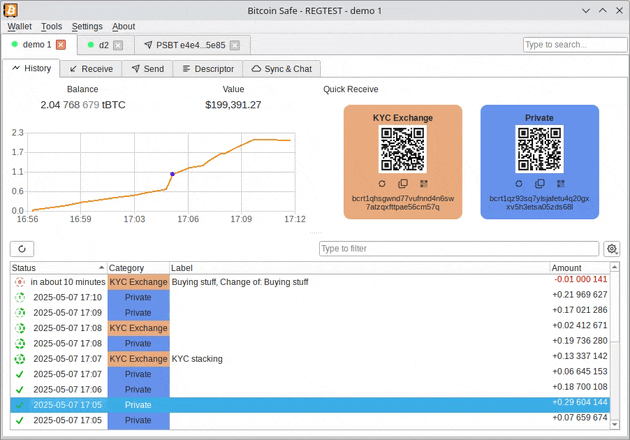
- Speed up transactions with Child Pays For Parent (CPFP).
- BDK 1.2 (upgraded from 0.32).
- Testnet4 support.
- Preconfigured Testnet demo wallets.
- Cluster unconfirmed transactions so that parents/children are next to each other.
- Customizable columns for all tables (optional view: Txid, Address index, and more)
- Bug fixes and other improvements.
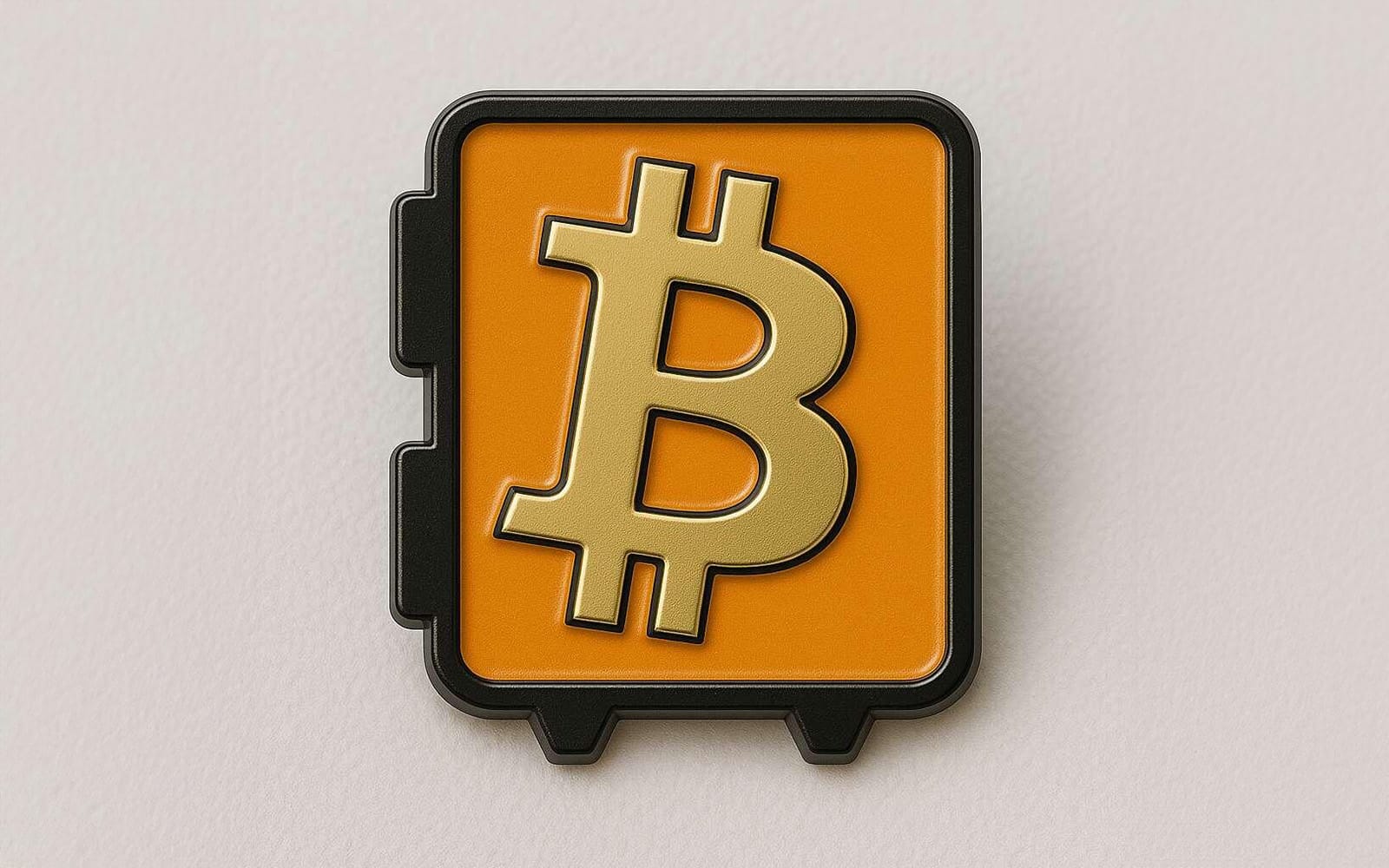
Announcement / Archive
Blog Post / Archive
GitHub Repo
Website -
-
 @ eb0157af:77ab6c55
2025-05-25 04:48:11
@ eb0157af:77ab6c55
2025-05-25 04:48:11Michigan lawmakers are unveiling a comprehensive strategy to regulate Bitcoin and cryptocurrencies.
On May 21, Republican Representative Bill Schuette introduced House Bill 4510, a proposal to amend the Michigan Public Employee Retirement System Investment Act. The legislation would allow the state treasurer, currently Rachael Eubanks, to diversify the state’s investments by including cryptocurrencies with an average market capitalization of over $250 million in the past calendar year.
Under current criteria, Bitcoin (BTC) and Ether (ETH) are the only cryptocurrencies that meet these selection standards. The proposal specifies that any investment in digital assets must be made through exchange-traded products (spot ETFs) issued by registered investment companies.
Anti-CBDC legislation
Republican Representative Bryan Posthumus is leading the bipartisan initiative behind the second bill, HB 4511, which establishes protections for cryptocurrency holders. The proposal prohibits Michigan from implementing crypto bans or imposing licensing requirements on digital asset holders.
Another key aspect of the legislation is a ban on state officials from supporting or promoting a potential federal central bank digital currency (CBDC). The definition includes the issuance of memorandums or official statements endorsing CBDC proposals related to testing, adoption, or implementation.
Mining and redevelopment of abandoned sites
The third bill, HB 4512, is a proposal led by Democratic Representative Mike McFall for a bipartisan group. This initiative would establish a Bitcoin mining program allowing operators to use abandoned oil and natural gas sites.
The program calls for the appointment of a supervisor tasked with assessing the site’s remaining productive potential, identifying the last operator, and determining the length of abandonment. Prospective participants would need to submit detailed legal documentation of their organizational structure, demonstrate operational expertise in mining, and provide profitability breakeven estimates for their ventures.
The fourth and final bill, HB 4513, also introduced by the bipartisan group led by McFall, focuses on the fiscal aspect of the HB 4512 initiative. The proposal would amend Michigan’s income tax laws to include proceeds generated from the proposed Bitcoin mining program.
The post Michigan: four bills on pension funds, CBDCs, and mining appeared first on Atlas21.
-
 @ dfa02707:41ca50e3
2025-05-25 13:01:32
@ dfa02707:41ca50e3
2025-05-25 13:01:32- This version introduces the Soroban P2P network, enabling Dojo to relay transactions to the Bitcoin network and share others' transactions to break the heuristic linking relaying nodes to transaction creators.
- Additionally, Dojo admins can now manage API keys in DMT with labels, status, and expiration, ideal for community Dojo providers like Dojobay. New API endpoints, including "/services" exposing Explorer, Soroban, and Indexer, have been added to aid wallet developers.
- Other maintenance updates include Bitcoin Core, Tor, Fulcrum, Node.js, plus an updated ban-knots script to disconnect inbound Knots nodes.
"I want to thank all the contributors. This again shows the power of true Free Software. I also want to thank everyone who donated to help Dojo development going. I truly appreciate it," said Still Dojo Coder.
What's new
- Soroban P2P network. For MyDojo (Docker setup) users, Soroban will be automatically installed as part of their Dojo. This integration allows Dojo to utilize the Soroban P2P network for various upcoming features and applications.
- PandoTx. PandoTx serves as a transaction transport layer. When your wallet sends a transaction to Dojo, it is relayed to a random Soroban node, which then forwards it to the Bitcoin network. It also enables your Soroban node to receive and relay transactions from others to the Bitcoin network and is designed to disrupt the assumption that a node relaying a transaction is closely linked to the person who initiated it.
- Pushing transactions through Soroban can be deactivated by setting
NODE_PANDOTX_PUSH=offindocker-node.conf. - Processing incoming transactions from Soroban network can be deactivated by setting
NODE_PANDOTX_PROCESS=offindocker-node.conf.
- Pushing transactions through Soroban can be deactivated by setting
- API key management has been introduced to address the growing number of people offering their Dojos to the community. Dojo admins can now access a new API management tab in their DMT, where they can create unlimited API keys, assign labels for easy identification, and set expiration dates for each key. This allows admins to avoid sharing their main API key and instead distribute specific keys to selected parties.
- New API endpoints. Several new API endpoints have been added to help API consumers develop features on Dojo more efficiently:
- New:
/latest-block- returns data about latest block/txout/:txid/:index- returns unspent output data/support/services- returns info about services that Dojo exposes
- Updated:
/tx/:txid- endpoint has been updated to return raw transaction with parameter?rawHex=1
- The new
/support/servicesendpoint replaces the deprecatedexplorerfield in the Dojo pairing payload. Although still present, API consumers should use this endpoint for explorer and other pairing data.
- New:
Other changes
- Updated ban script to disconnect inbound Knots nodes.
- Updated Fulcrum to v1.12.0.
- Regenerate Fulcrum certificate if expired.
- Check if transaction already exists in pushTx.
- Bump BTC-RPC Explorer.
- Bump Tor to v0.4.8.16, bump Snowflake.
- Updated Bitcoin Core to v29.0.
- Removed unnecessary middleware.
- Fixed DB update mechanism, added api_keys table.
- Add an option to use blocksdir config for bitcoin blocks directory.
- Removed deprecated configuration.
- Updated Node.js dependencies.
- Reconfigured container dependencies.
- Fix Snowflake git URL.
- Fix log path for testnet4.
- Use prebuilt addrindexrs binaries.
- Add instructions to migrate blockchain/fulcrum.
- Added pull policies.


Learn how to set up and use your own Bitcoin privacy node with Dojo here.
-
 @ eb0157af:77ab6c55
2025-05-25 04:48:10
@ eb0157af:77ab6c55
2025-05-25 04:48:10A fake Uber driver steals $73,000 in XRP and $50,000 in Bitcoin after drugging an American tourist.
A U.S. citizen vacationing in the United Kingdom fell victim to a scam that cost him $123,000 in cryptocurrencies stored on his smartphone. The man was drugged by an individual posing as an Uber driver.
According to My London, Jacob Irwin-Cline had spent the evening at a London nightclub, consuming several alcoholic drinks before requesting an Uber ride home. The victim admitted he hadn’t carefully verified the booking details on his device, mistakenly getting into a private taxi driven by someone who, at first glance, resembled the expected Uber driver but was using a completely different vehicle.
Once inside the car, the American tourist reported that the driver offered him a cigarette, allegedly laced with scopolamine — a rare and powerful sedative. Irwin-Cline described how the smoke made him extremely docile and fatigued, causing him to lose consciousness for around half an hour.
Upon waking, the driver ordered the victim to get out of the vehicle. As Irwin-Cline stepped out, the man suddenly accelerated, running him over and fleeing with his mobile phone, which contained the private keys and access to his cryptocurrencies. Screenshots provided to MyLondon show that $73,000 worth of XRP and $50,000 in bitcoin had been transferred to various wallets.
This incident adds to a growing trend of kidnappings, extortions, armed robberies, and ransom attempts targeting crypto executives, investors, and their families.
Just a few weeks ago, the daughter and grandson of Pierre Noizat, CEO of crypto exchange Paymium, were targeted in a kidnapping attempt in Paris. The incident took place in broad daylight when attackers tried to force the family into a parked vehicle. However, Noizat’s daughter managed to fight off the assailants.
The post American tourist drugged and robbed: $123,000 in crypto stolen in London appeared first on Atlas21.
-
 @ 3283ef81:0a531a33
2025-05-25 09:21:05
@ 3283ef81:0a531a33
2025-05-25 09:21:05Nullam auctor pretium sem pulvinar pulvinar\ Donec fermentum iaculis sem id aliquet
Integer vitae tempor justo, ac fermentum purus
-
 @ eb0157af:77ab6c55
2025-05-25 04:48:09
@ eb0157af:77ab6c55
2025-05-25 04:48:09Banking giants JPMorgan, Bank of America, Citigroup, and Wells Fargo are in talks to develop a unified stablecoin solution.
According to the Wall Street Journal on May 22, some of the largest financial institutions in the United States are exploring the possibility of joining forces to launch a stablecoin.
Subsidiaries of JPMorgan, Bank of America, Citigroup, and Wells Fargo have initiated preliminary discussions for a joint stablecoin issuance, according to sources close to the matter cited by the WSJ. Also at the negotiating table are Early Warning Services, the parent company of the digital payments network Zelle, and the payment network Clearing House.
The talks are reportedly still in the early stages, and any final decision could change depending on regulatory developments and market demand for stablecoins.
Stablecoin regulation
On May 20, the US Senate voted 66 to 32 to advance discussion of the Guiding and Establishing National Innovation for US Stablecoins Act (GENIUS Act), a specific law to regulate stablecoins. The bill outlines a regulatory framework for stablecoin collateralization and mandates compliance with anti-money laundering rules.
David Sacks, White House crypto advisor, expressed optimism about the bill’s bipartisan approval. However, senior Democratic Party officials intend to amend the bill to include a clause preventing former President Donald Trump and other US officials from profiting from stablecoins.
Demand for stablecoins has increased, with total market capitalization rising to $245 billion from $205 billion at the beginning of the year, a 20% increase.
The post Major US banks consider launching a joint stablecoin appeared first on Atlas21.
-
 @ dfa02707:41ca50e3
2025-05-25 13:01:32
@ dfa02707:41ca50e3
2025-05-25 13:01:32Contribute to keep No Bullshit Bitcoin news going.
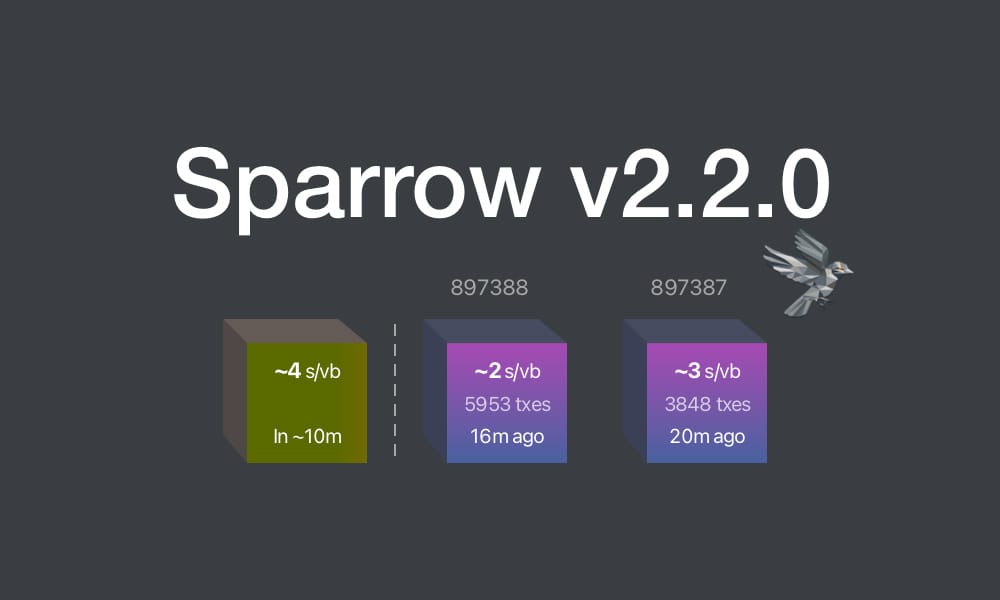
This update brings key enhancements for clarity and usability:
- Recent Blocks View: Added to the Send tab and inspired by Mempool's visualization, it displays the last 2 blocks and the estimated next block to help choose fee rates.
- Camera System Overhaul: Features a new library for higher resolution detection and mouse-scroll zoom support when available.
- Vector-Based Images: All app images are now vectorized and theme-aware, enhancing contrast, especially in dark mode.
- Tor & P2A Updates: Upgraded internal Tor and improved support for pay-to-anchor (P2A) outputs.
- Linux Package Rename: For Linux users, Sparrow has been renamed to sparrowwallet (or sparrowserver); in some cases, the original sparrow package may need manual removal.
- Additional updates include showing total payments in multi-payment transaction diagrams, better handling of long labels, and other UI enhancements.
- Sparrow v2.2.1 is a bug fix release that addresses missing UUID issue when starting Tor on recent macOS versions, icons for external sources in Settings and Recent Blocks view, repackaged
.debinstalls to use older gzip instead of zstd compression, and removed display of median fee rate where fee rates source is set to Server.
Learn how to get started with Sparrow wallet:
Release notes (v2.2.0)
- Added Recent Blocks view to Send tab.
- Converted all bitmapped images to theme aware SVG format for all wallet models and dialogs.
- Support send and display of pay to anchor (P2A) outputs.
- Renamed
sparrowpackage tosparrowwalletandsparrowserveron Linux. - Switched camera library to openpnp-capture.
- Support FHD (1920 x 1080) and UHD4k (3840 x 2160) capture resolutions.
- Support camera zoom with mouse scroll where possible.
- In the Download Verifier, prefer verifying the dropped file over the default file where the file is not in the manifest.
- Show a warning (with an option to disable the check) when importing a wallet with a derivation path matching another script type.
- In Cormorant, avoid calling the
listwalletdirRPC on initialization due to a potentially slow response on Windows. - Avoid server address resolution for public servers.
- Assume server address is non local for resolution failures where a proxy is configured.
- Added a tooltip to indicate truncated labels in table cells.
- Dynamically truncate input and output labels in the tree on a transaction tab, and add tooltips if necessary.
- Improved tooltips for wallet tabs and transaction diagrams with long labels.
- Show the address where available on input and output tooltips in transaction tab tree.
- Show the total amount sent in payments in the transaction diagram when constructing multiple payment transactions.
- Reset preferred table column widths on adjustment to improve handling after window resizing.
- Added accessible text to improve screen reader navigation on seed entry.
- Made Wallet Summary table grow horizontally with dialog sizing.
- Reduced tooltip show delay to 200ms.
- Show transaction diagram fee percentage as less than 0.01% rather than 0.00%.
- Optimized and reduced Electrum server RPC calls.
- Upgraded Bouncy Castle, PGPainless and Logback libraries.
- Upgraded internal Tor to v0.4.8.16.
- Bug fix: Fixed issue with random ordering of keystore origins on labels import.
- Bug fix: Fixed non-zero account script type detection when signing a message on Trezor devices.
- Bug fix: Fixed issue parsing remote Coldcard xpub encoded on a different network.
- Bug fix: Fixed inclusion of fees on wallet label exports.
- Bug fix: Increase Trezor device libusb timeout.
Linux users: Note that the
sparrowpackage has been renamed tosparrowwalletorsparrowserver, and in some cases you may need to manually uninstall the originalsparrowpackage. Look in the/optfolder to ensure you have the new name, and the original is removed.What's new in v2.2.1
- Updated Tor library to fix missing UUID issue when starting Tor on recent macOS versions.
- Repackaged
.debinstalls to use older gzip instead of zstd compression. - Removed display of median fee rate where fee rates source is set to Server.
- Added icons for external sources in Settings and Recent Blocks view
- Bug fix: Fixed issue in Recent Blocks view when switching fee rates source
- Bug fix: Fixed NPE on null fee returned from server
